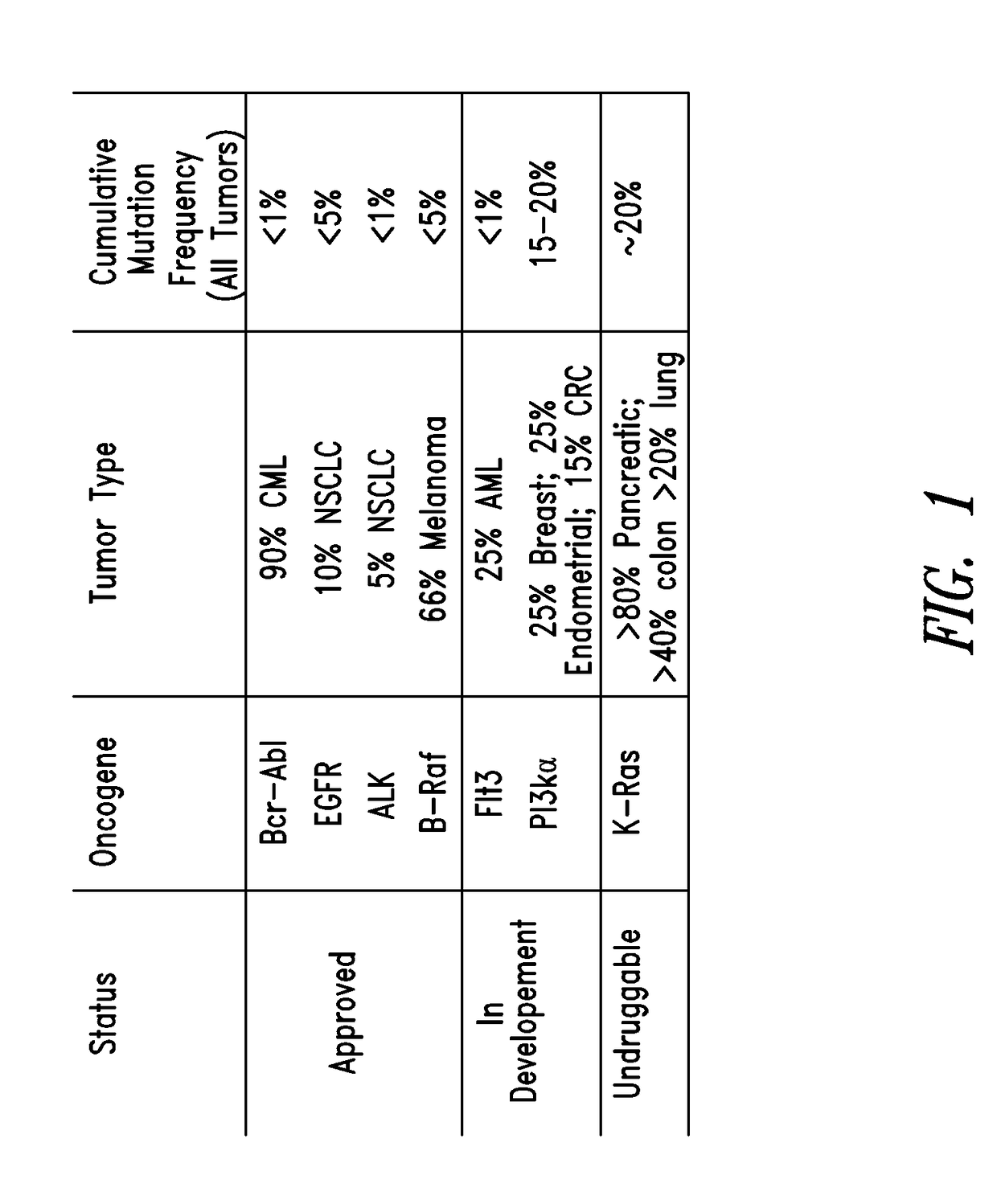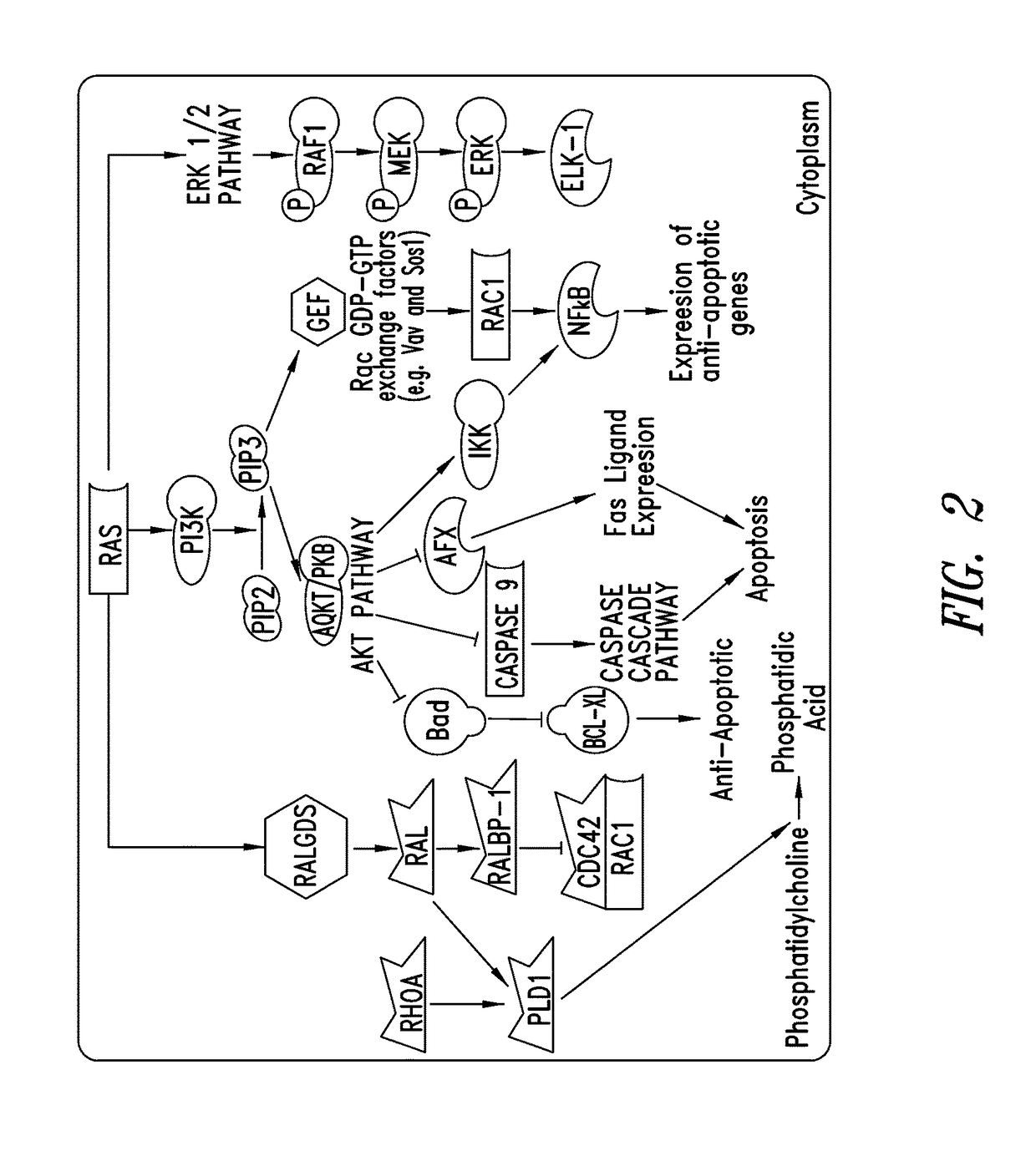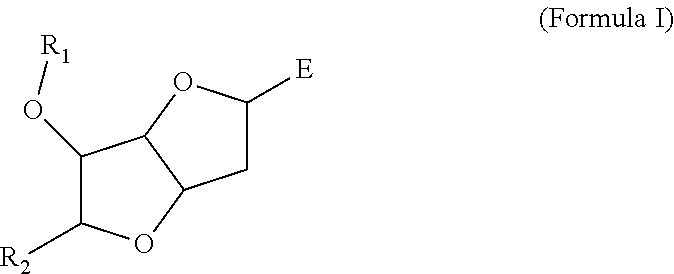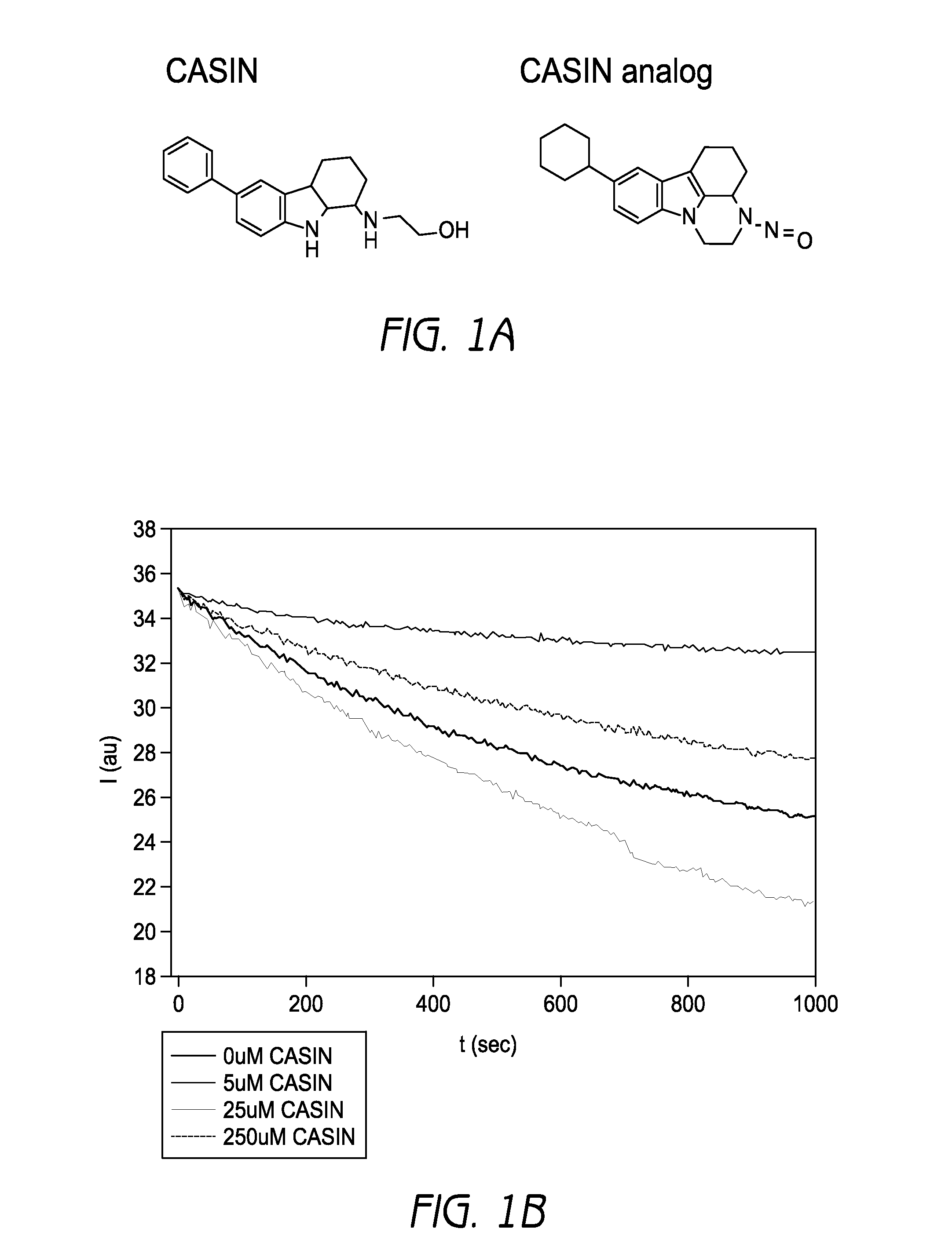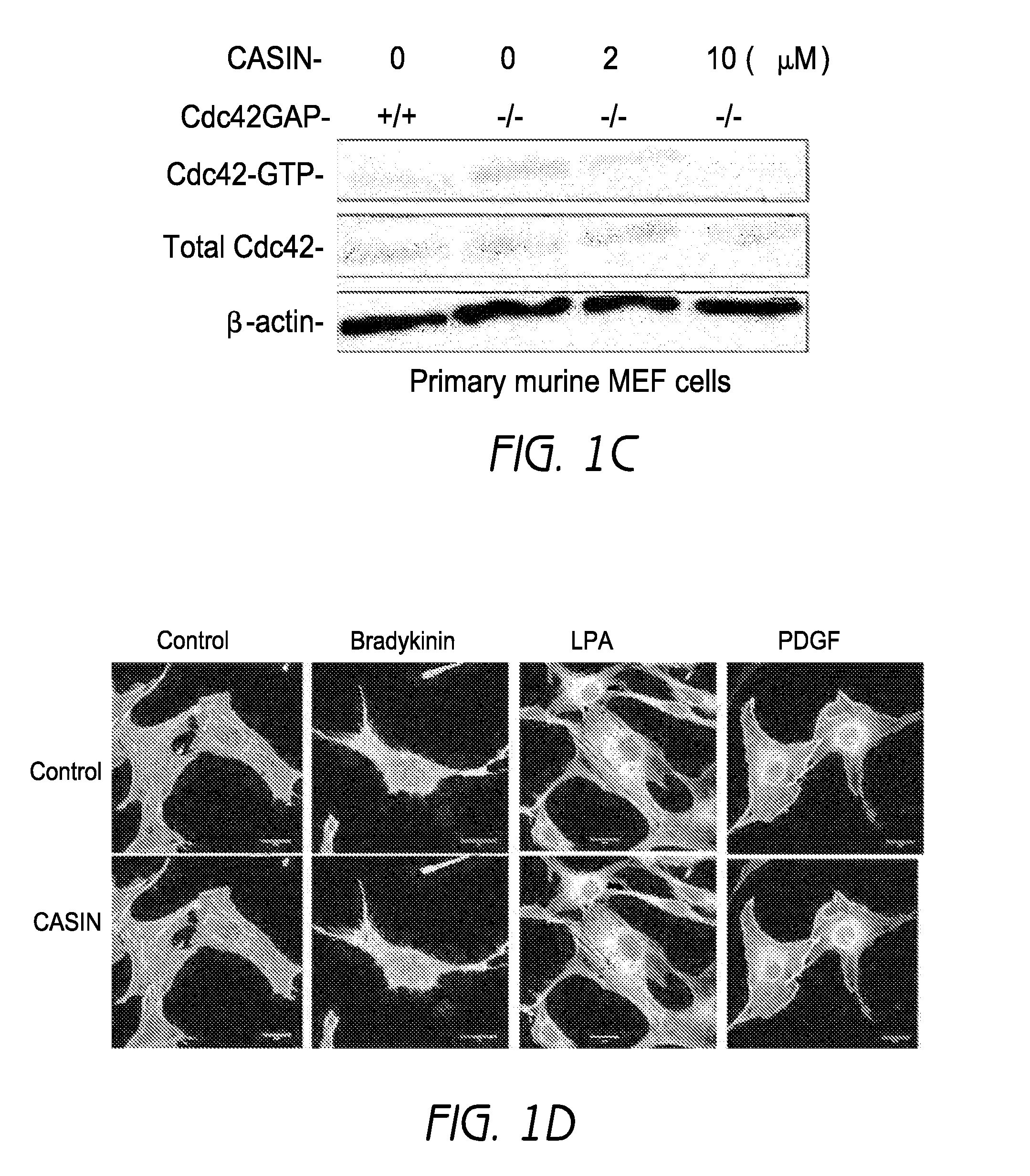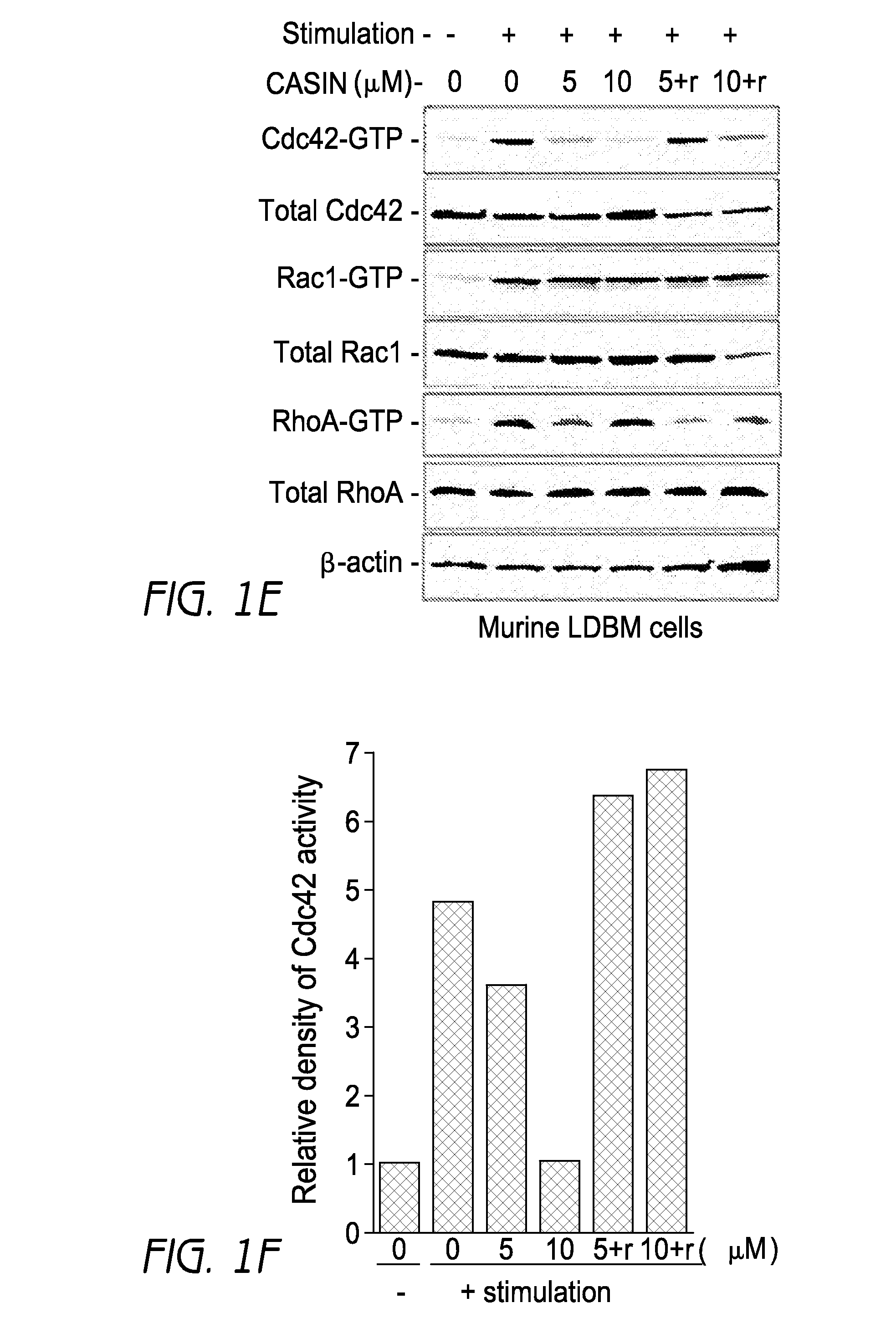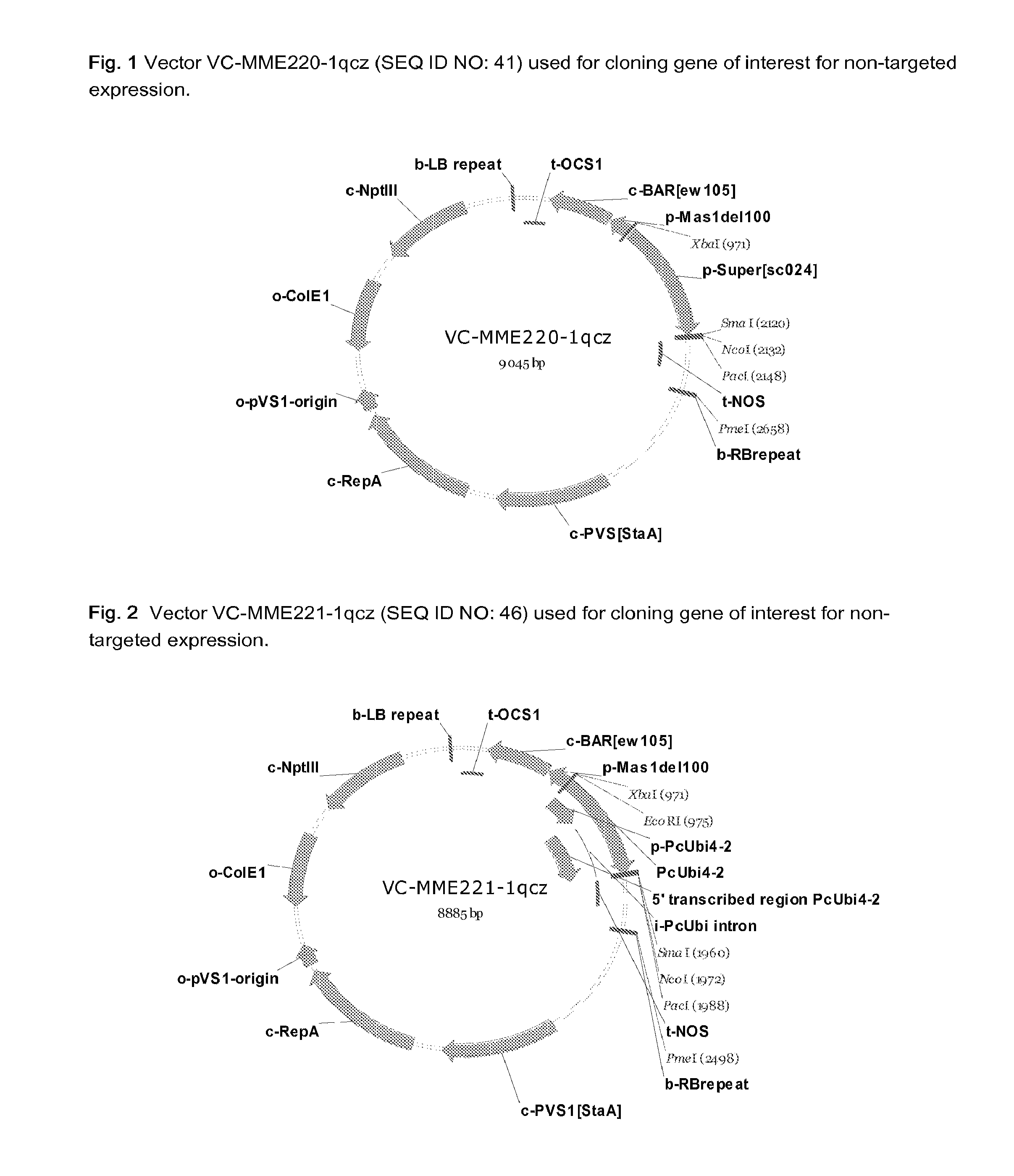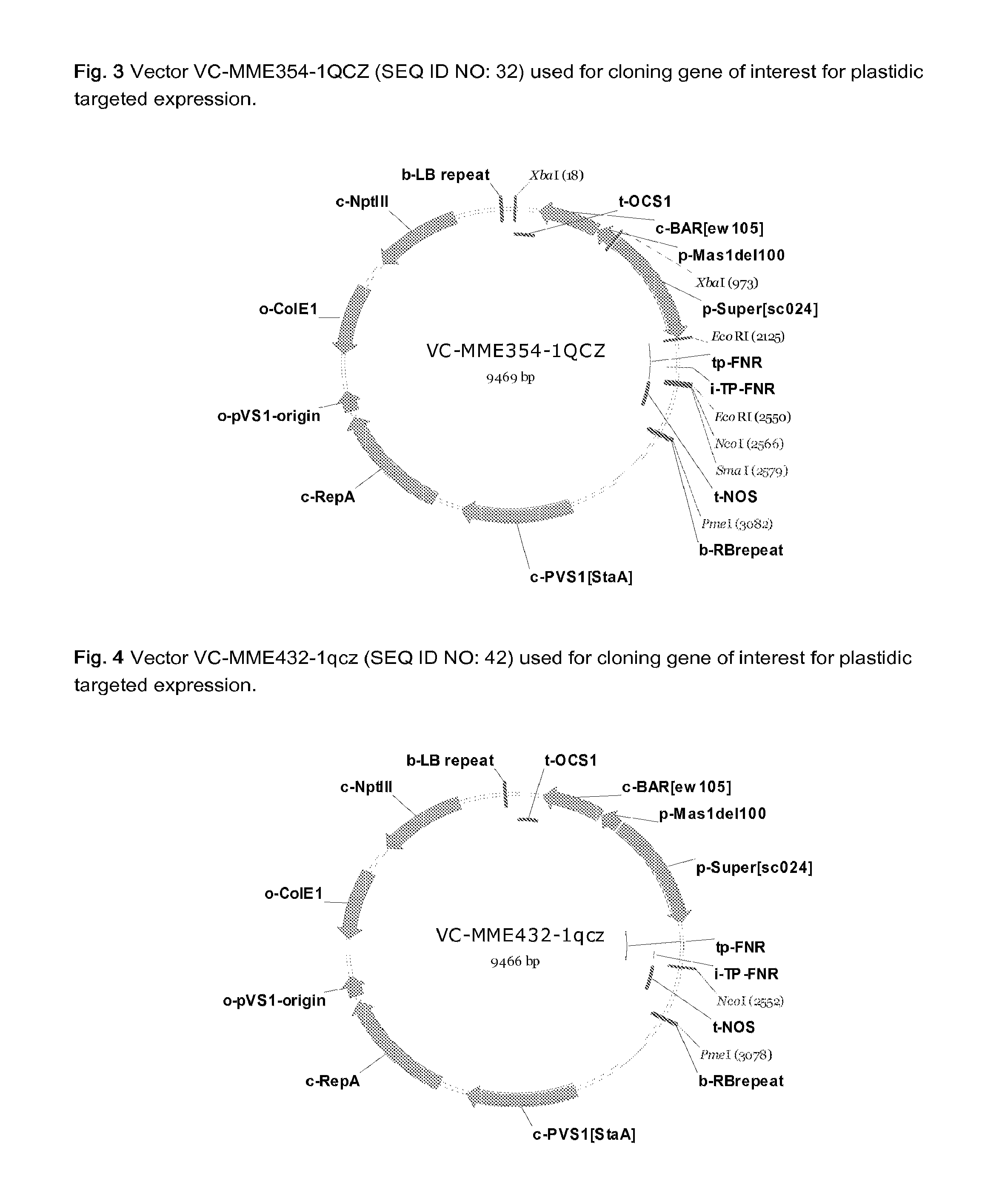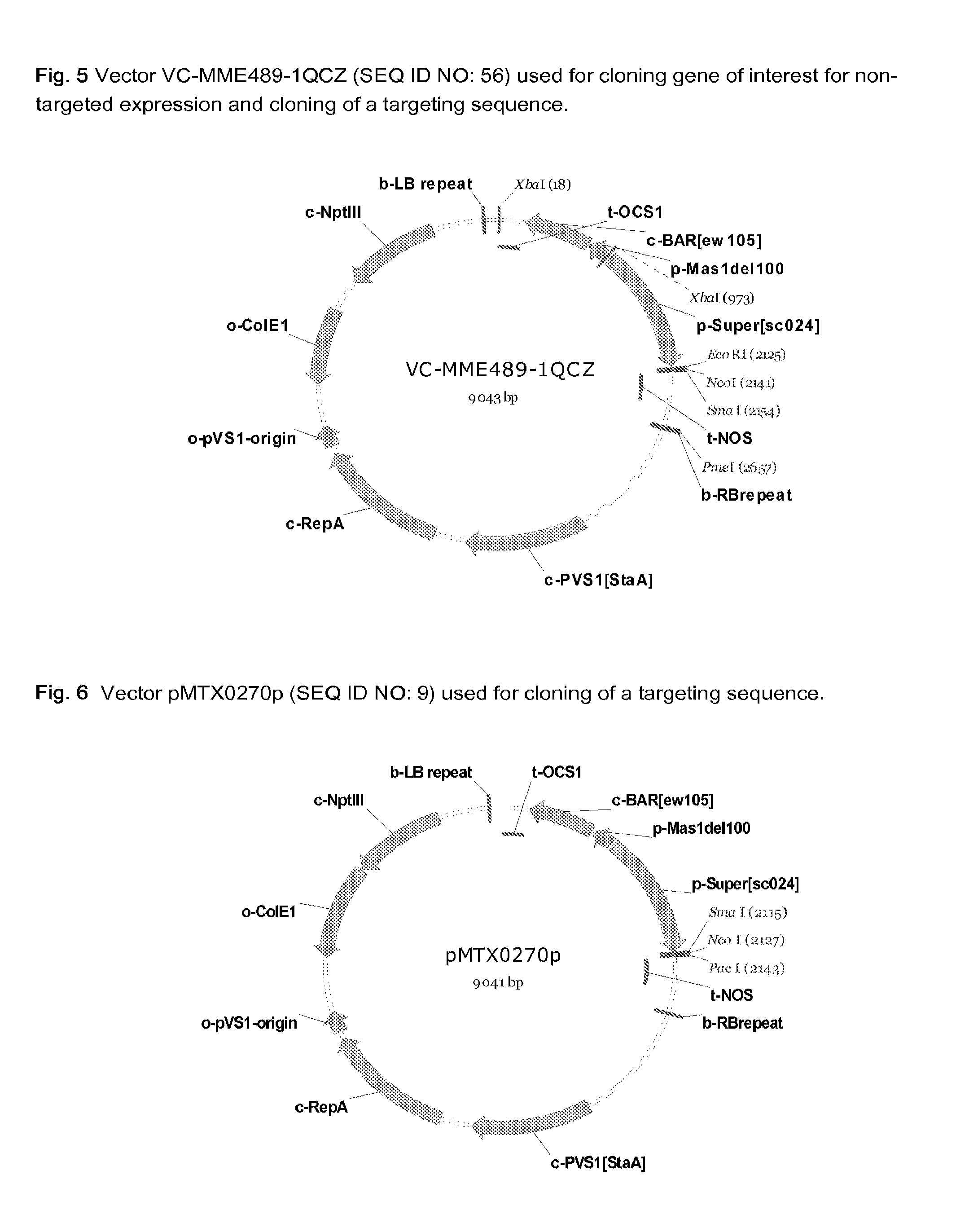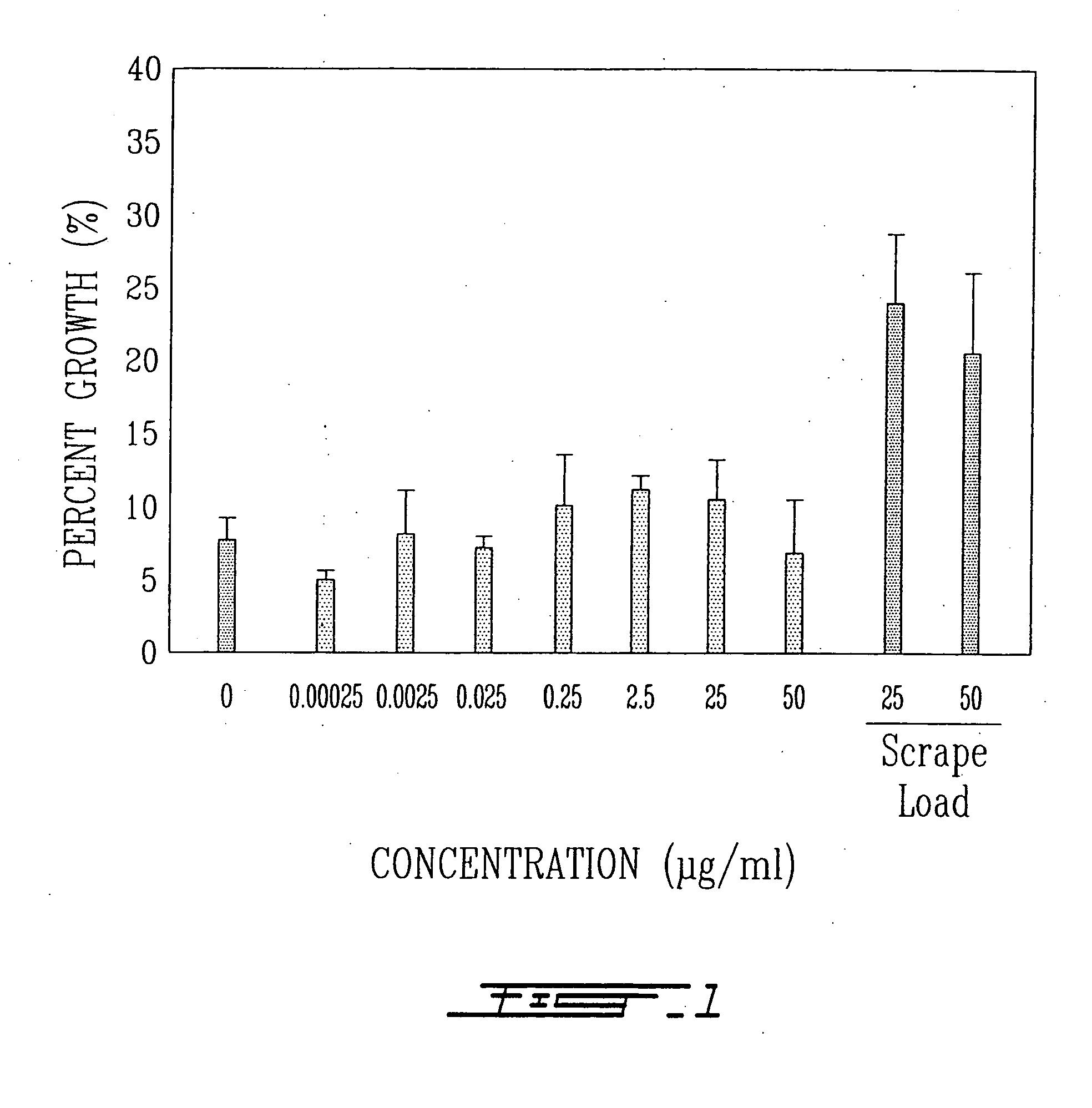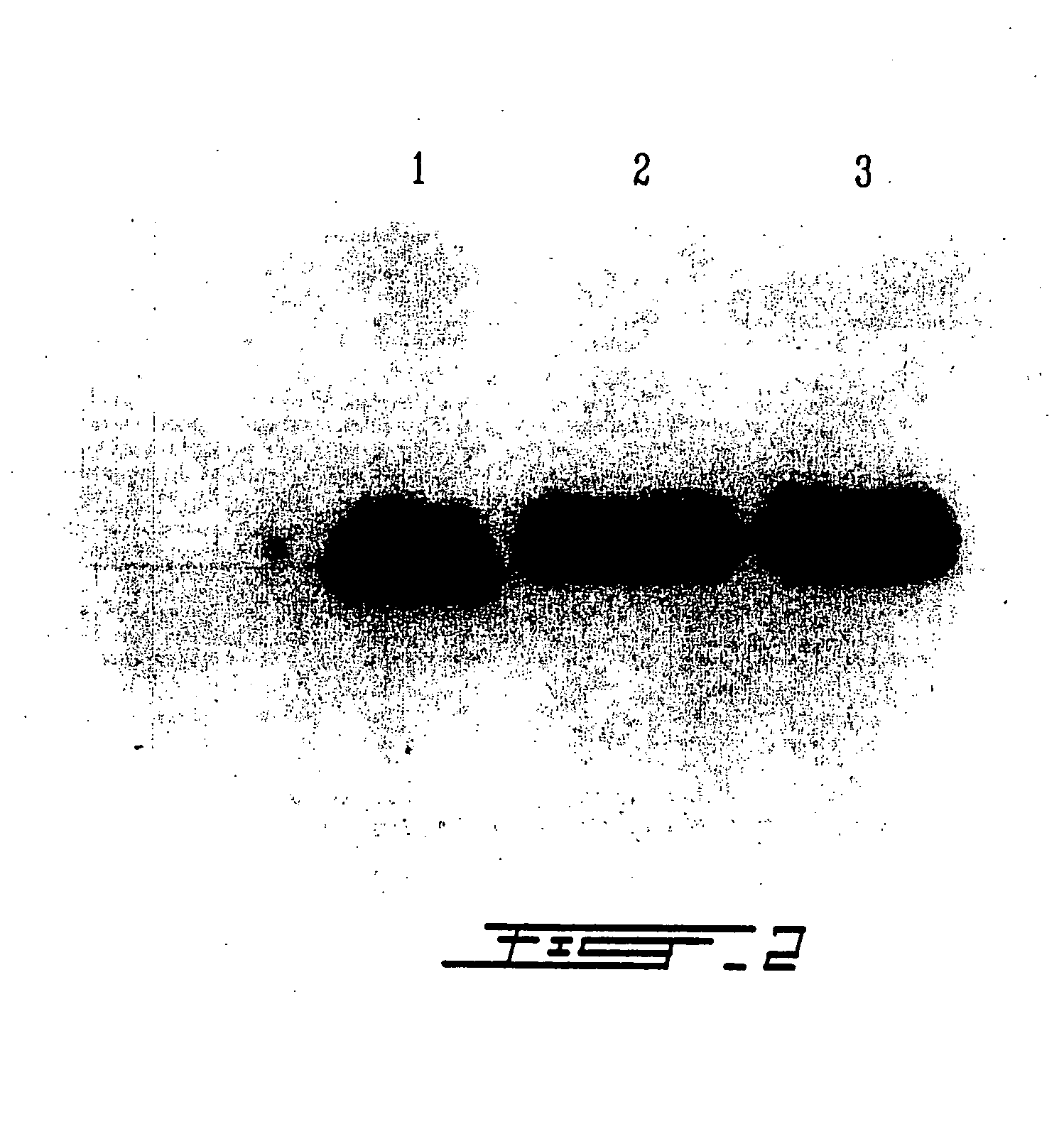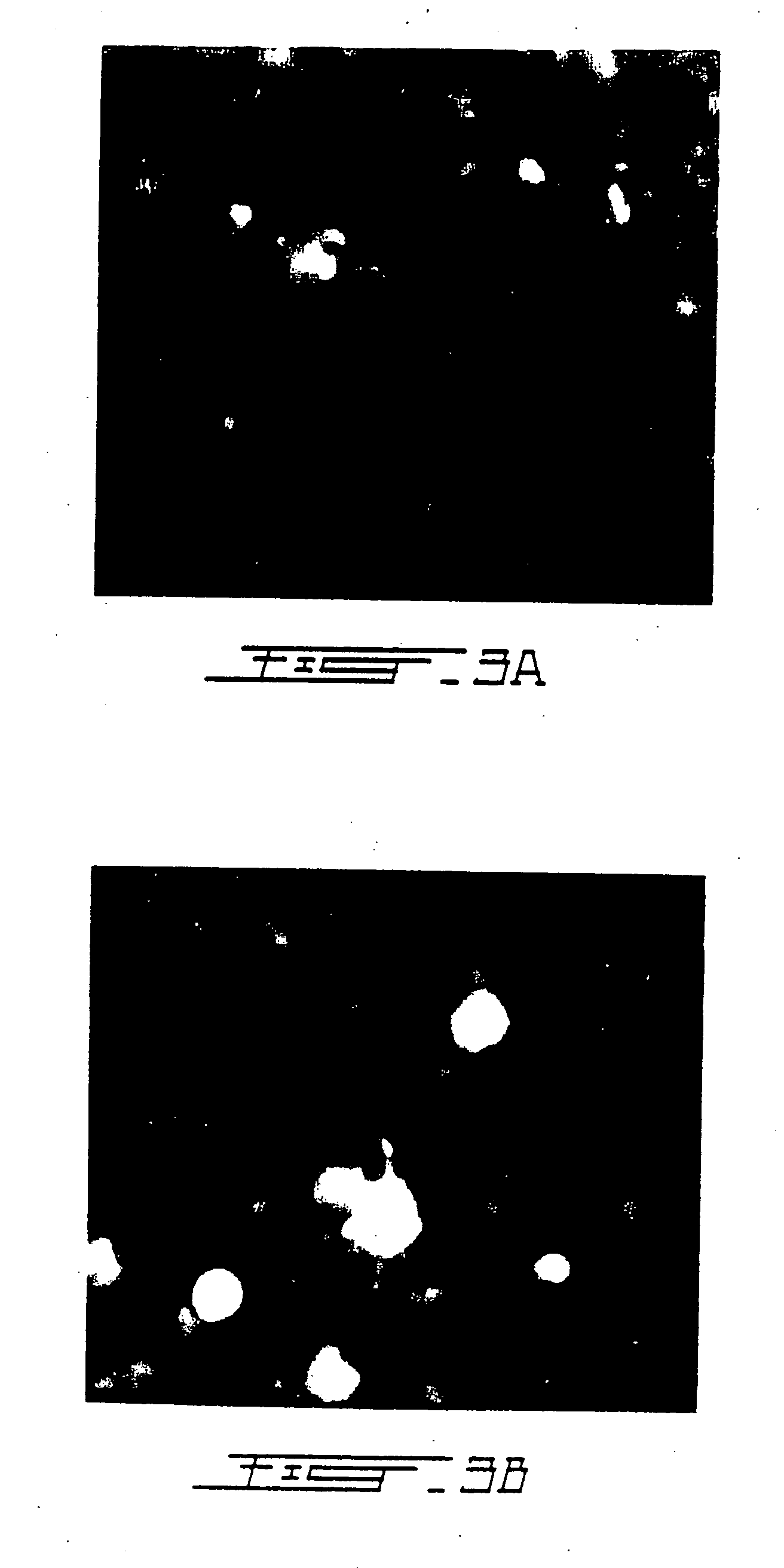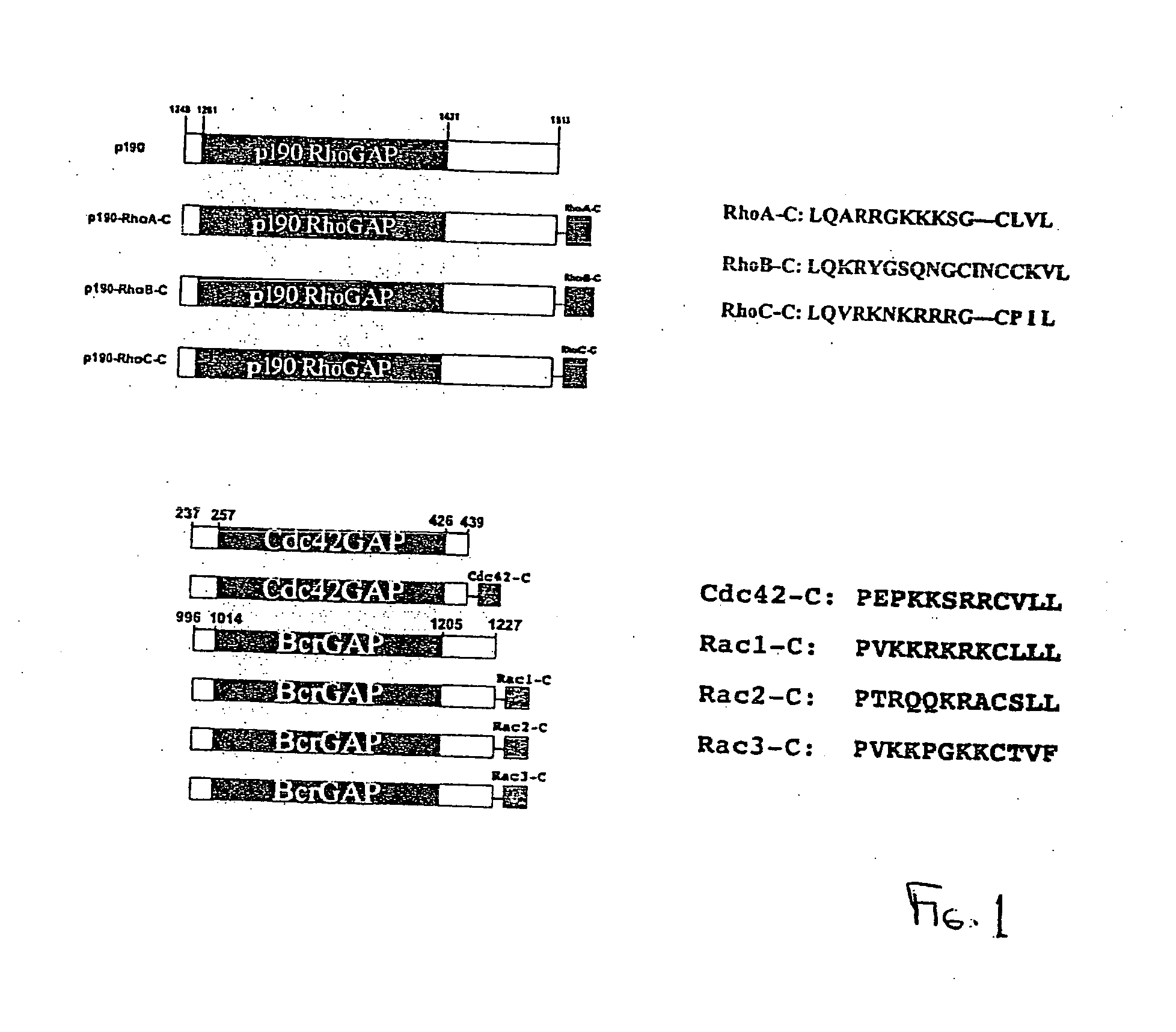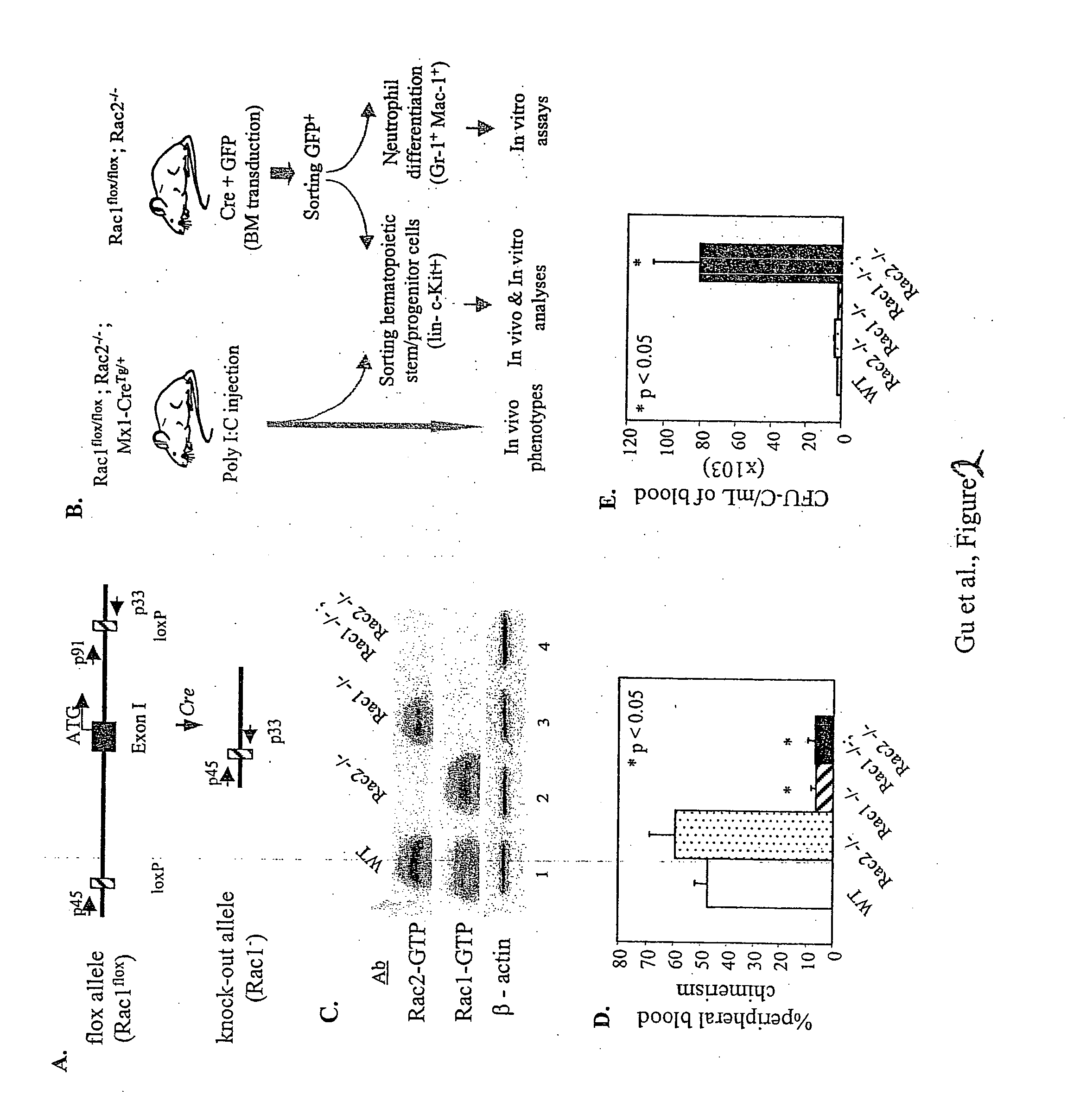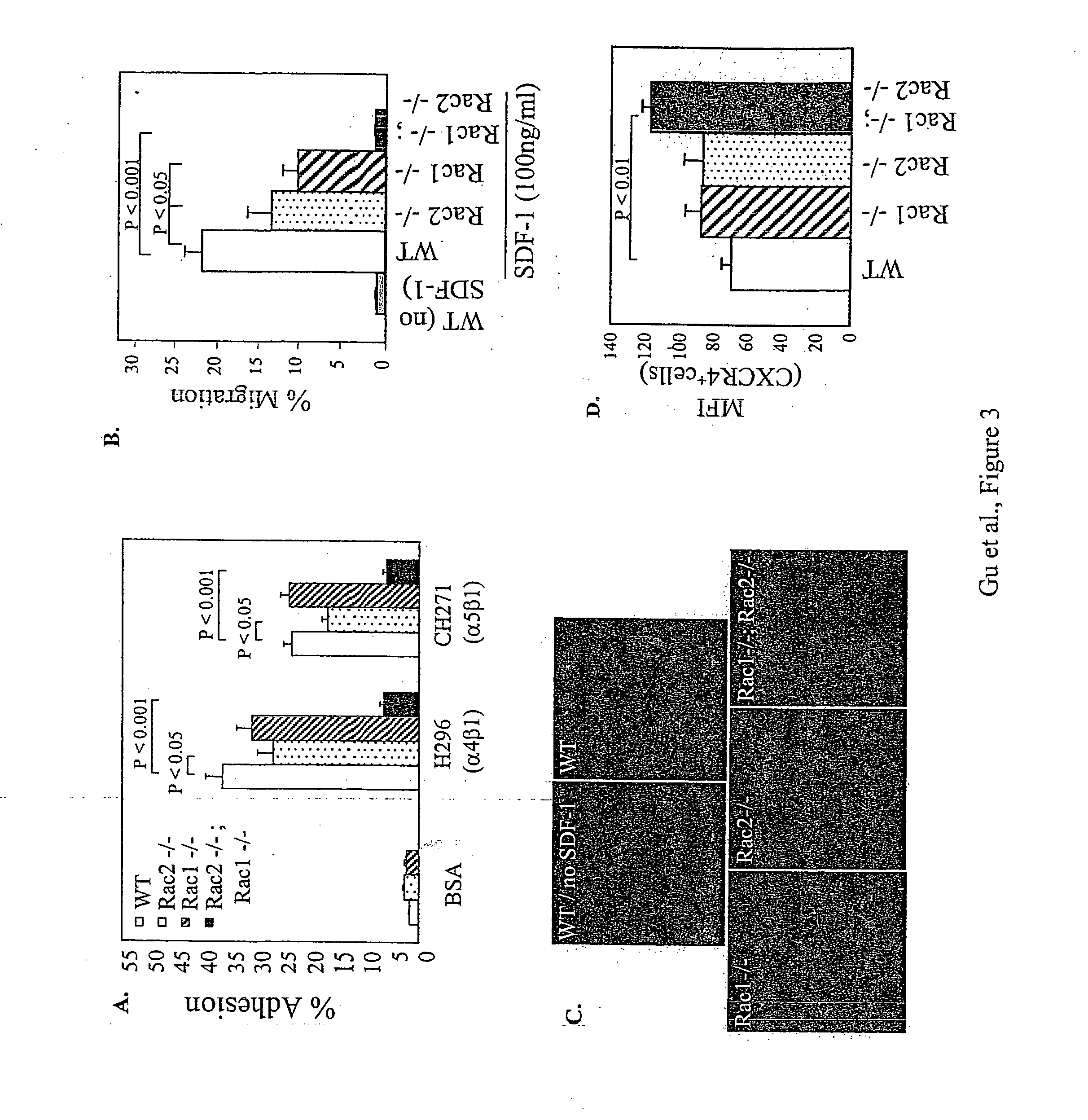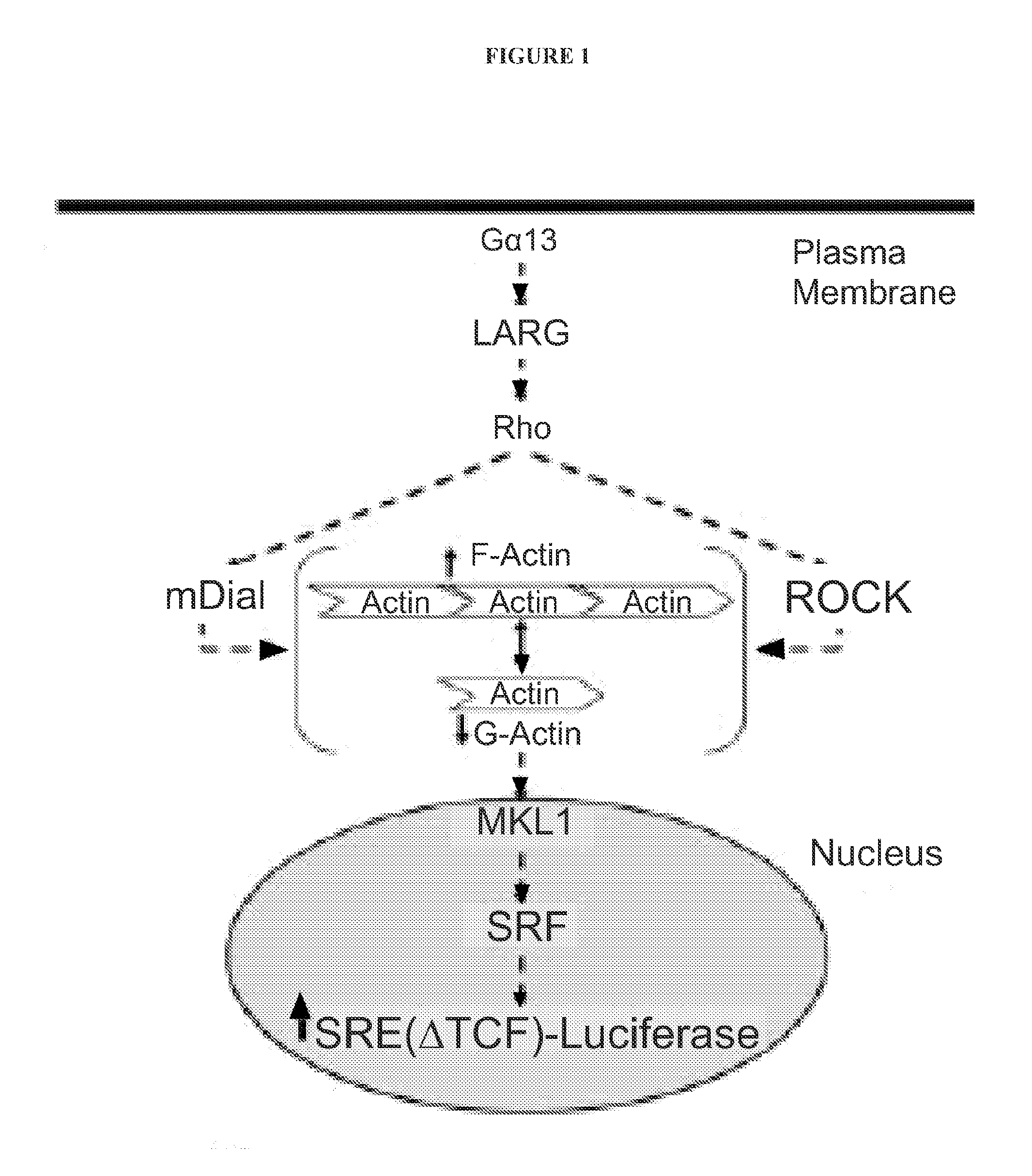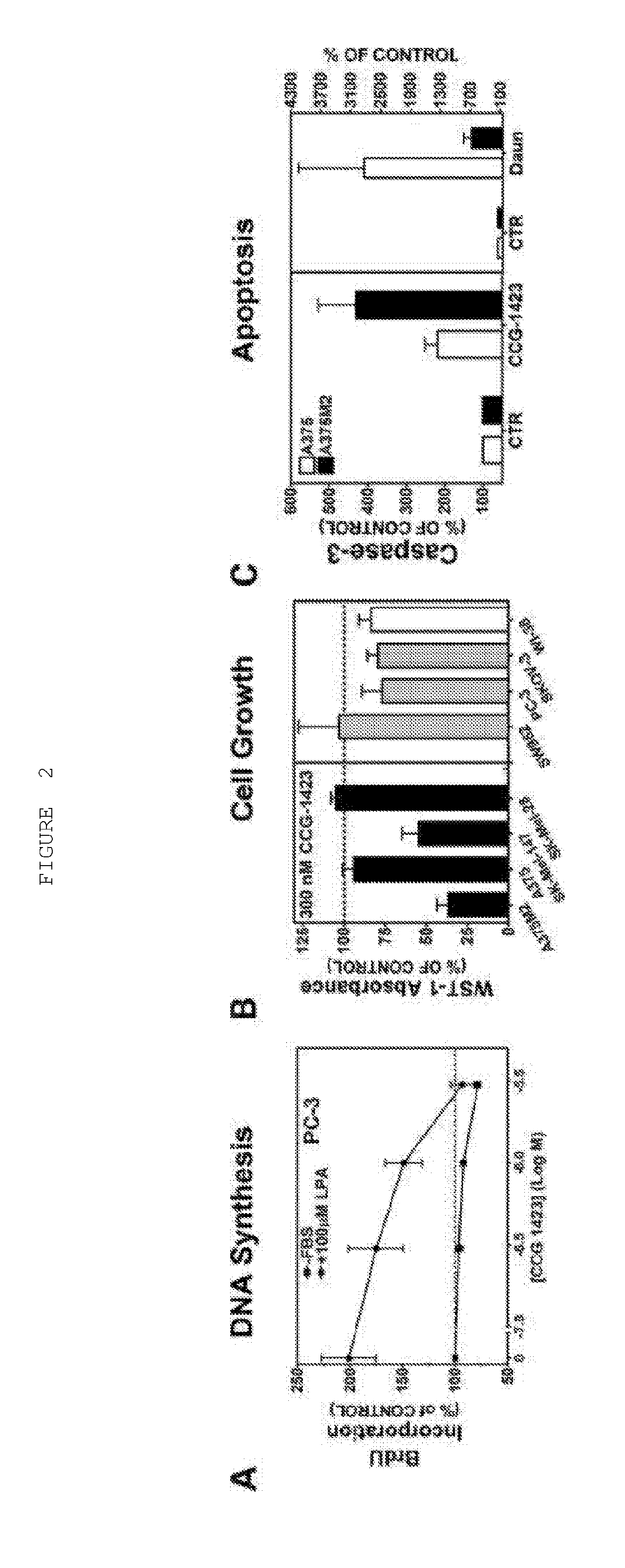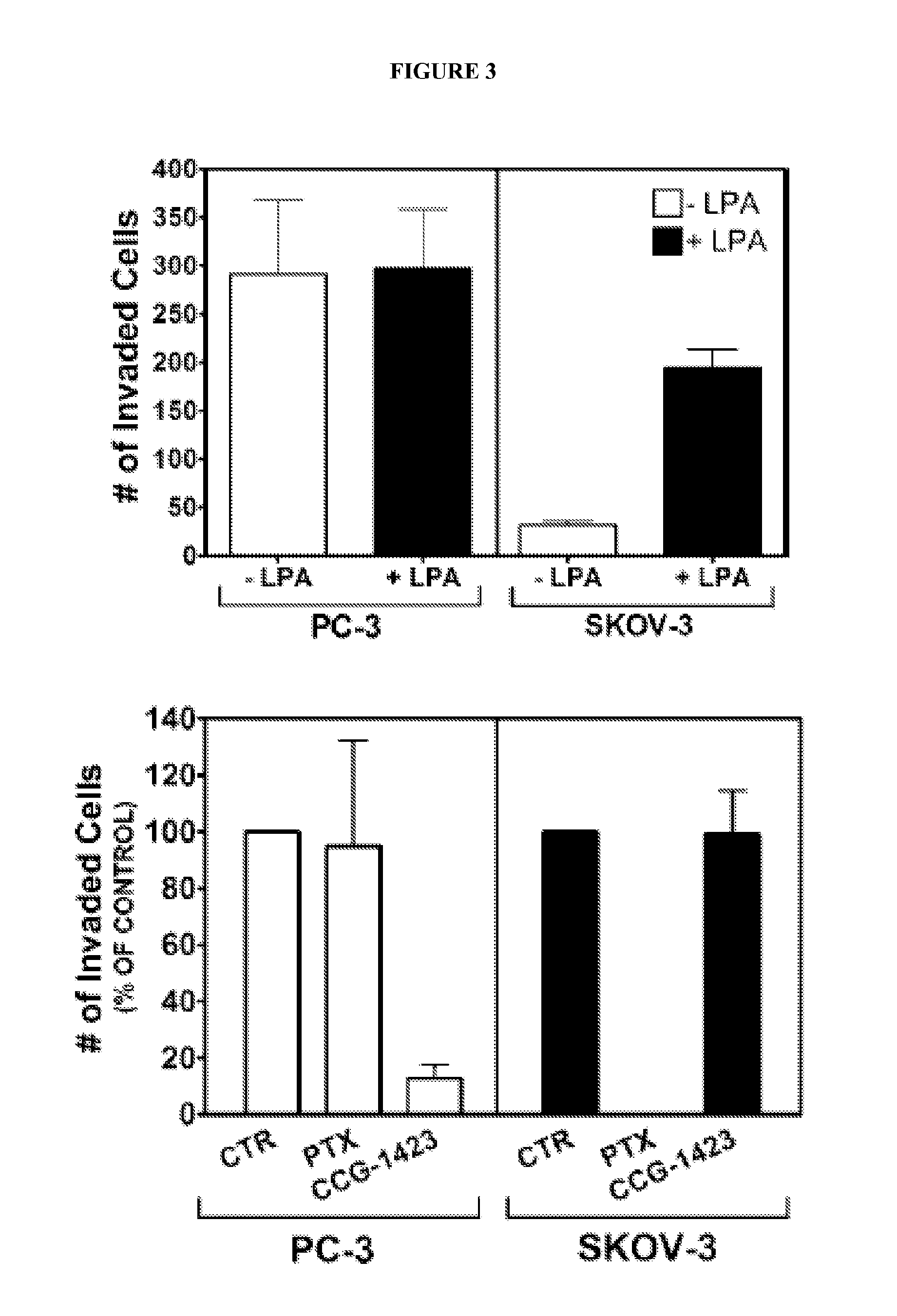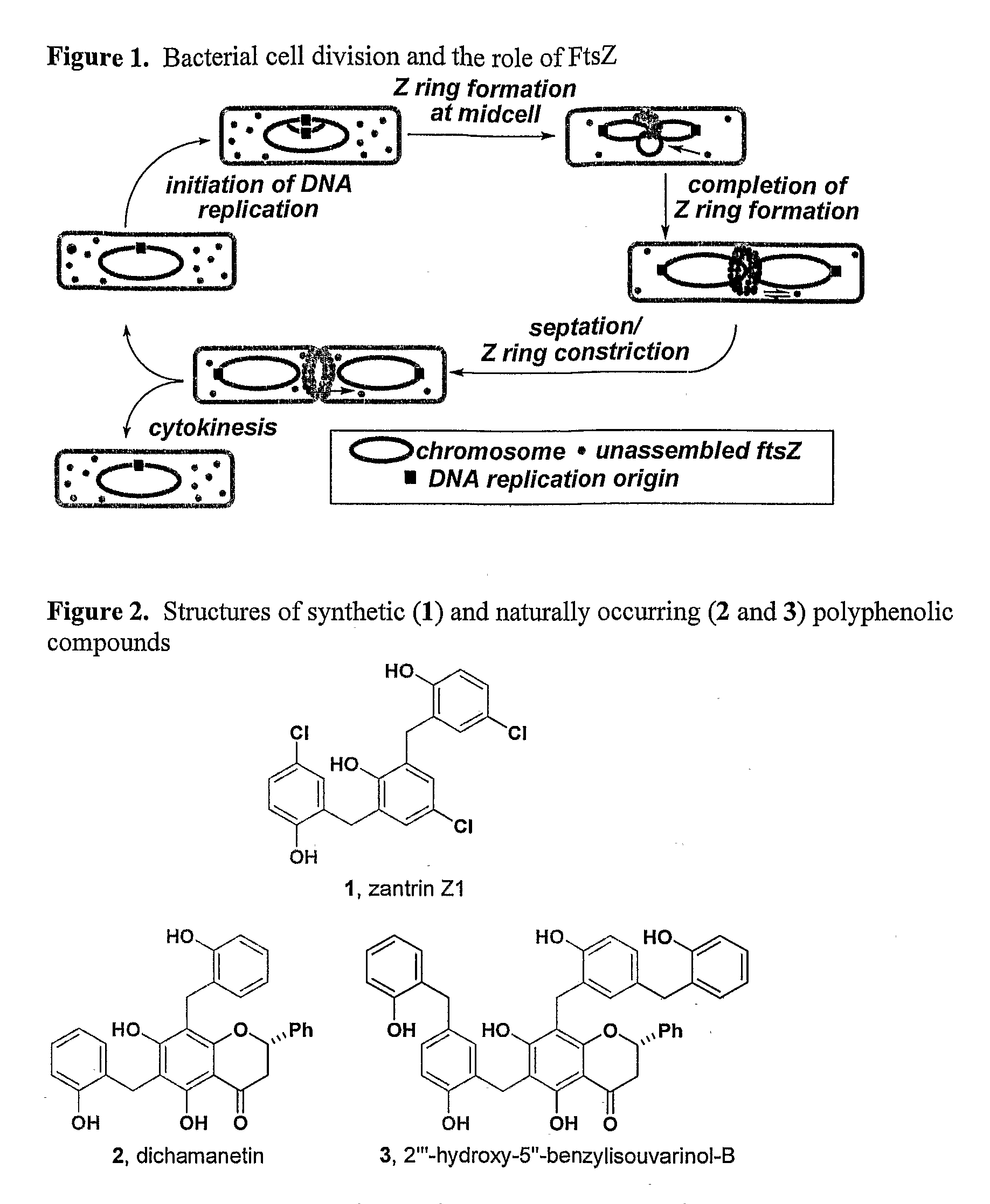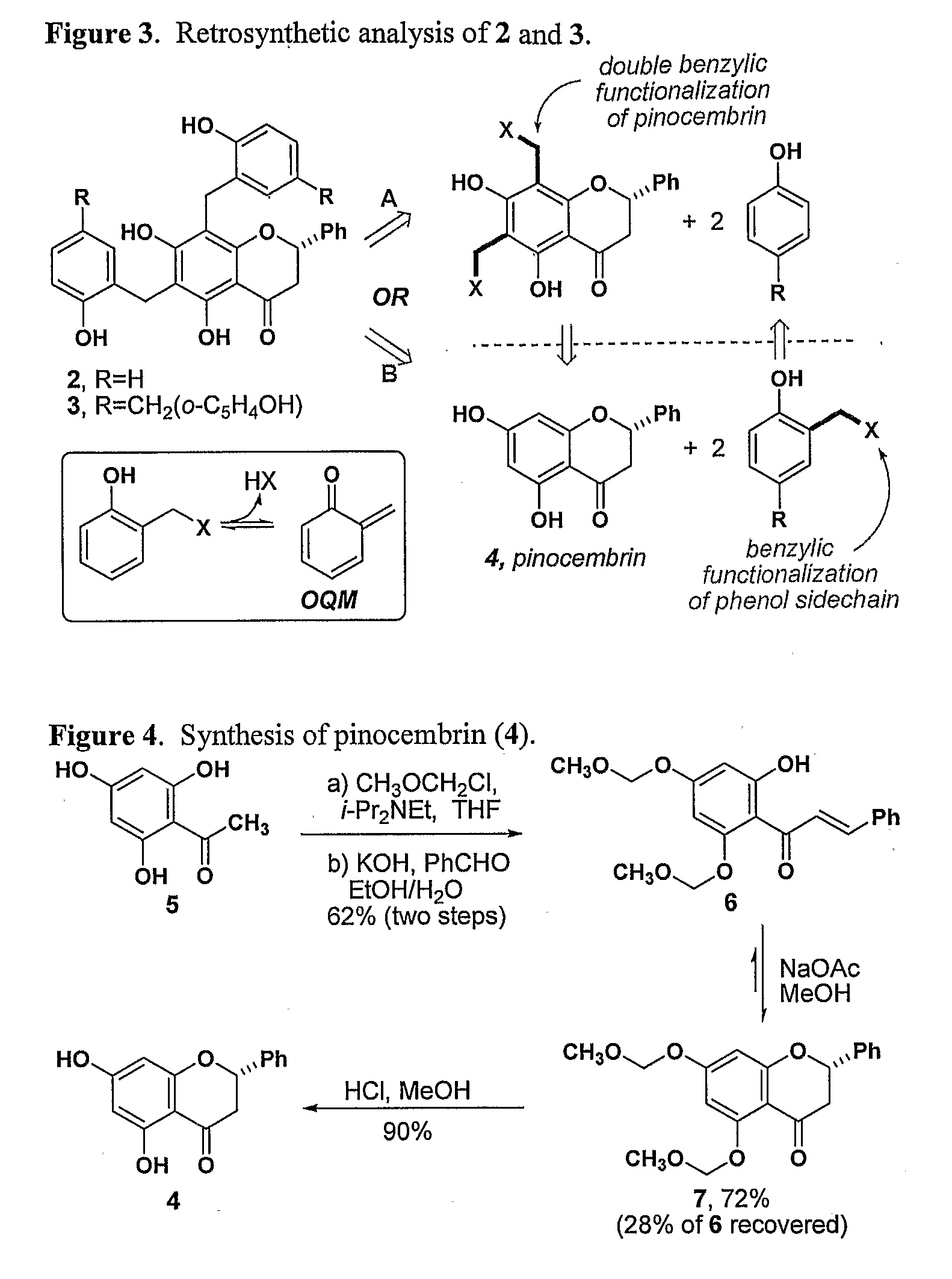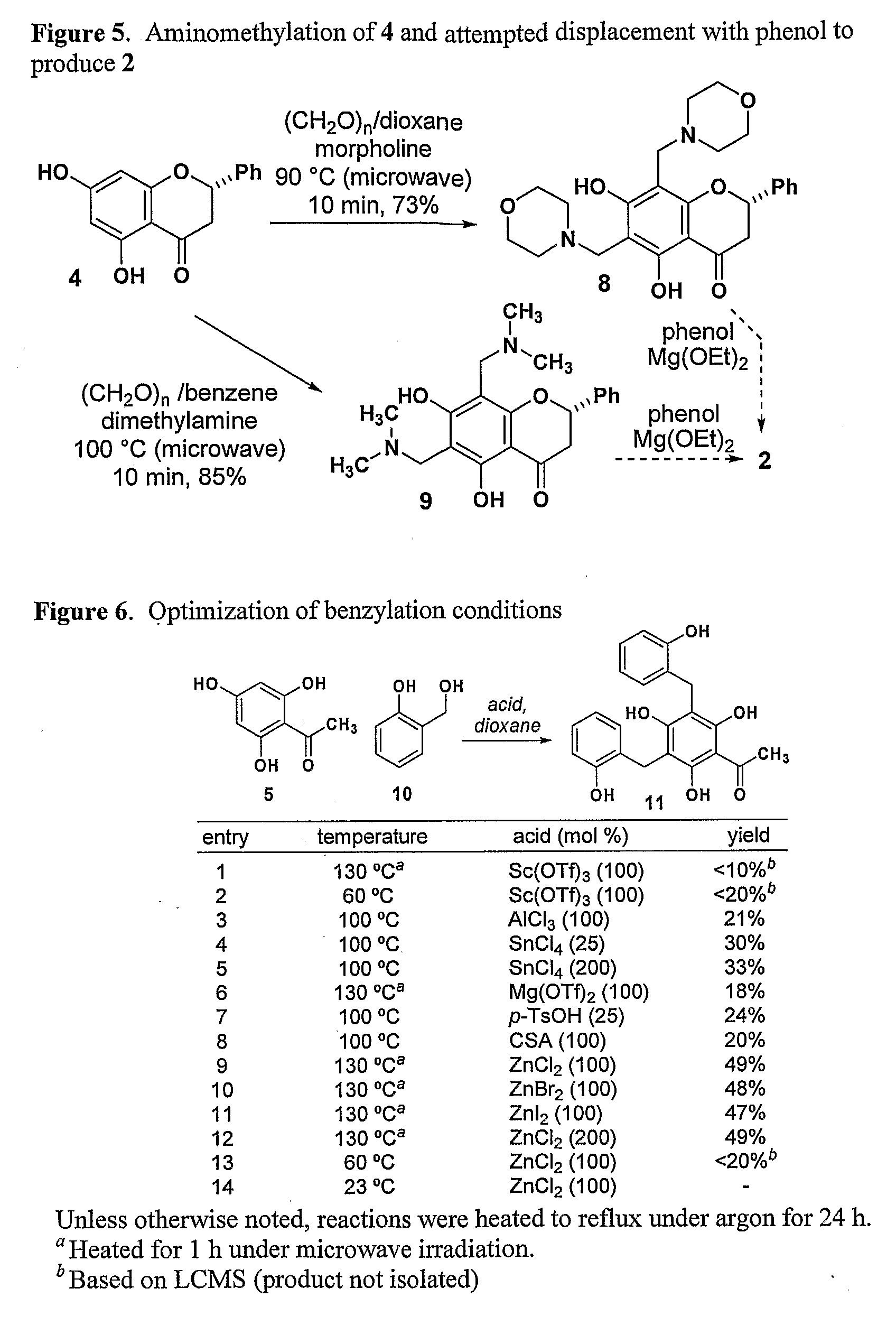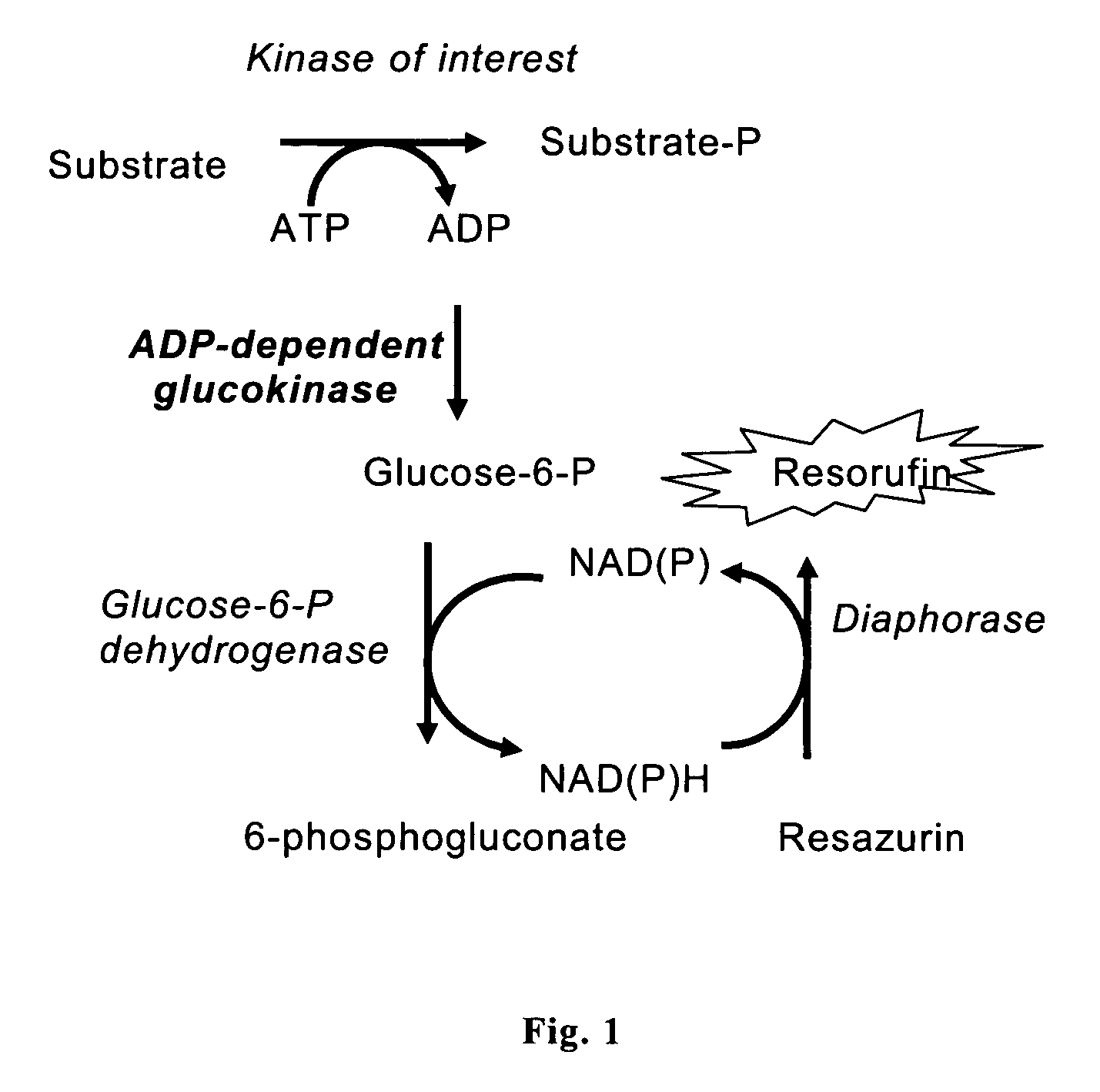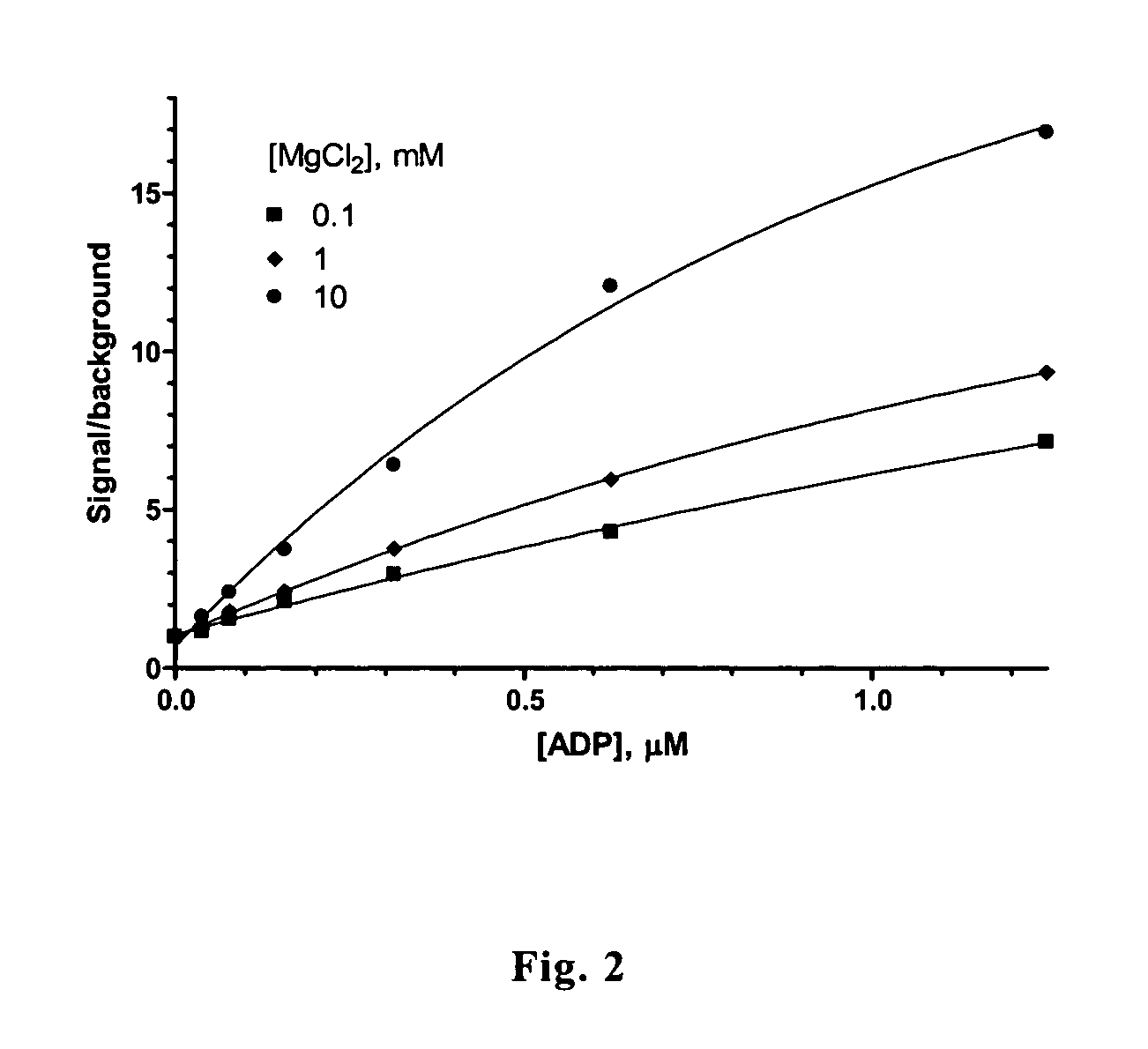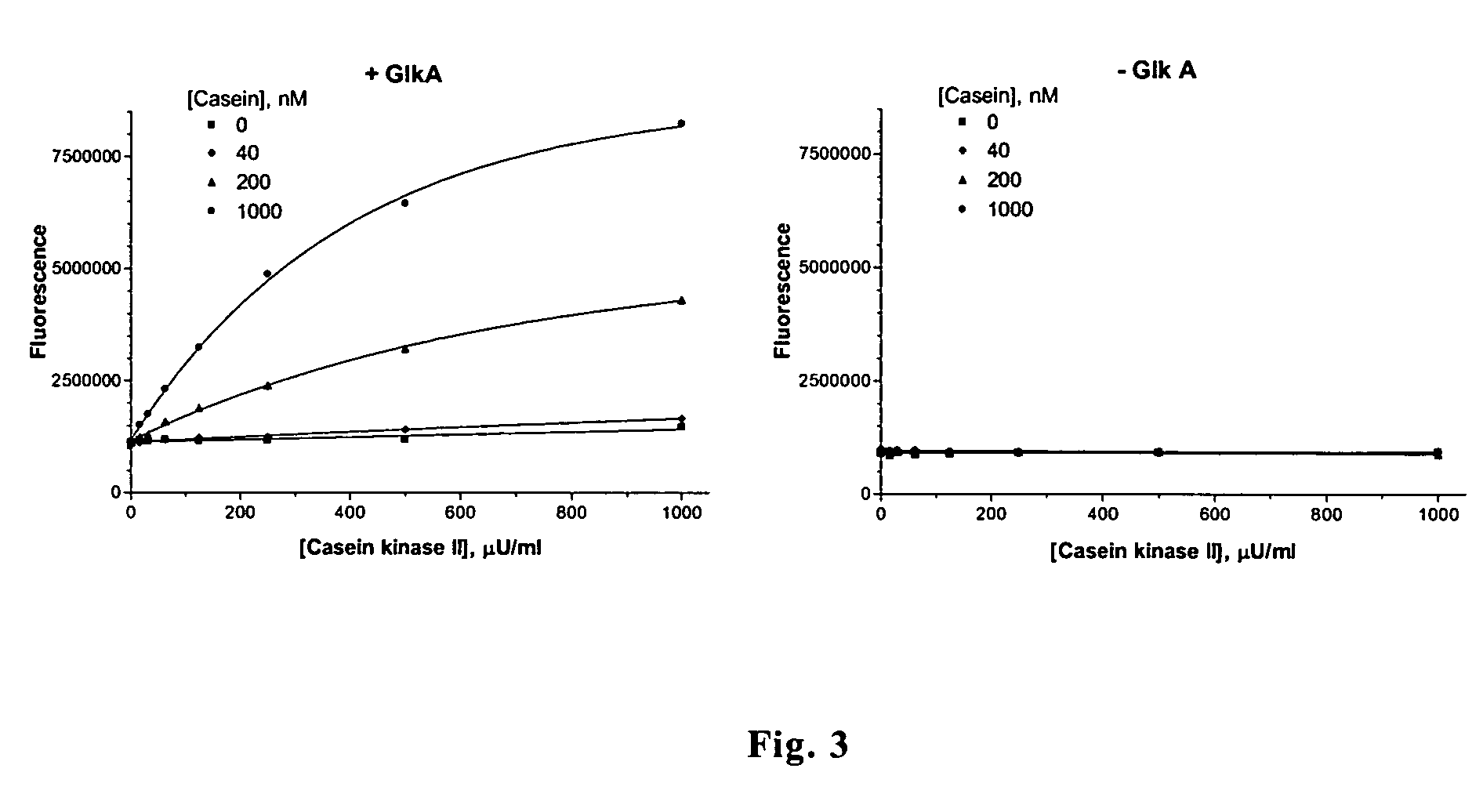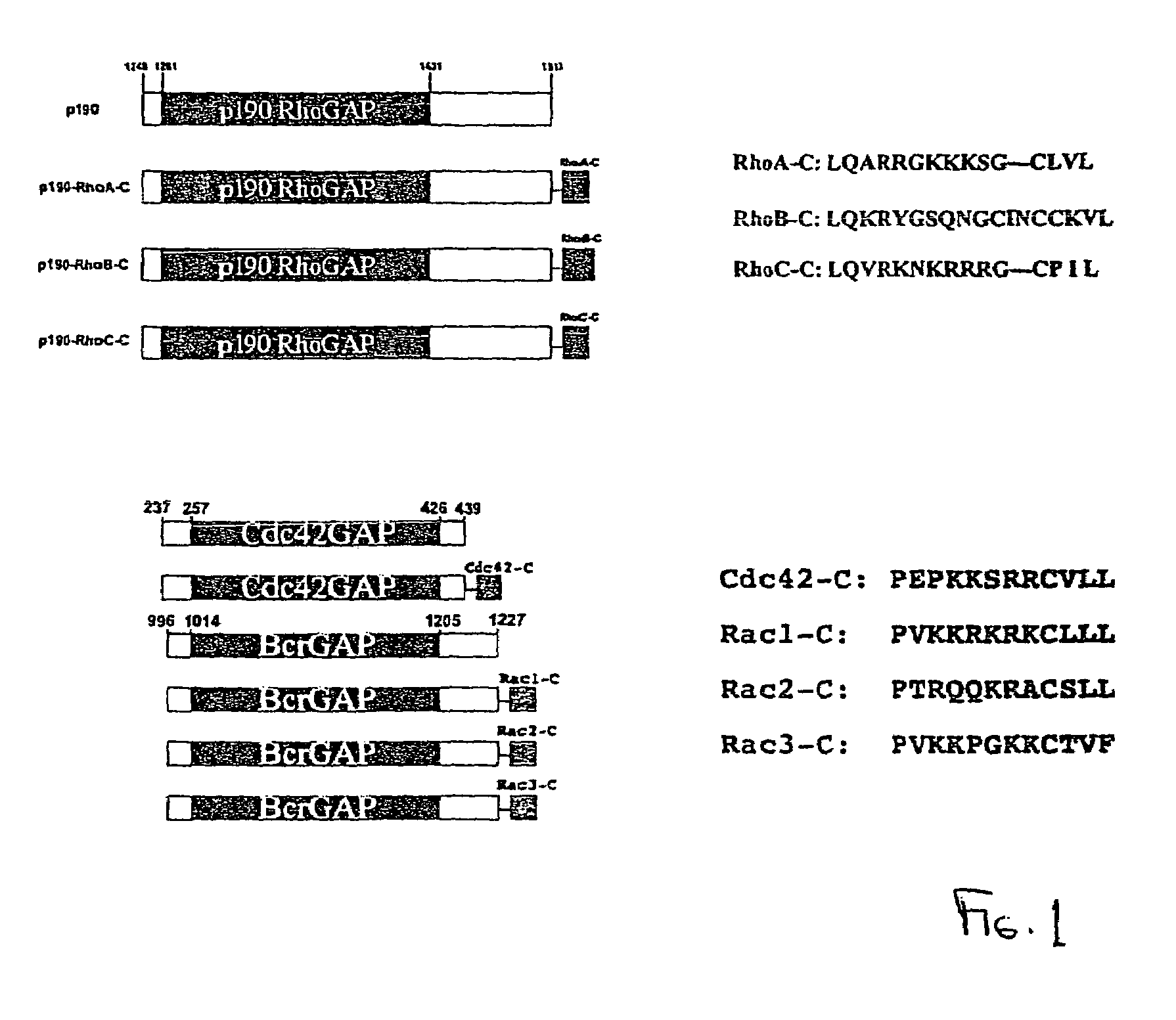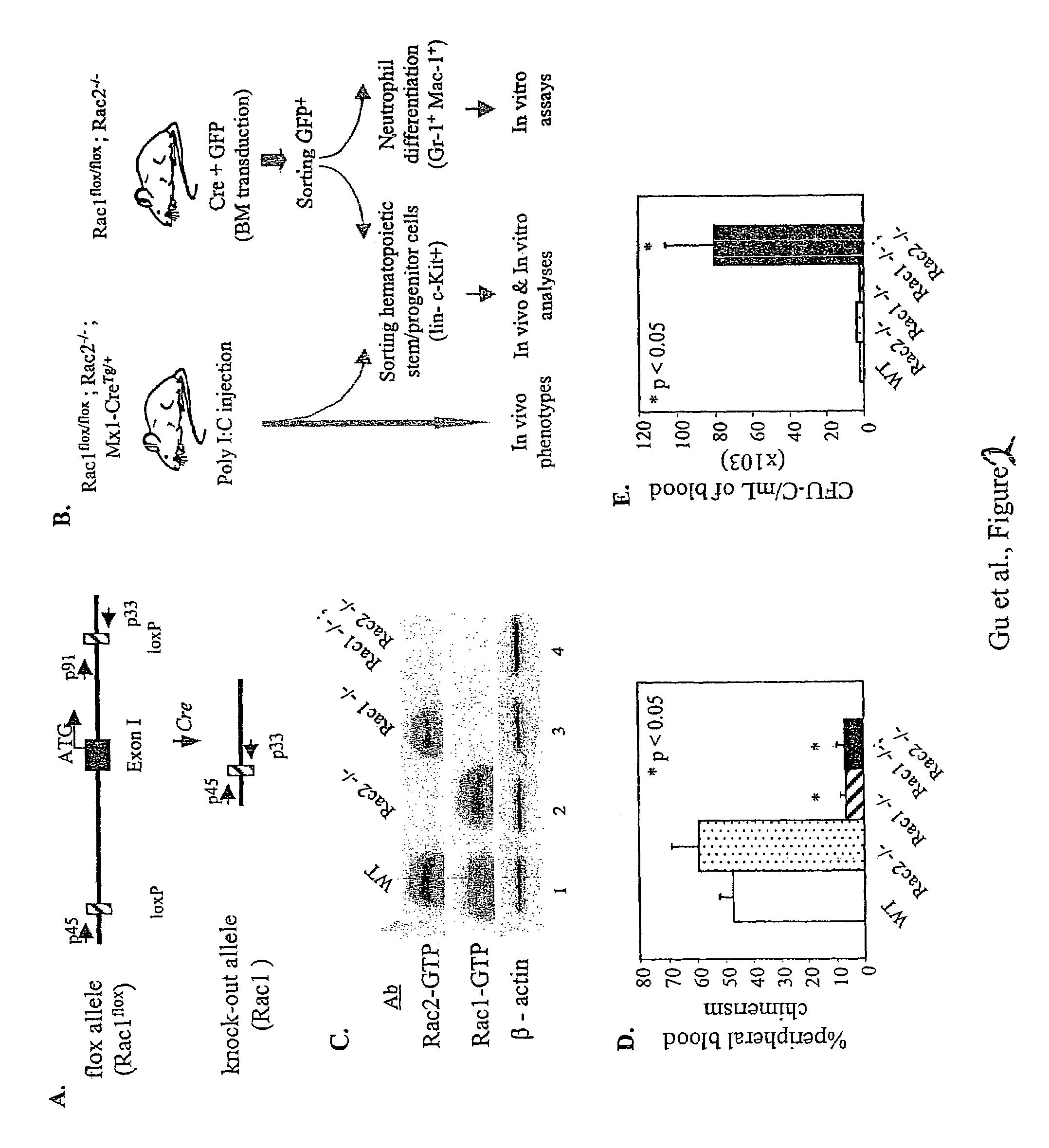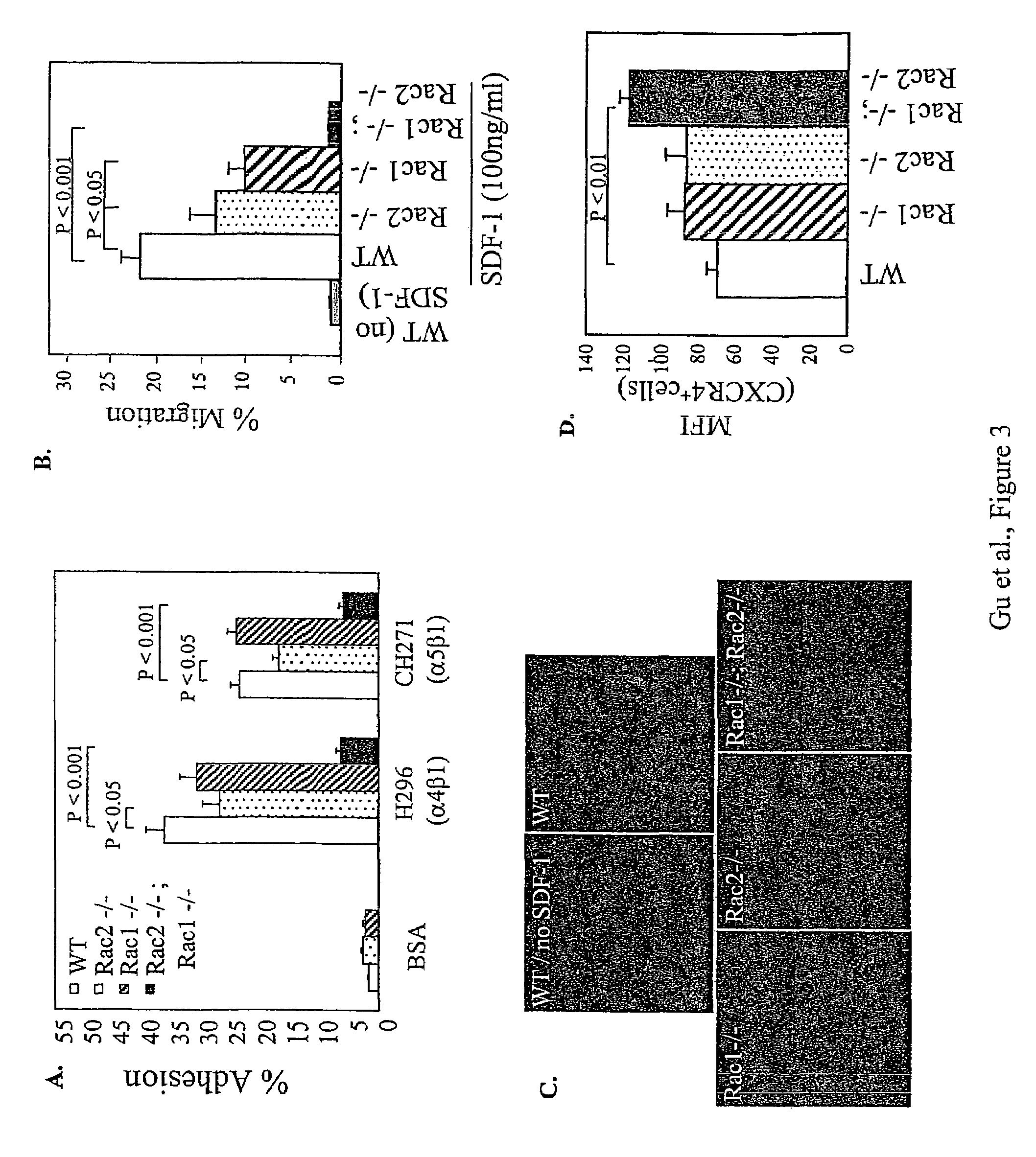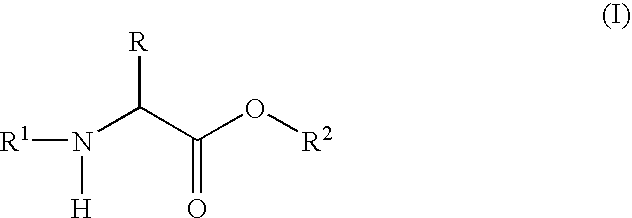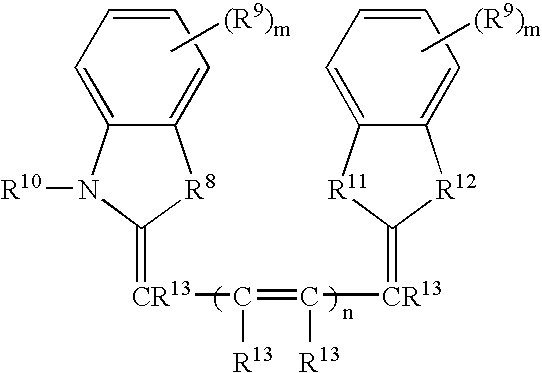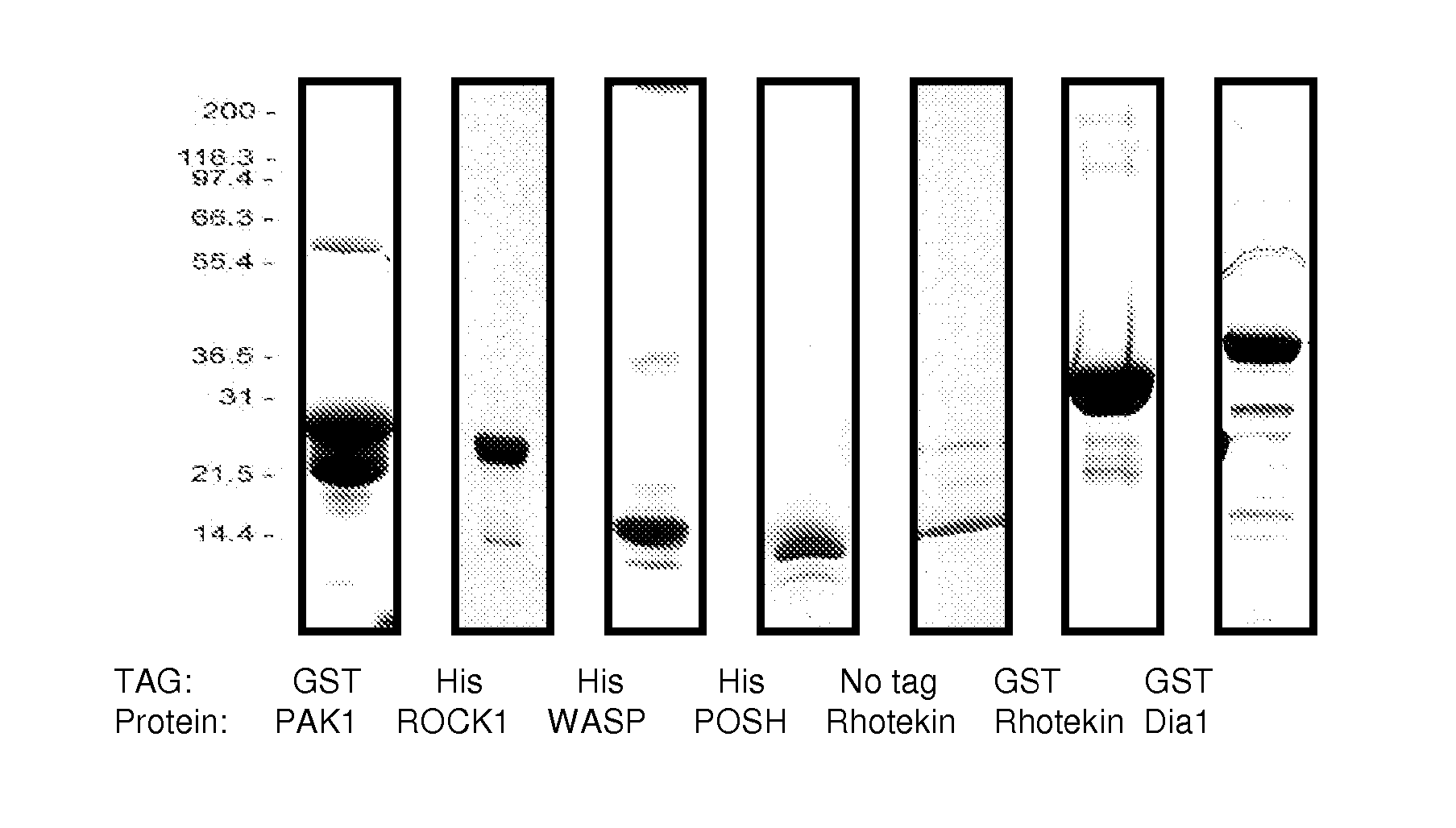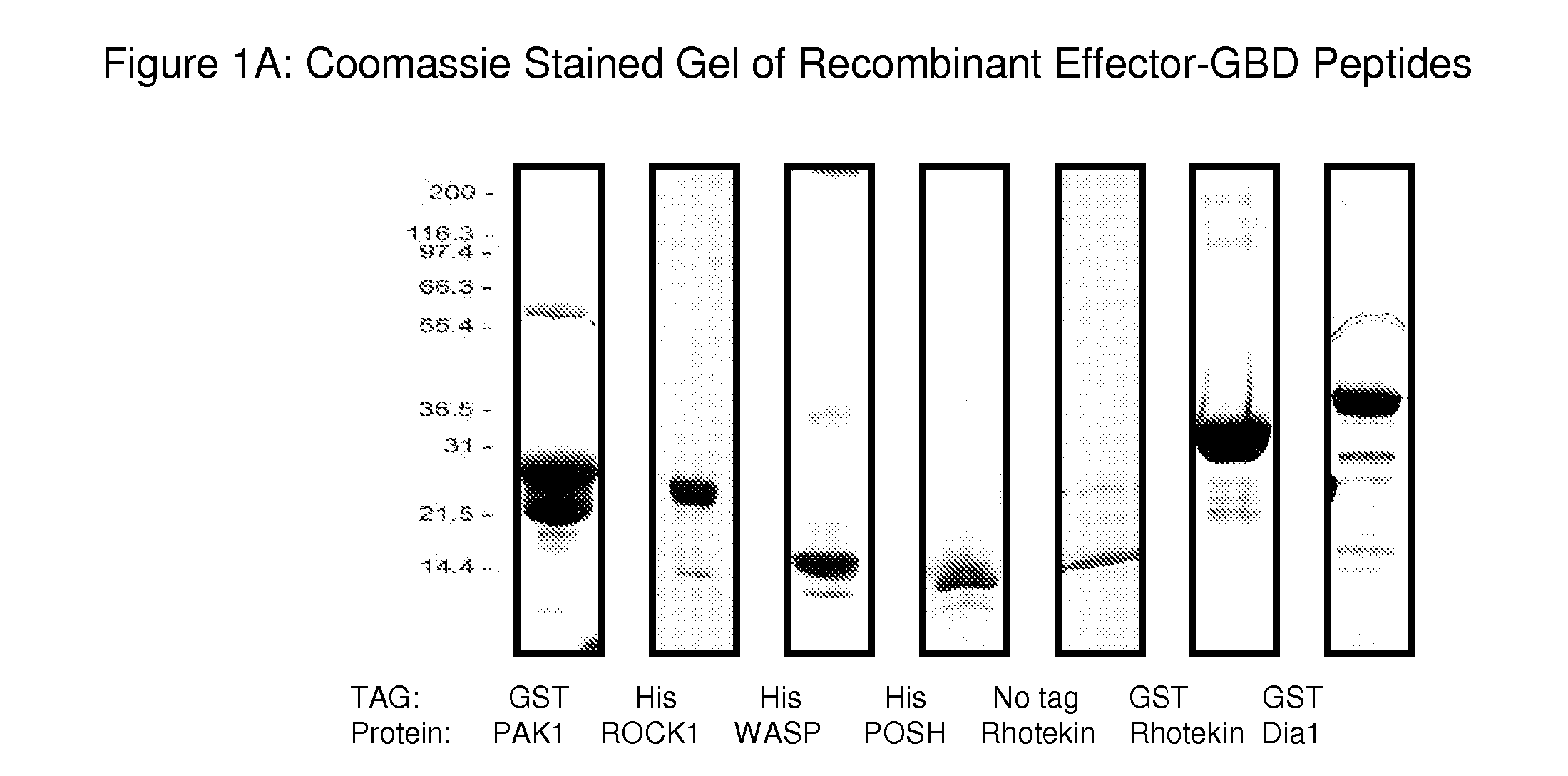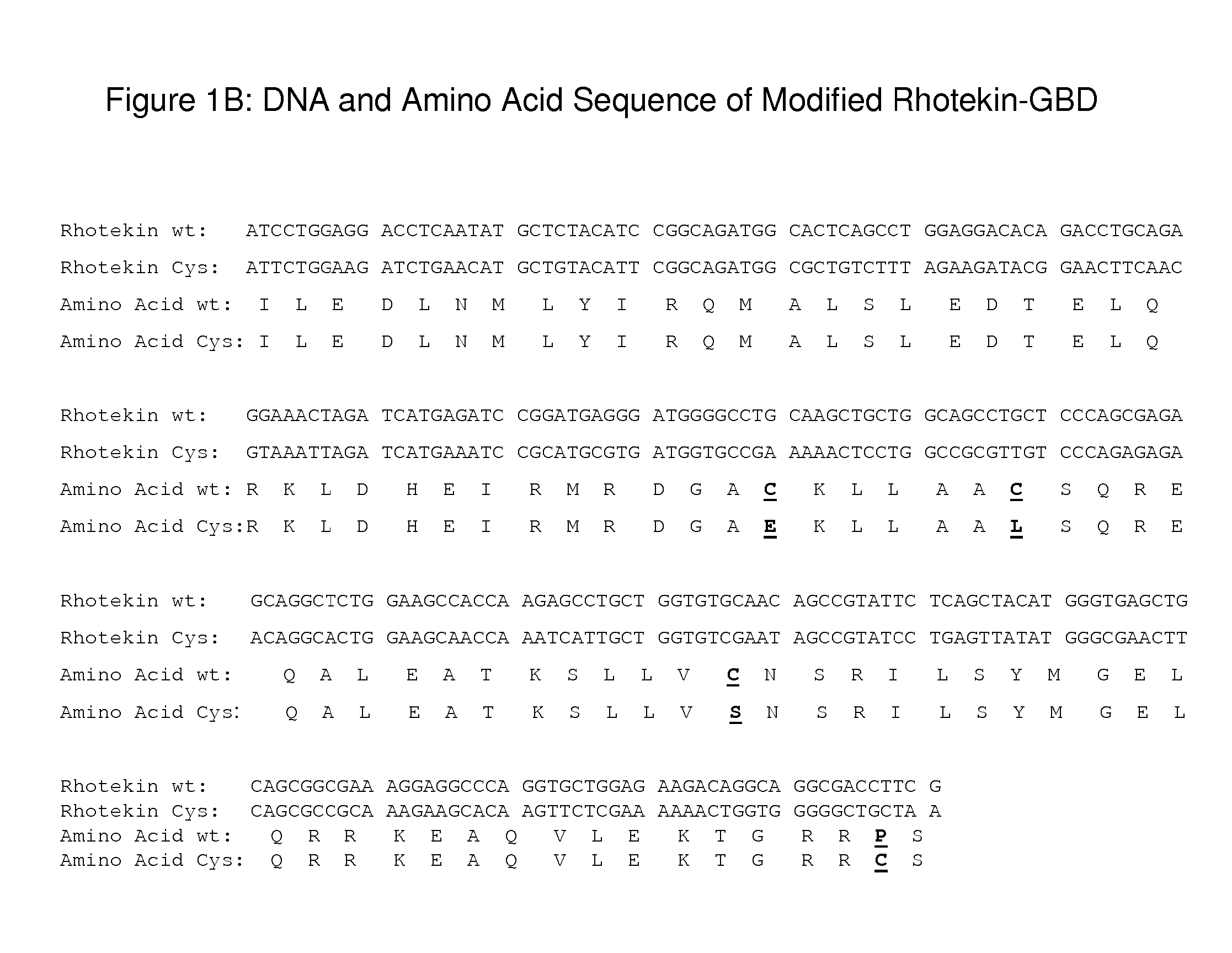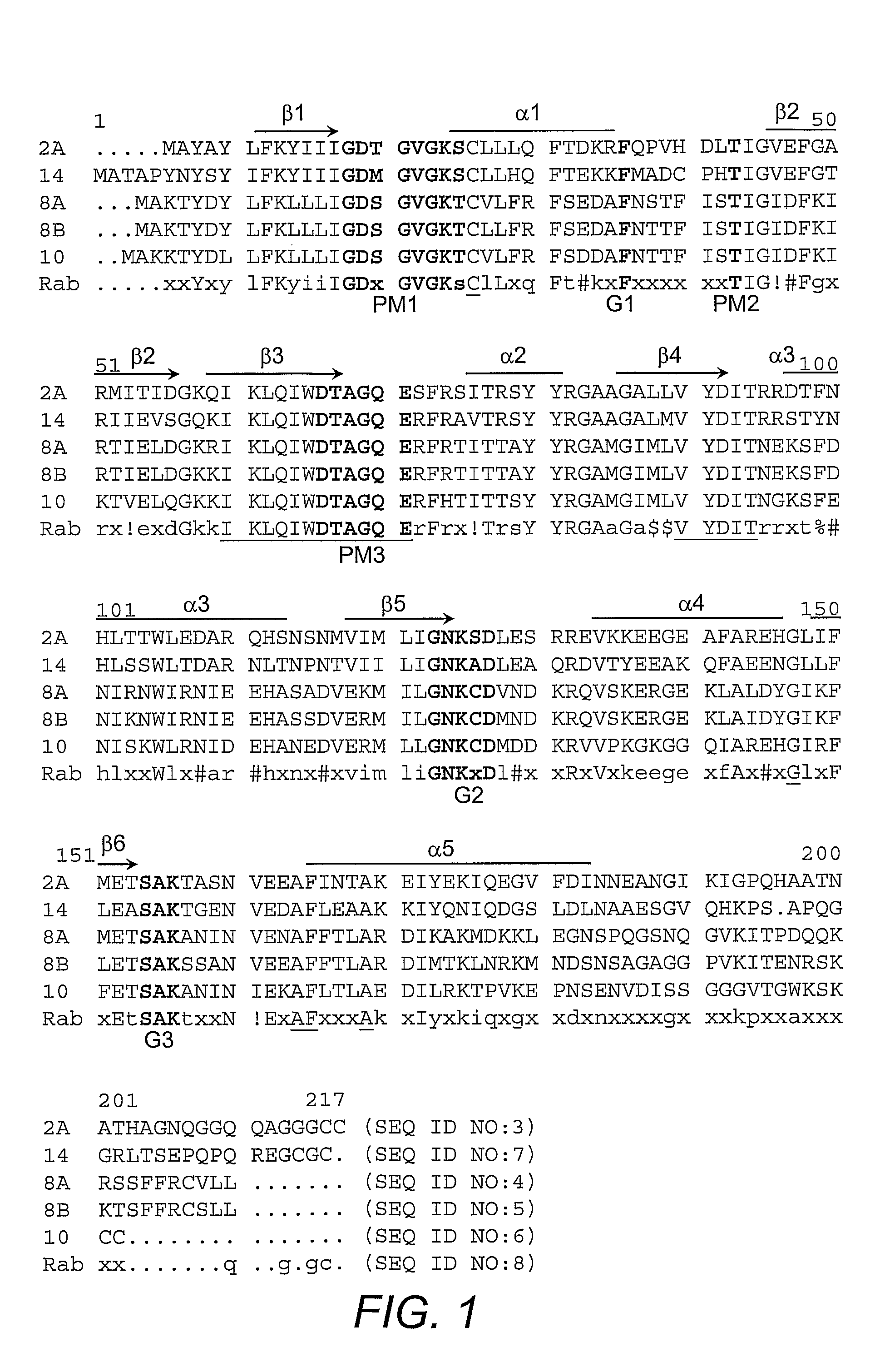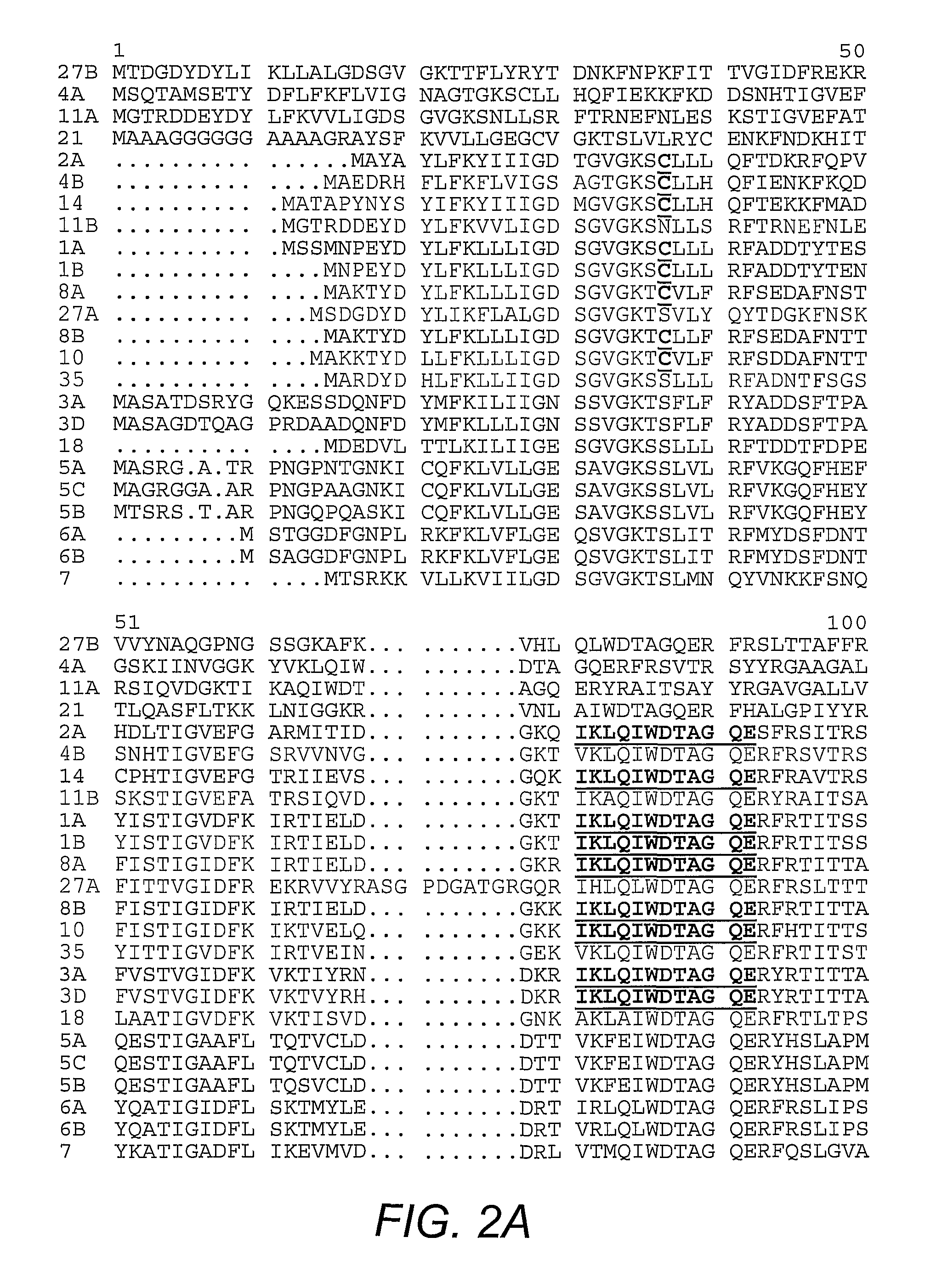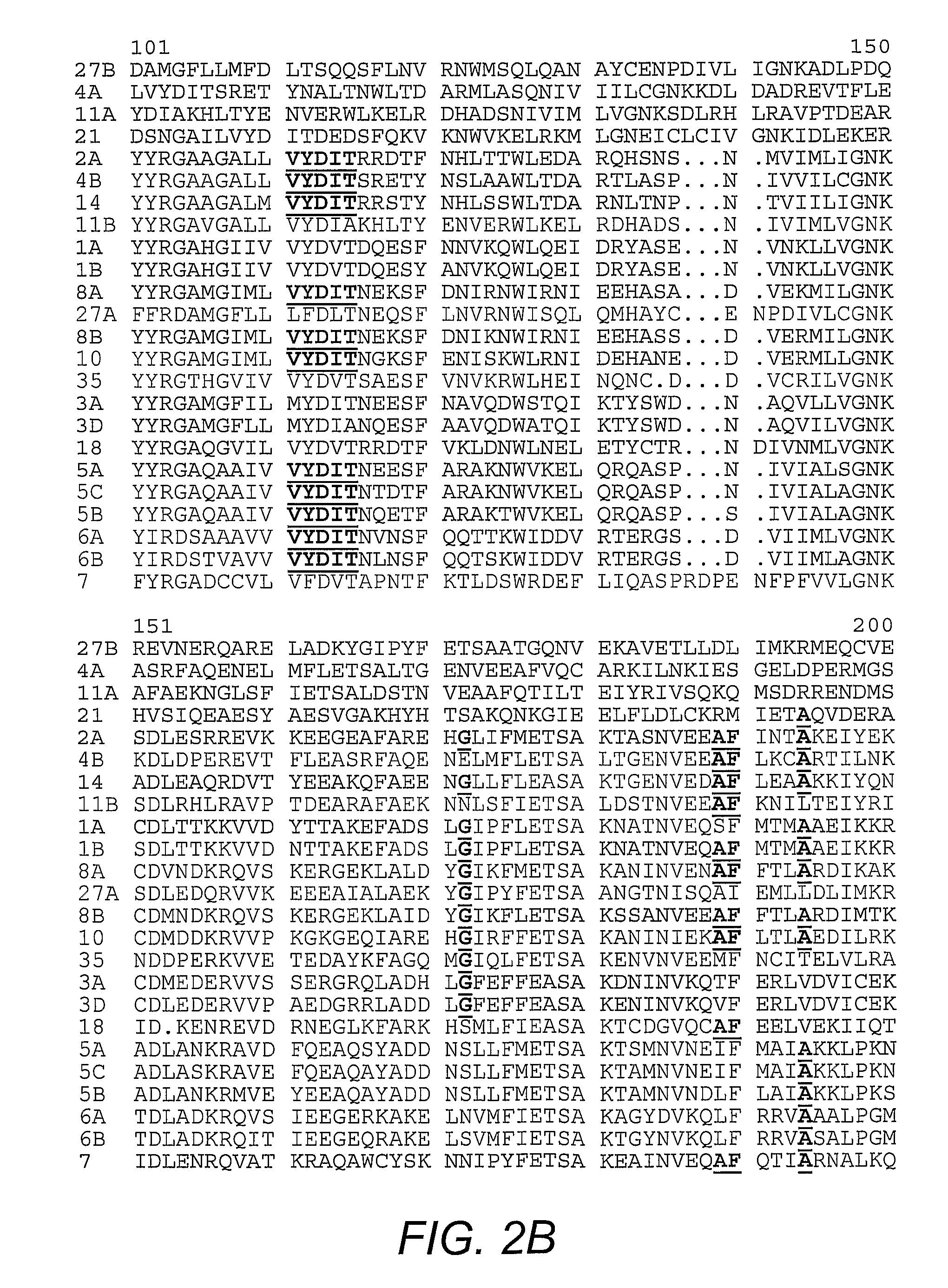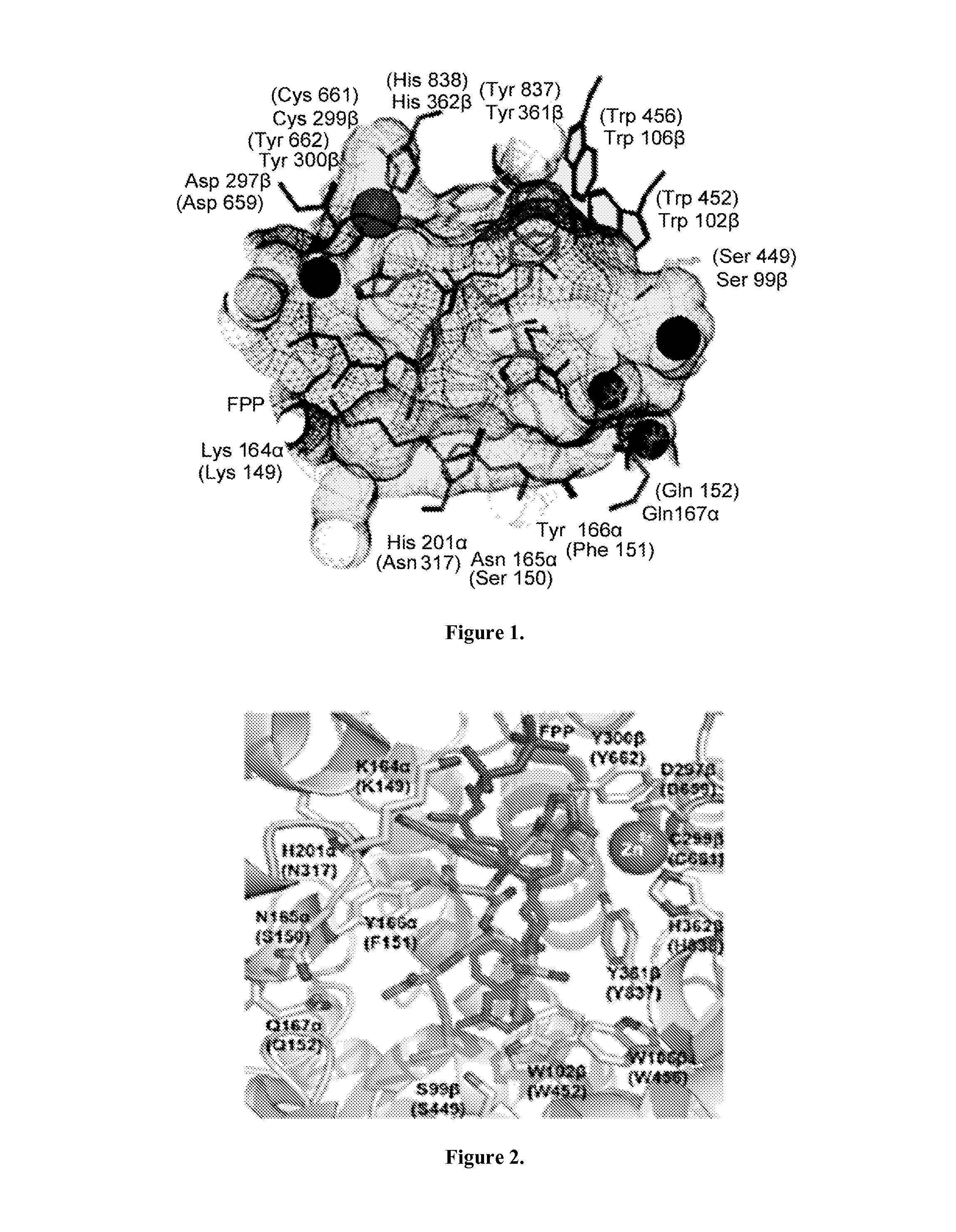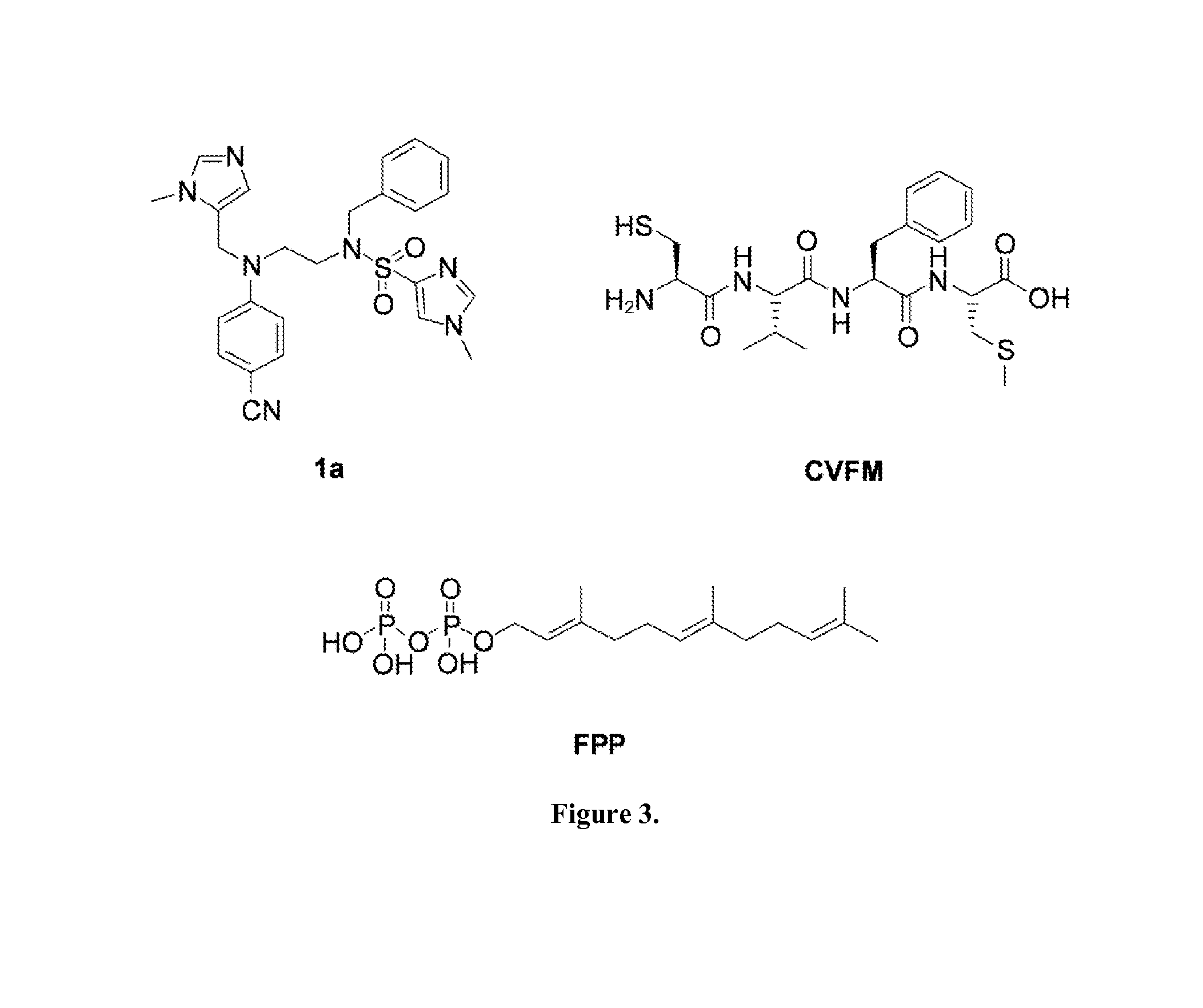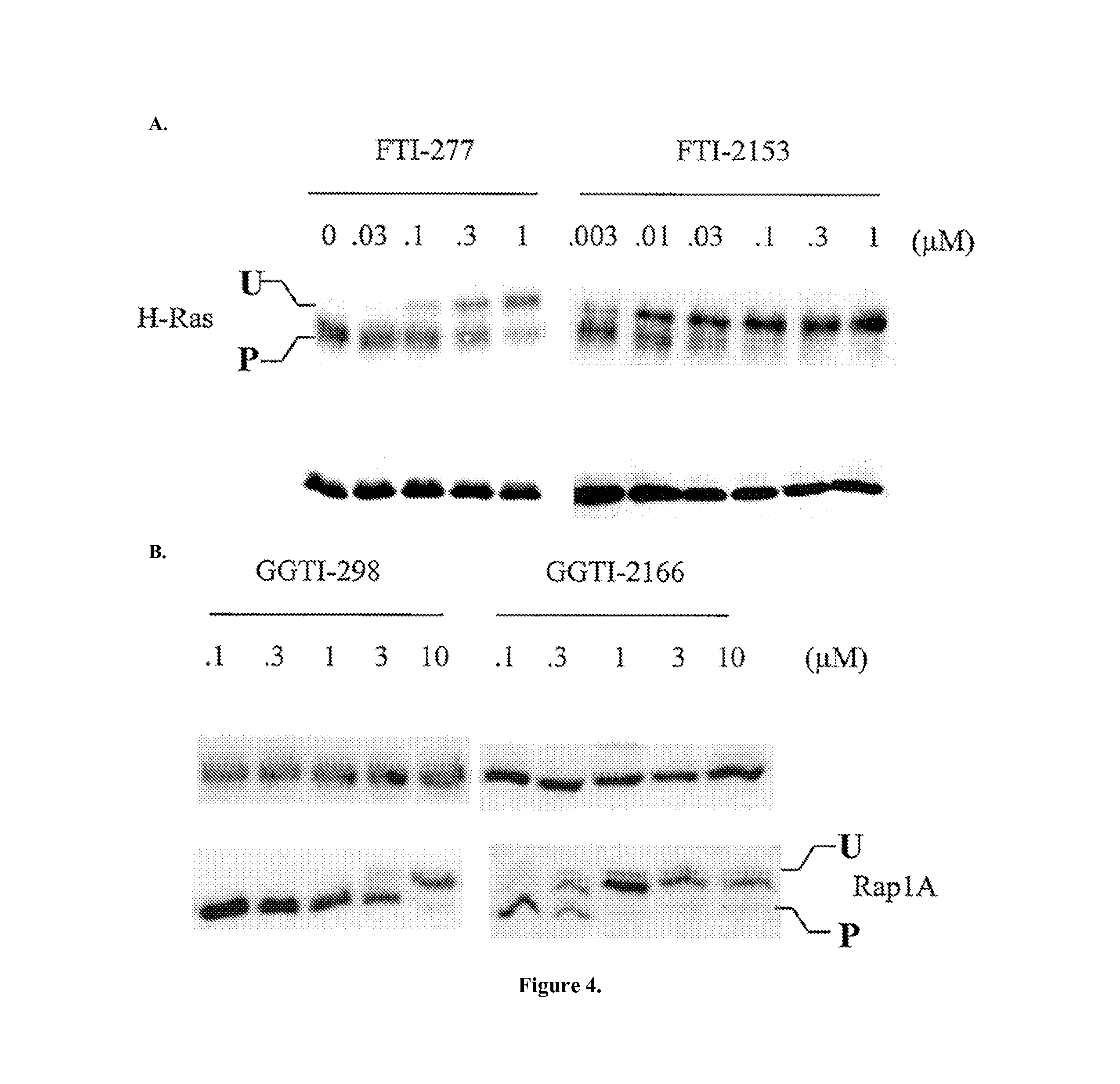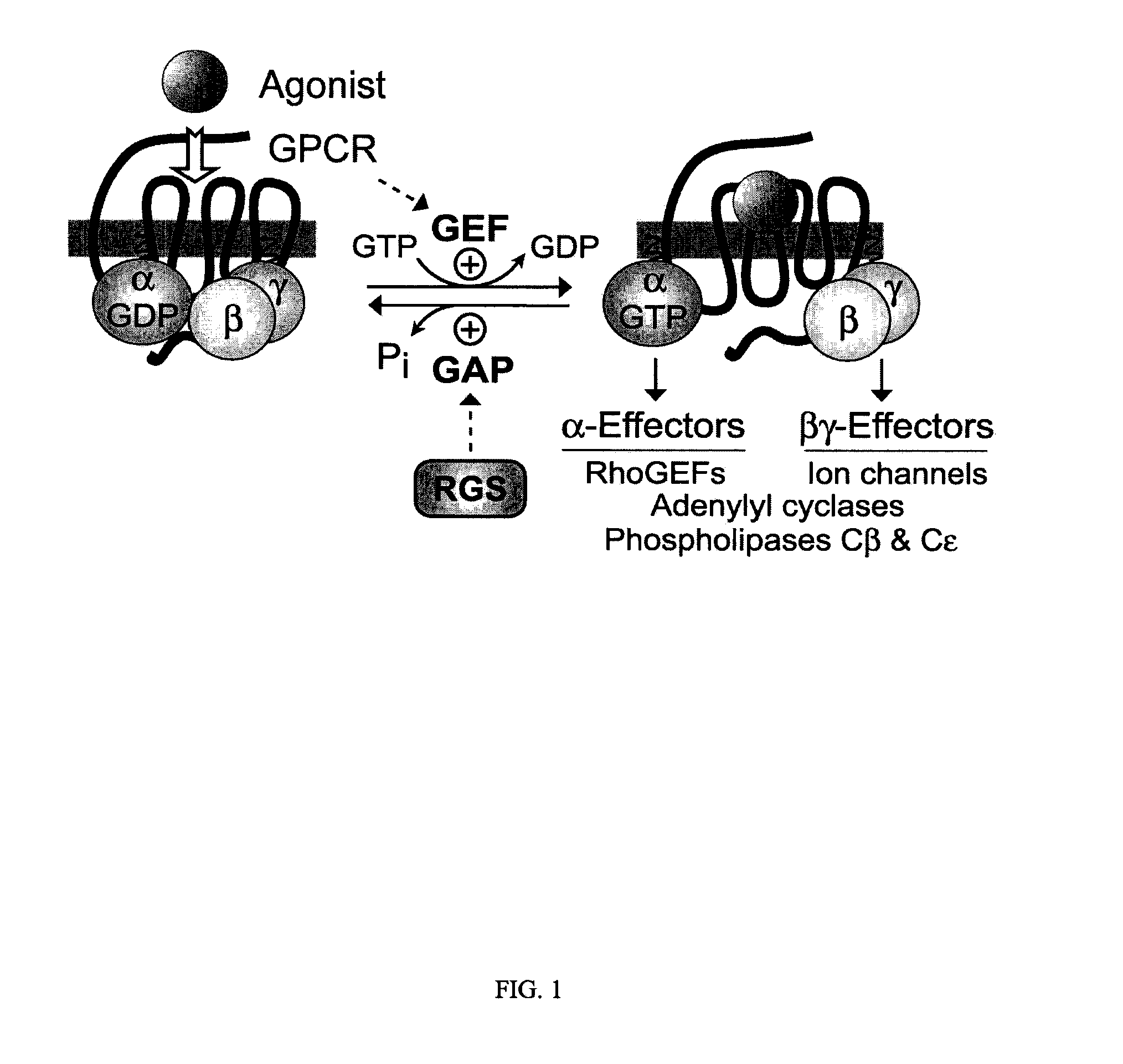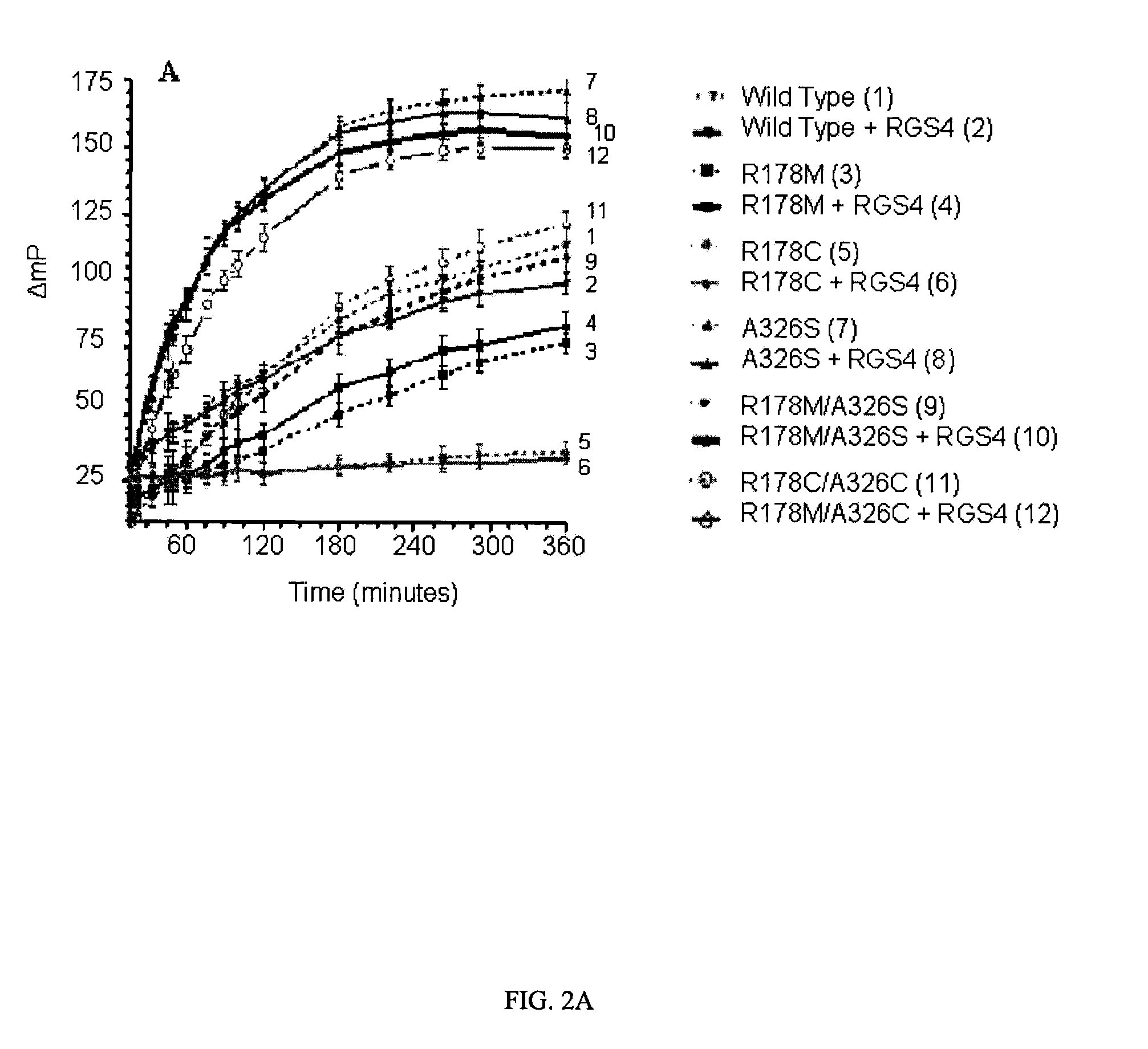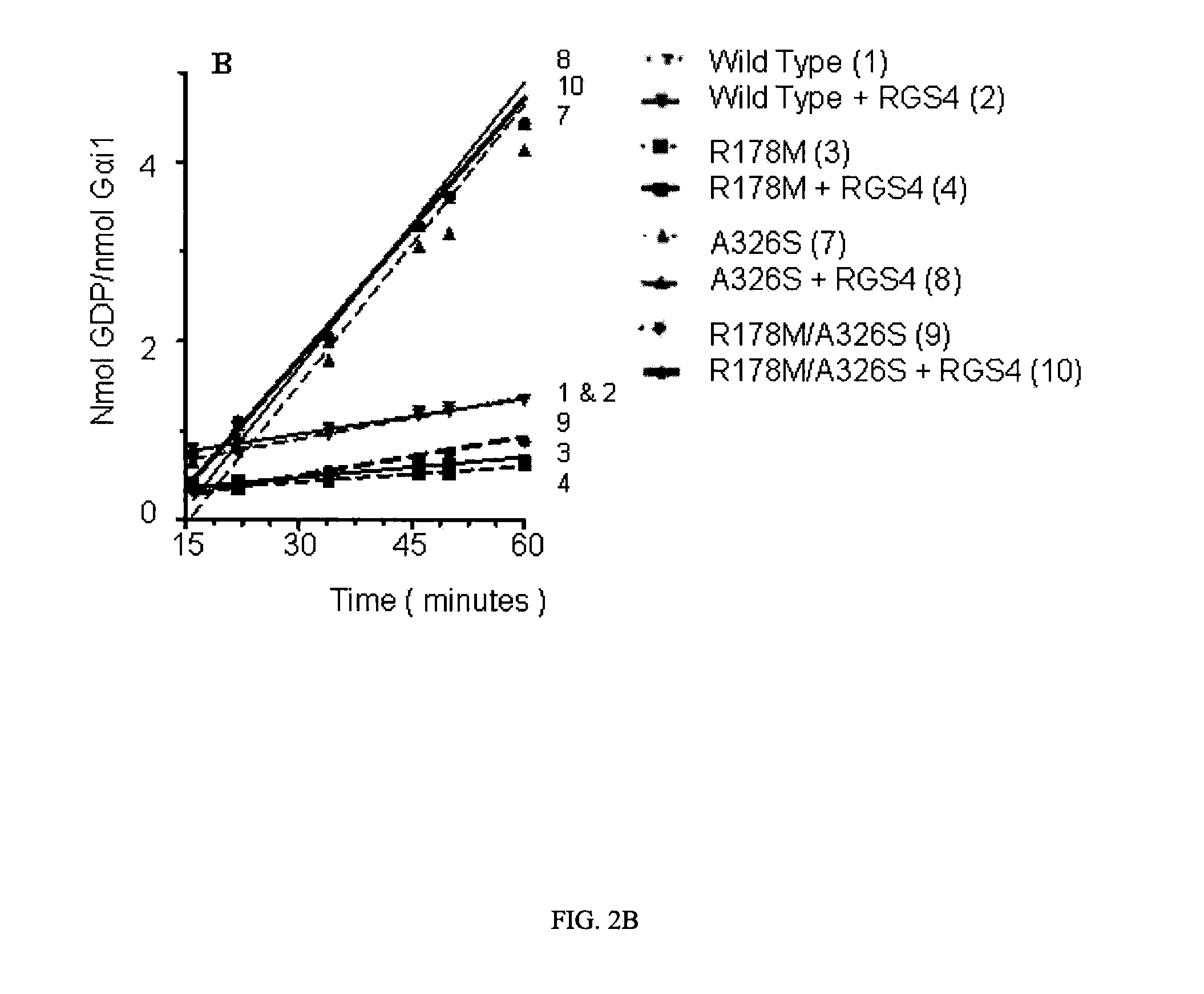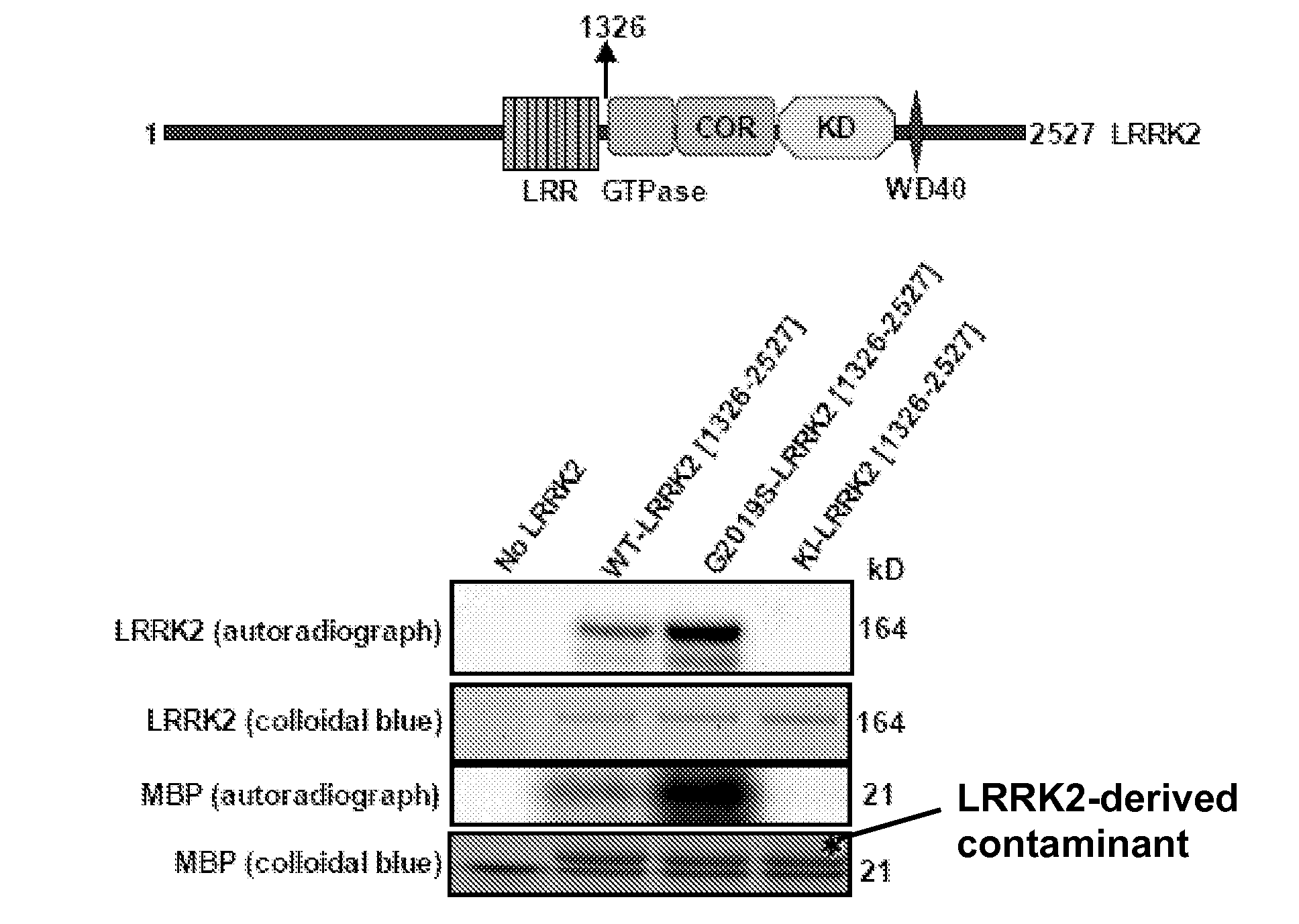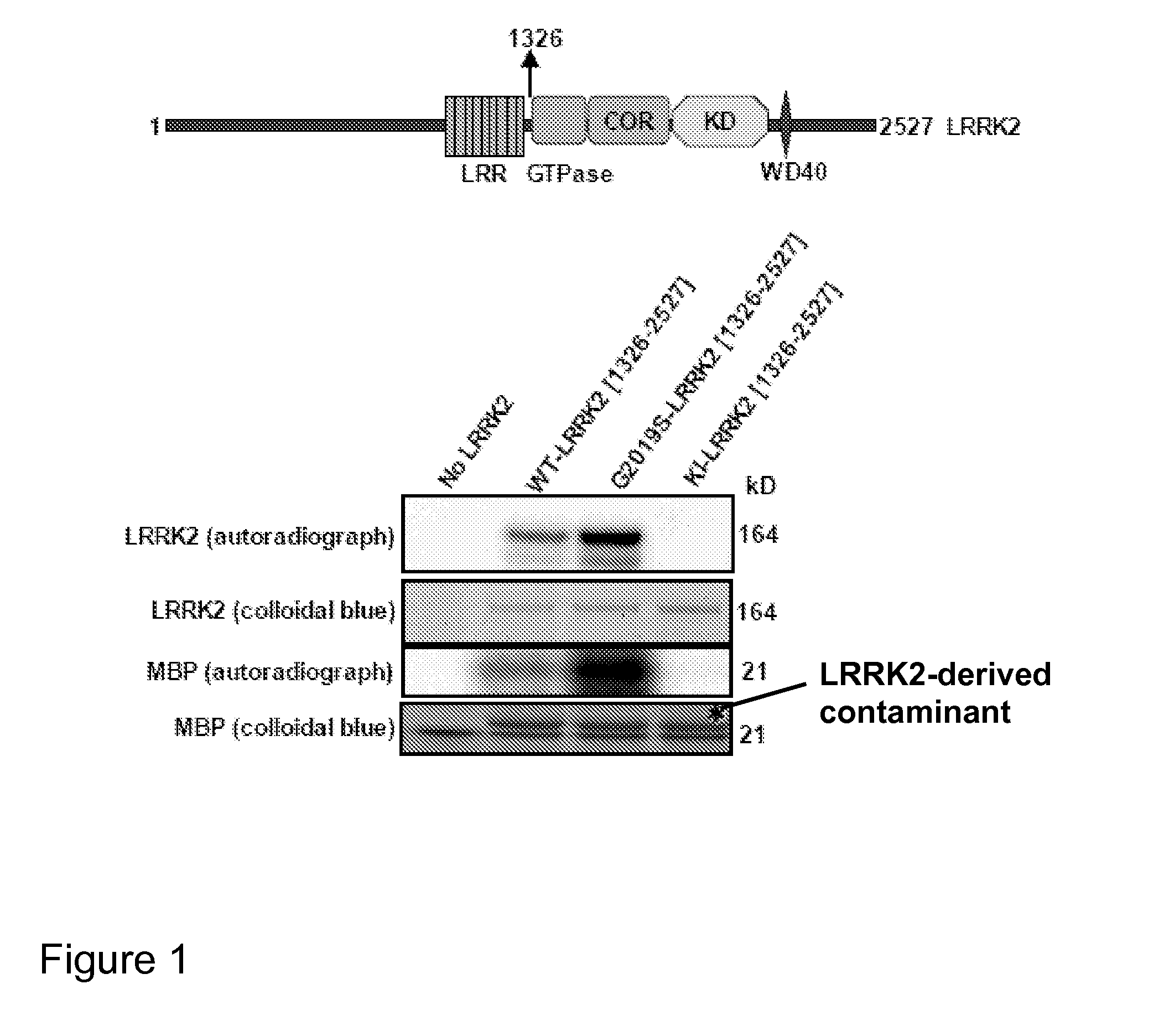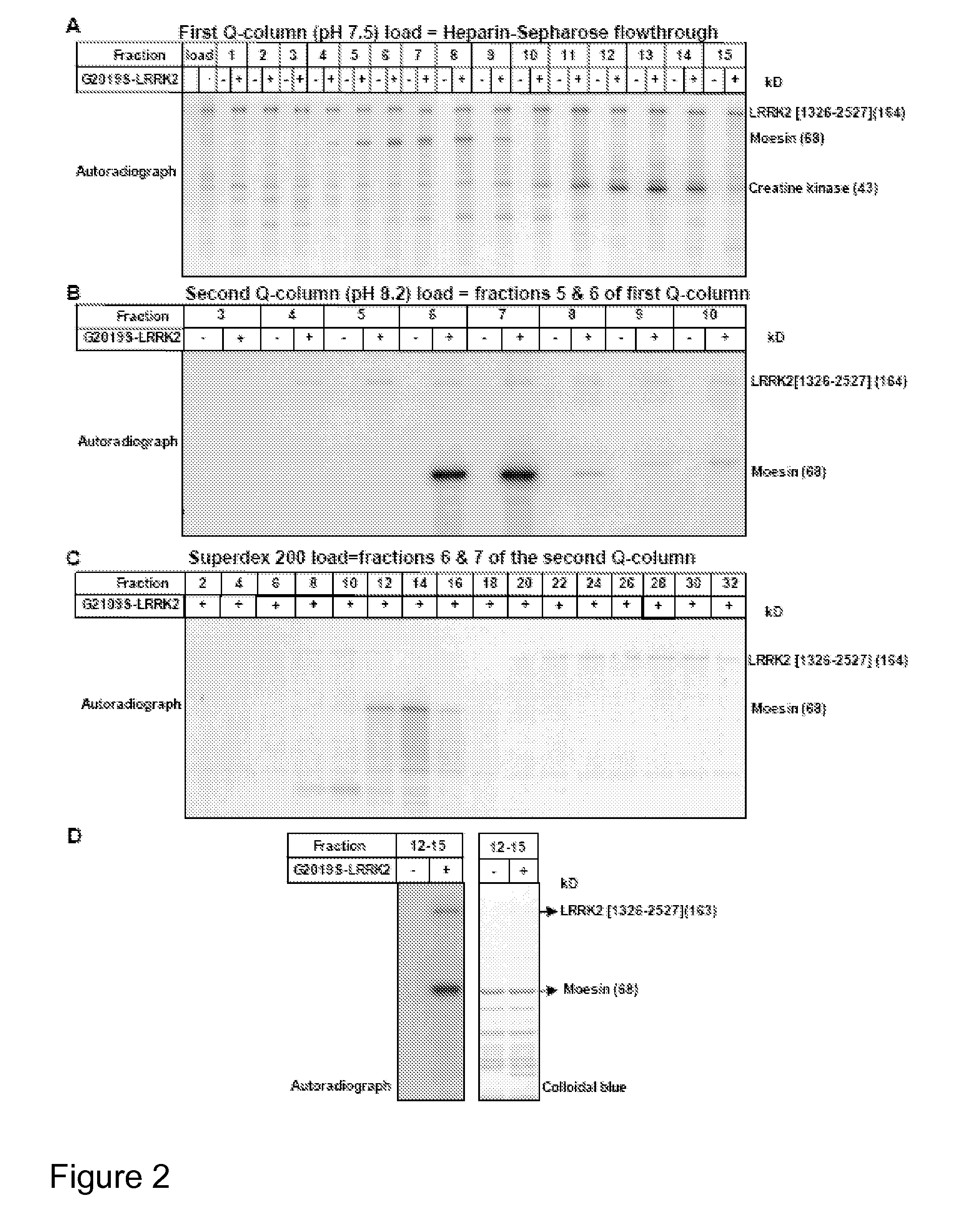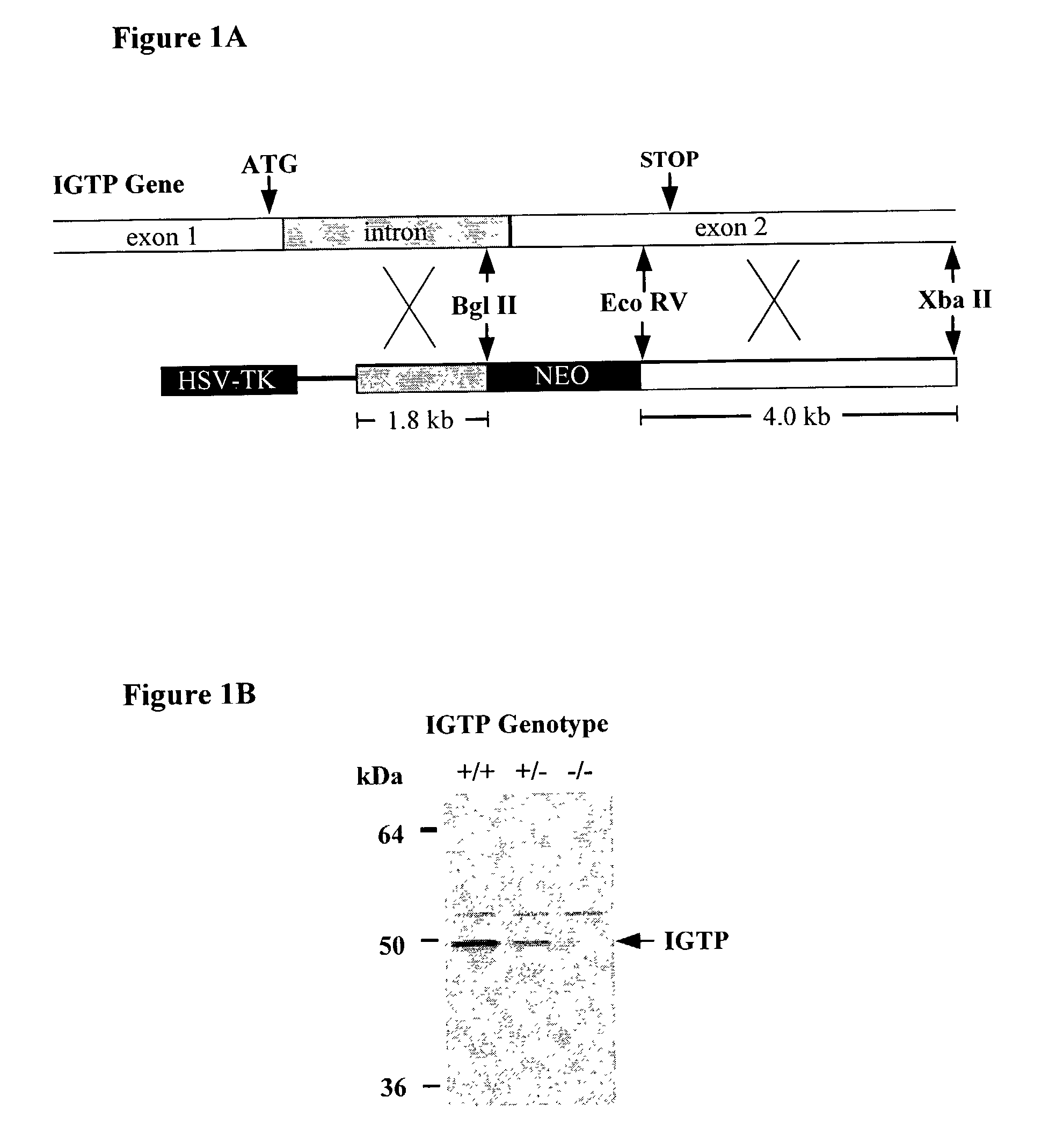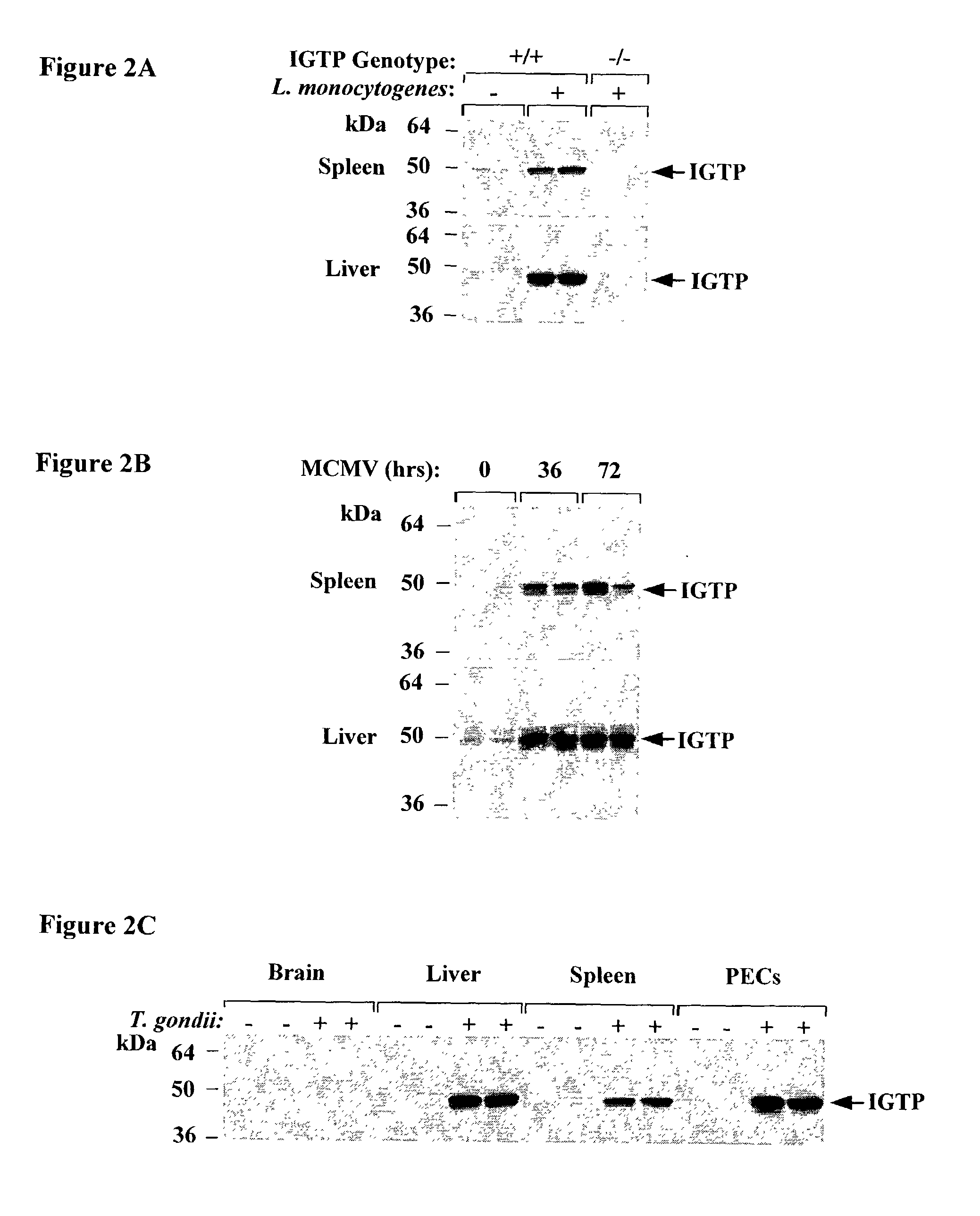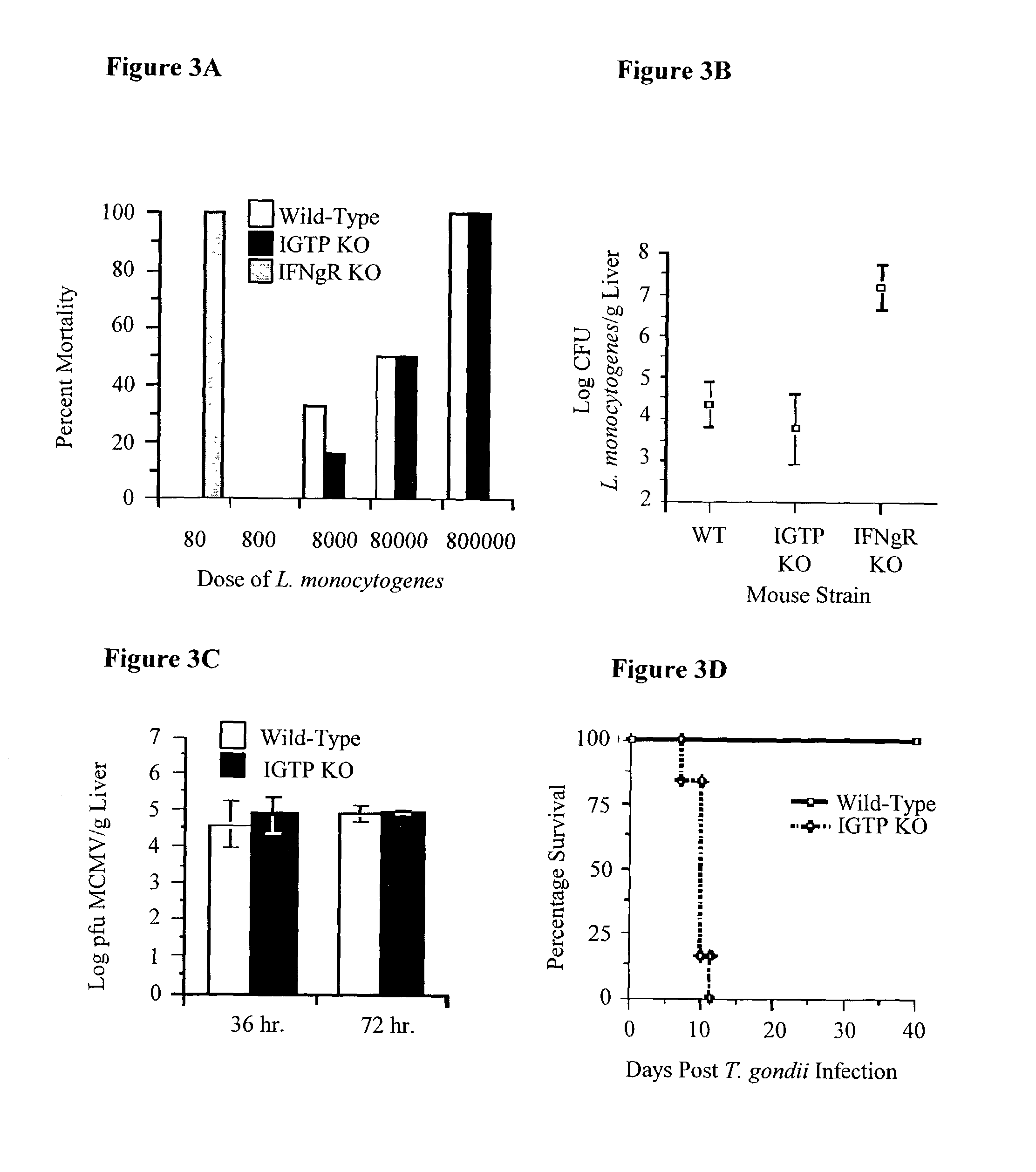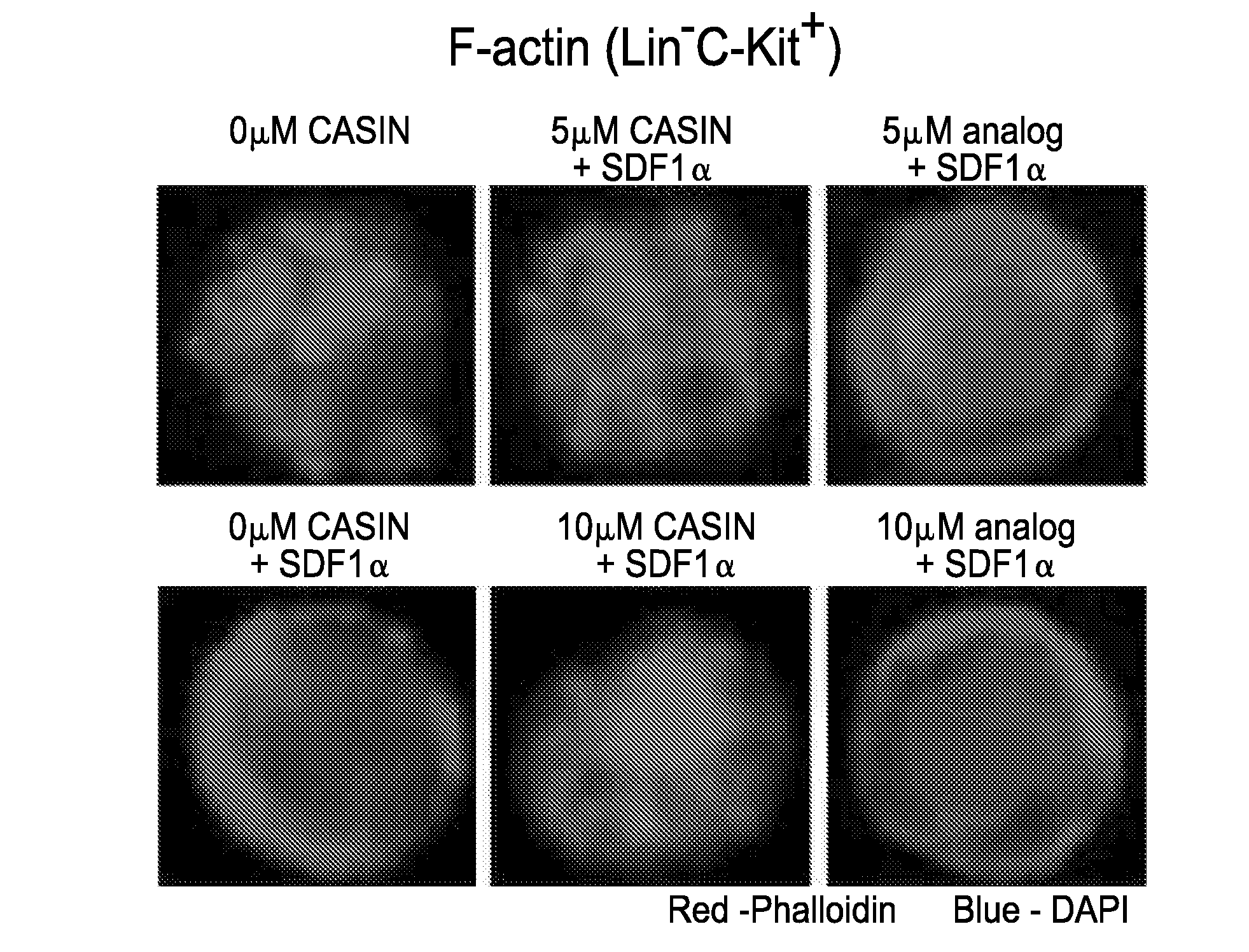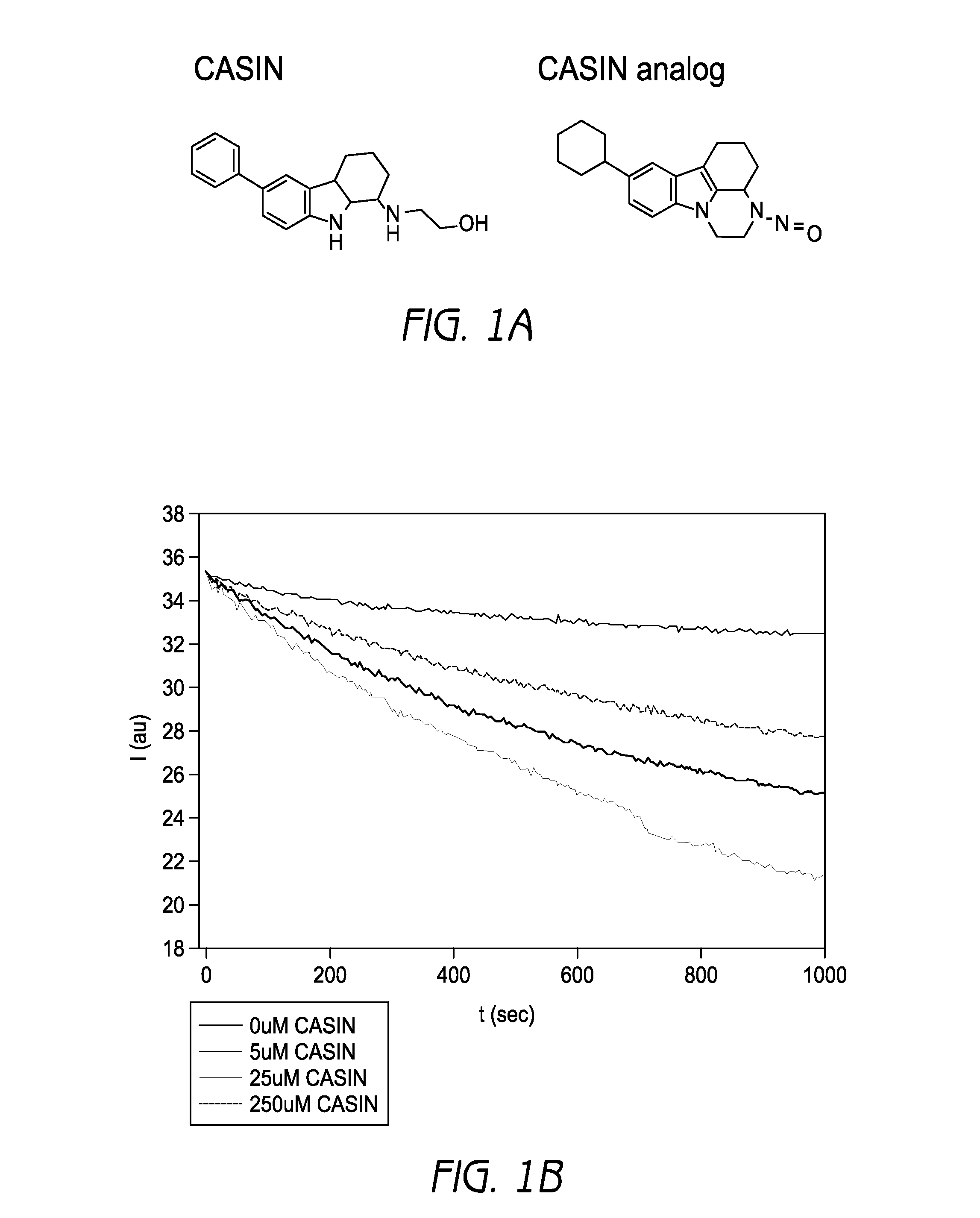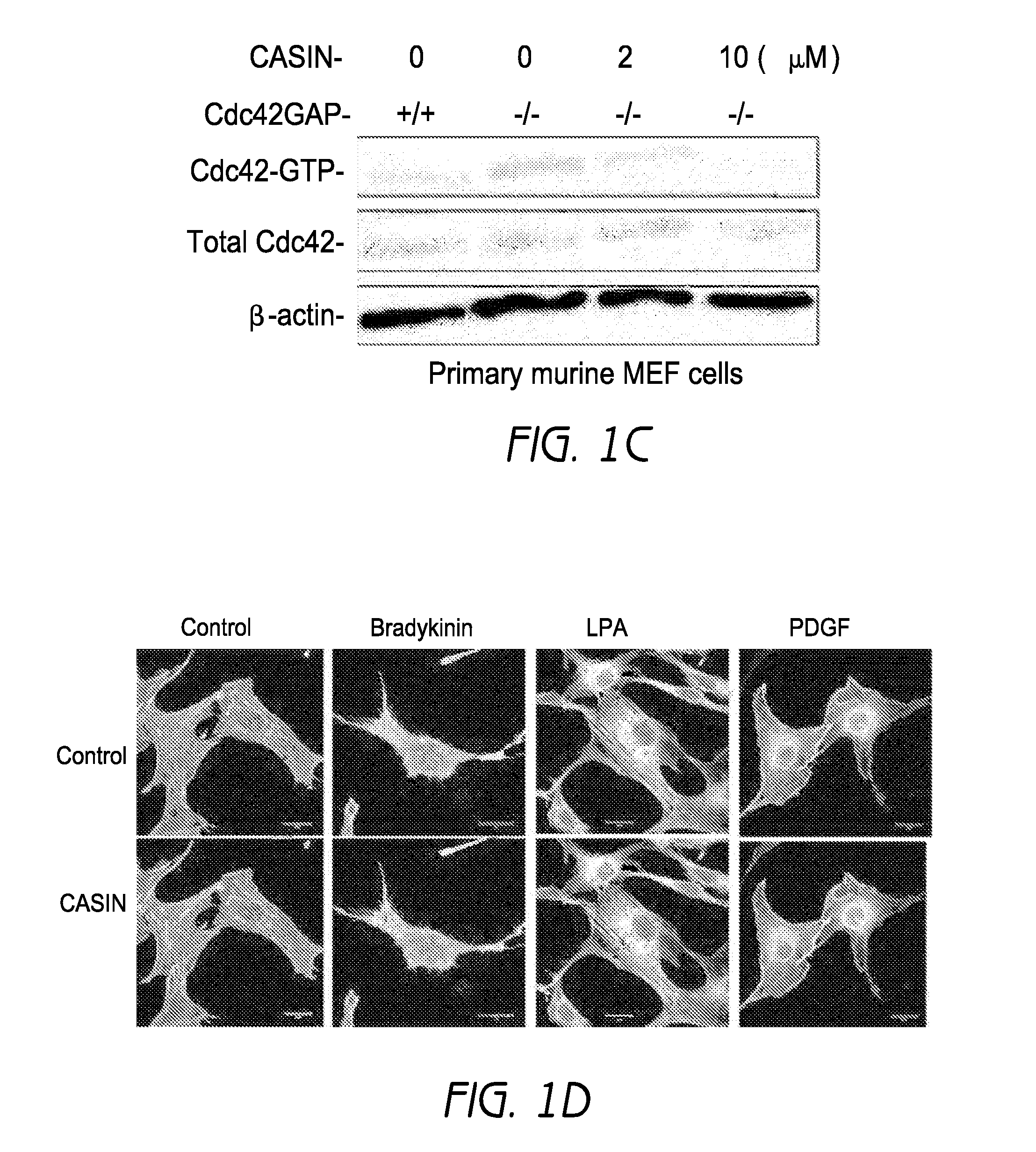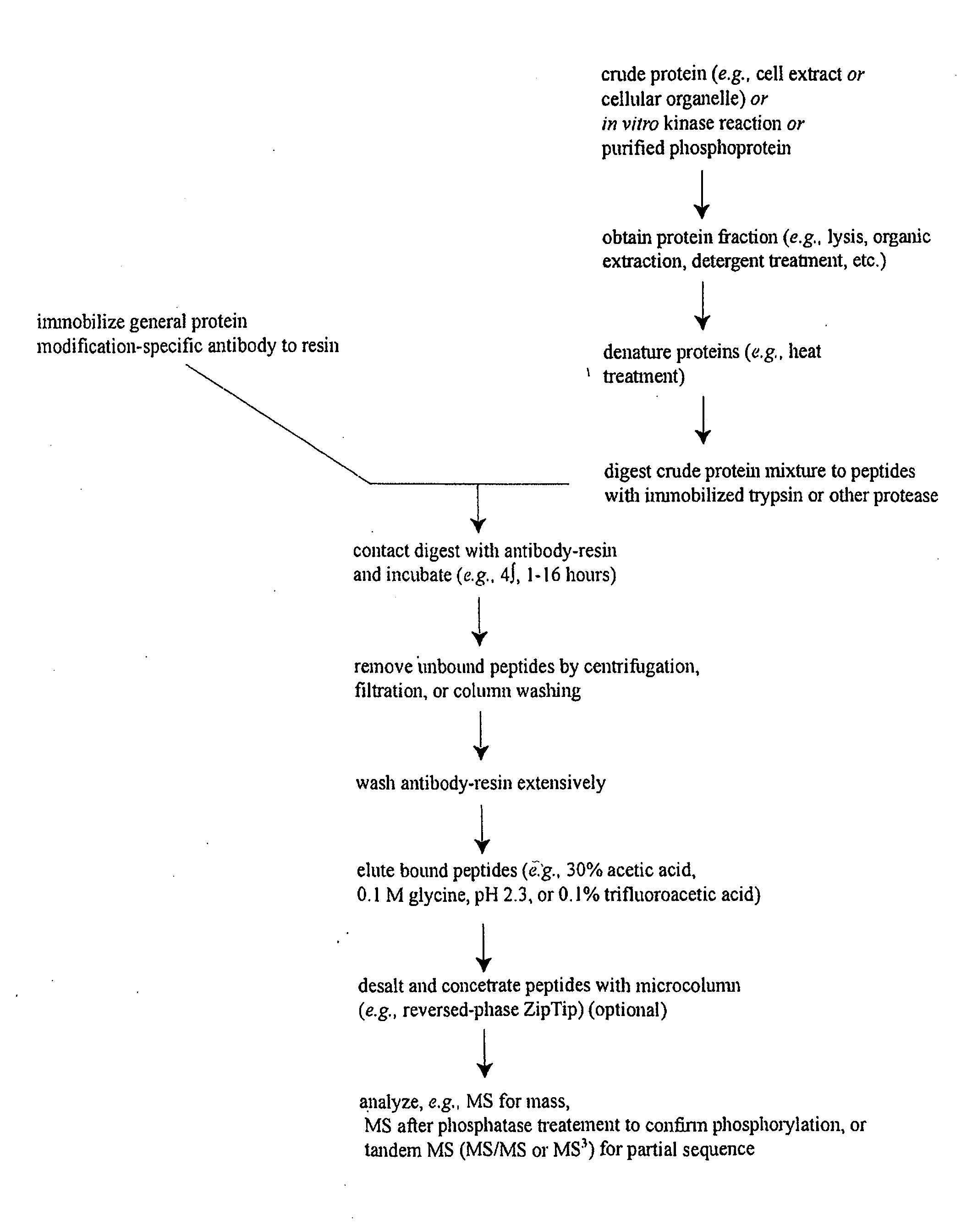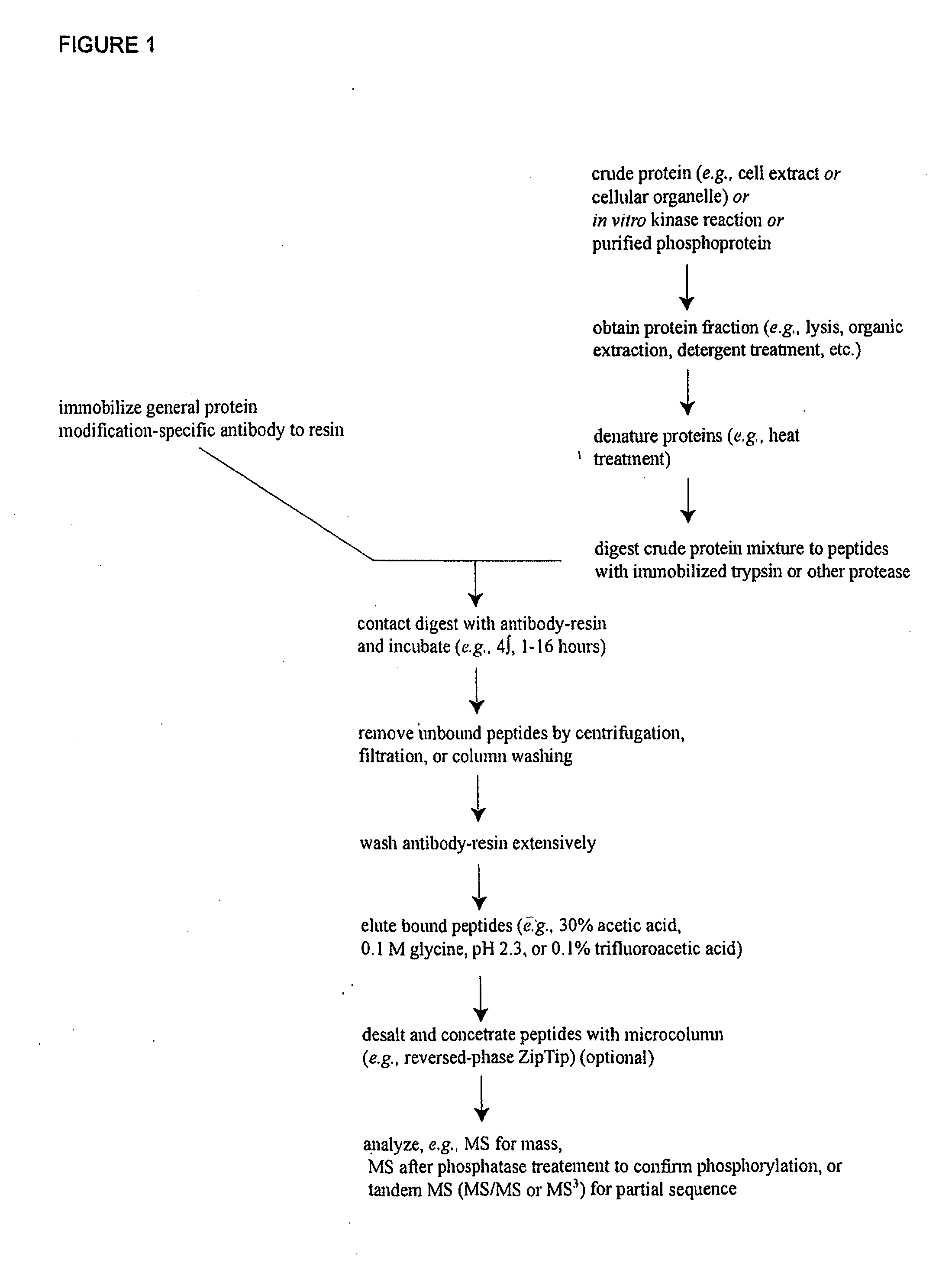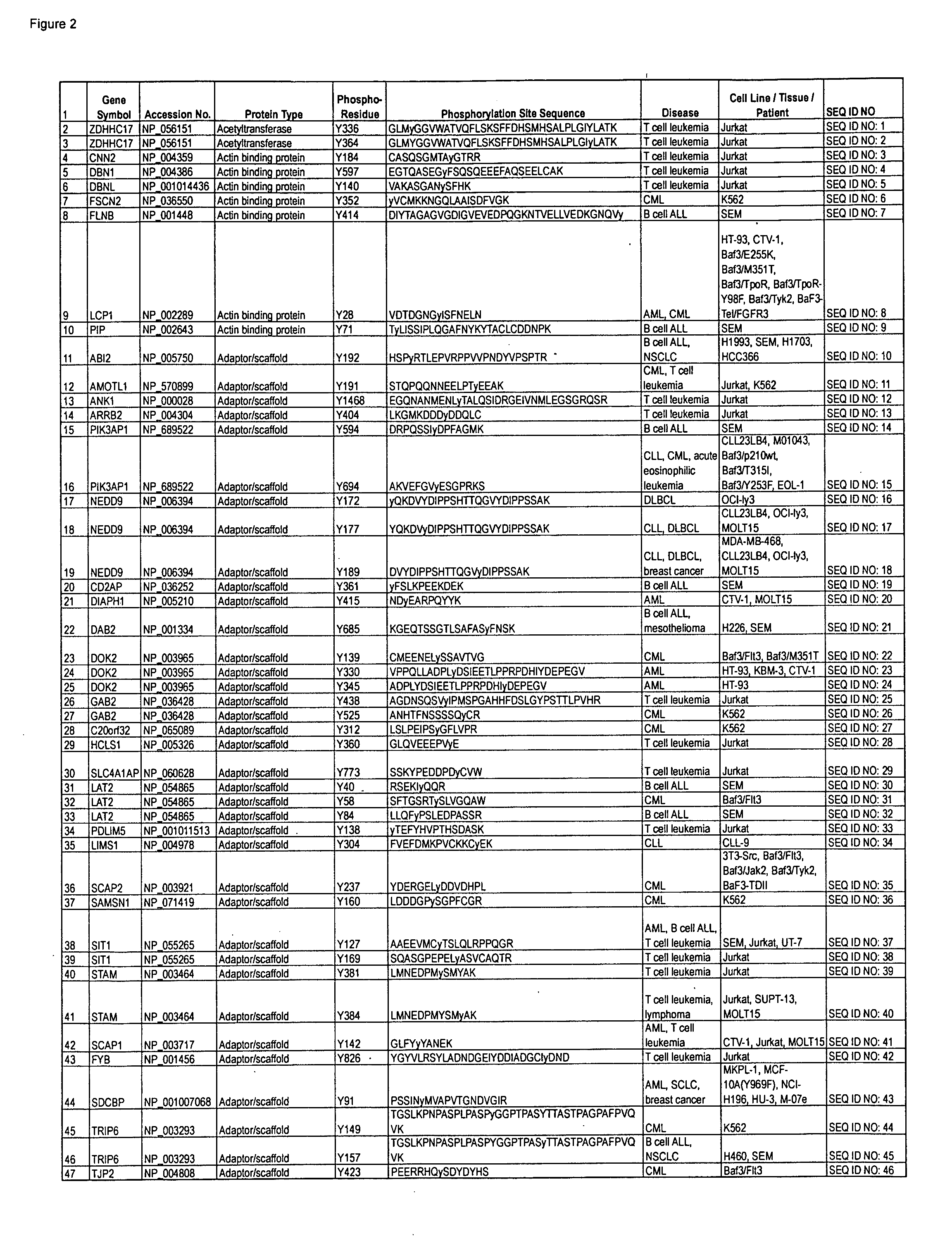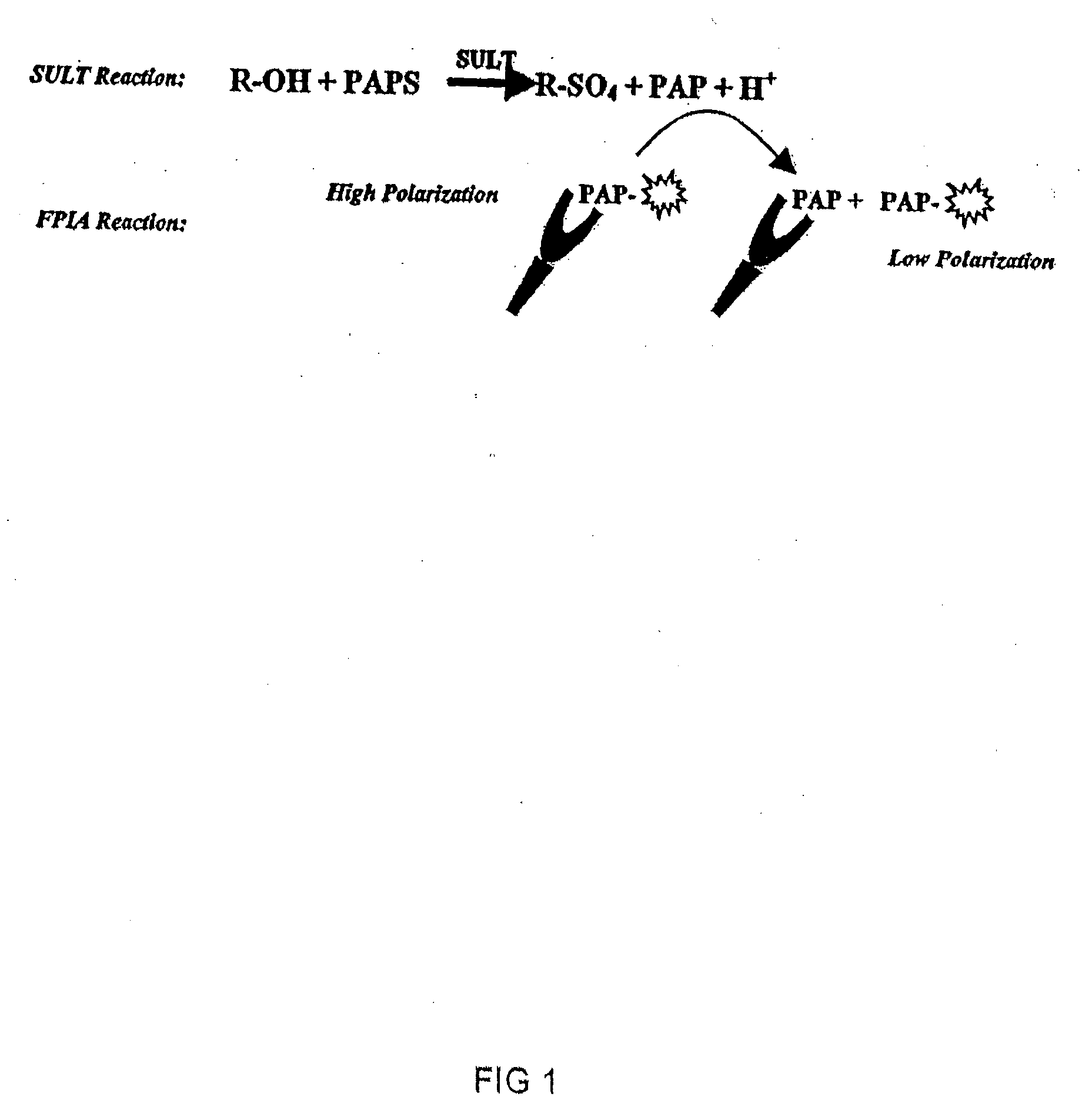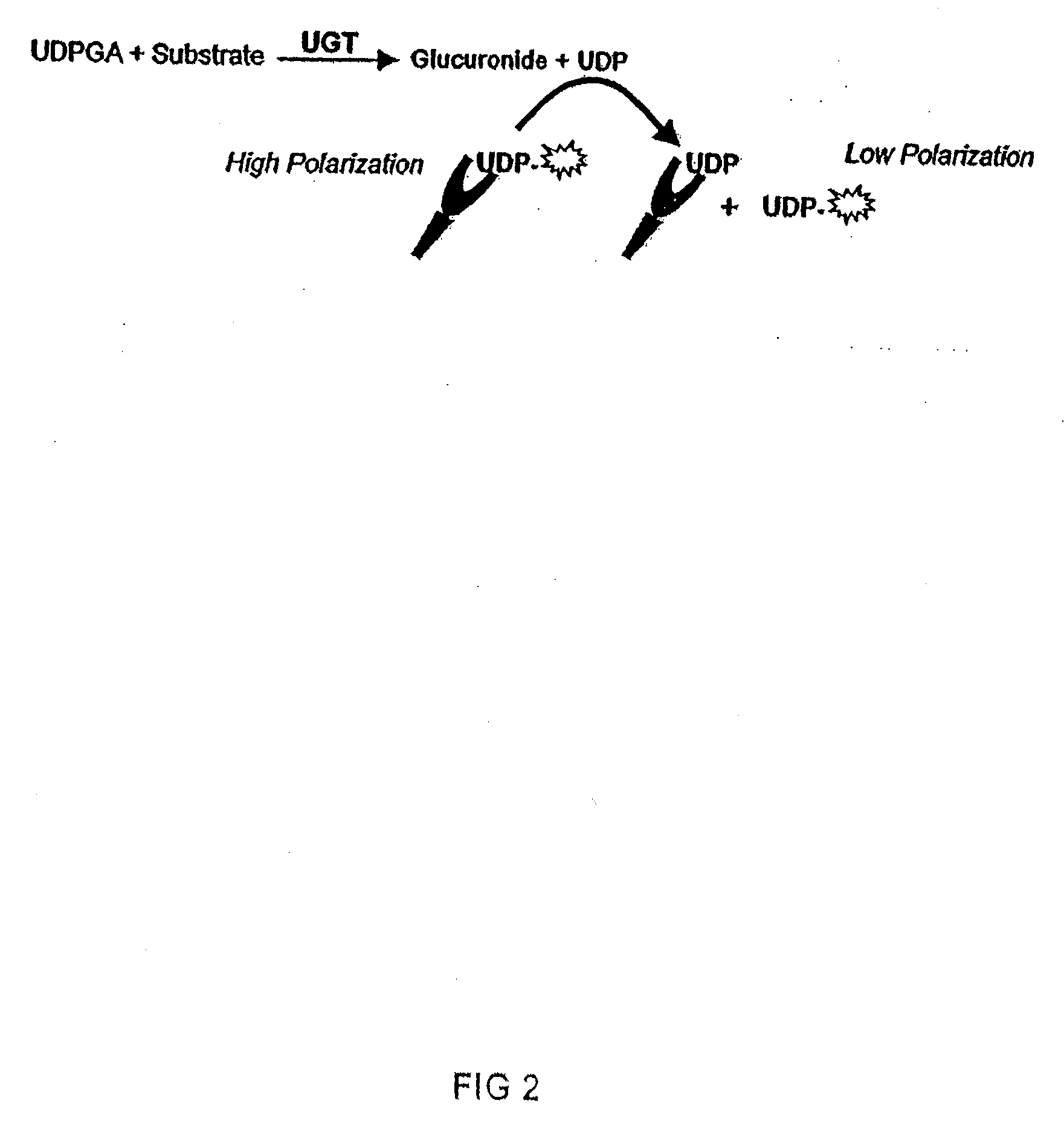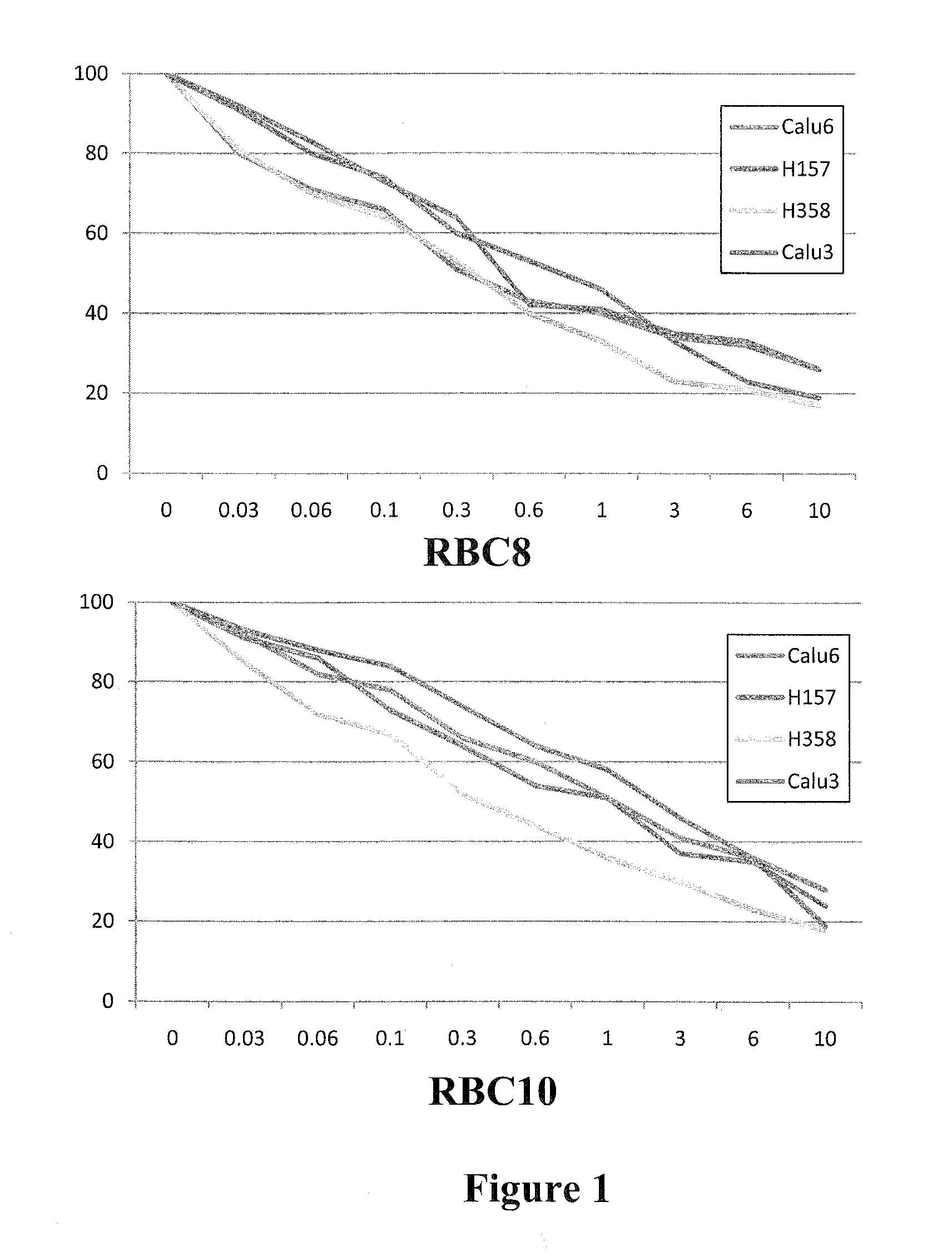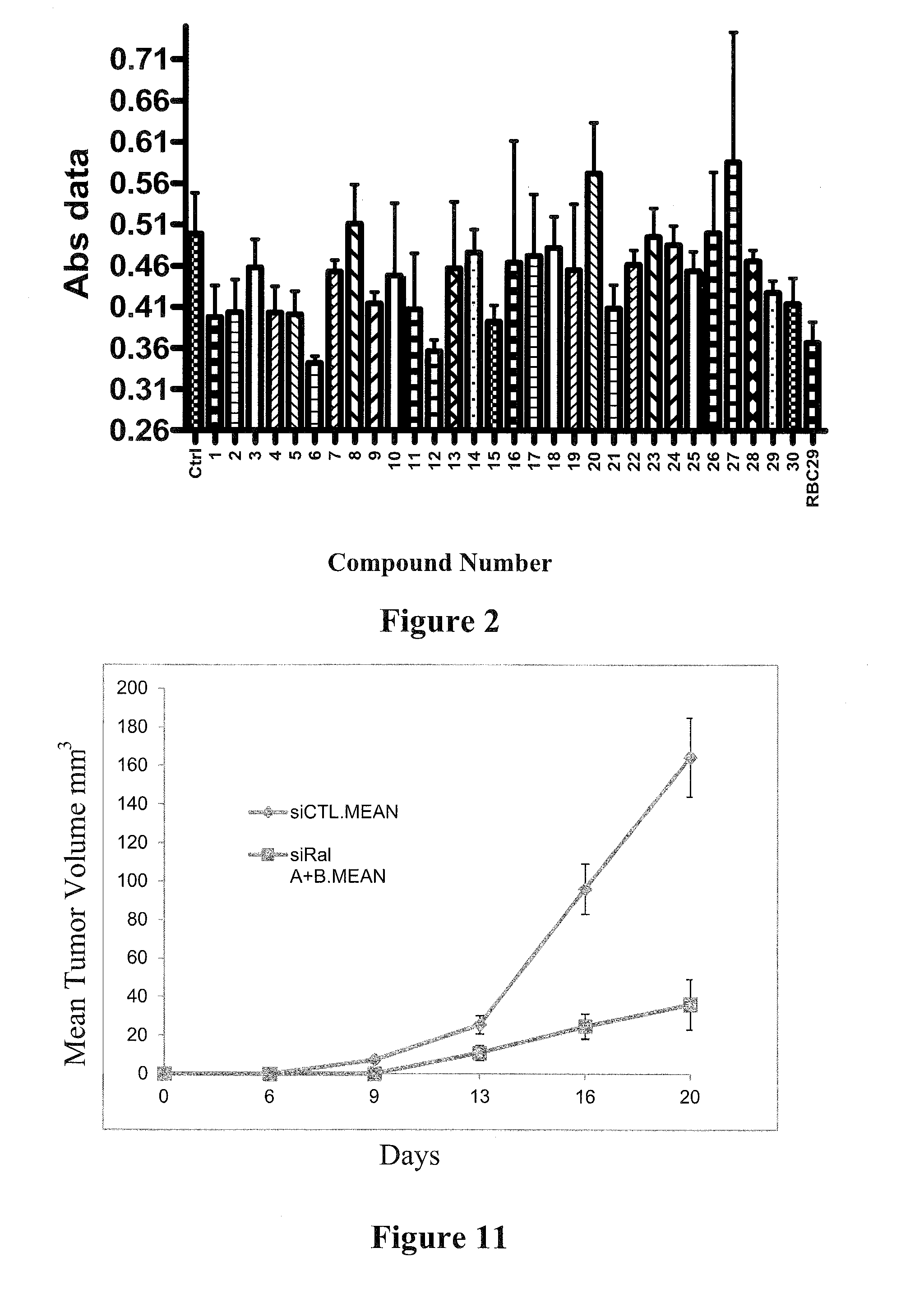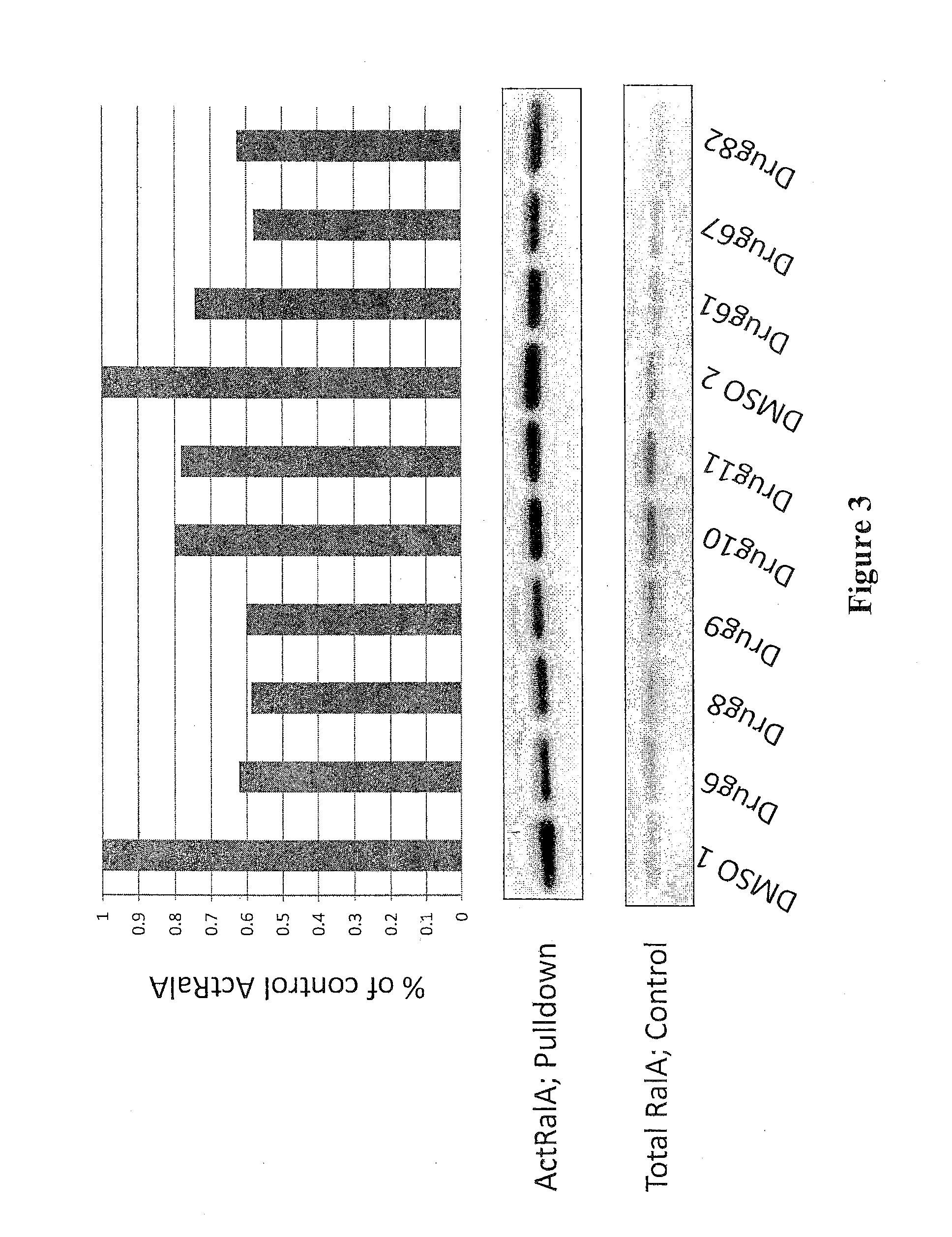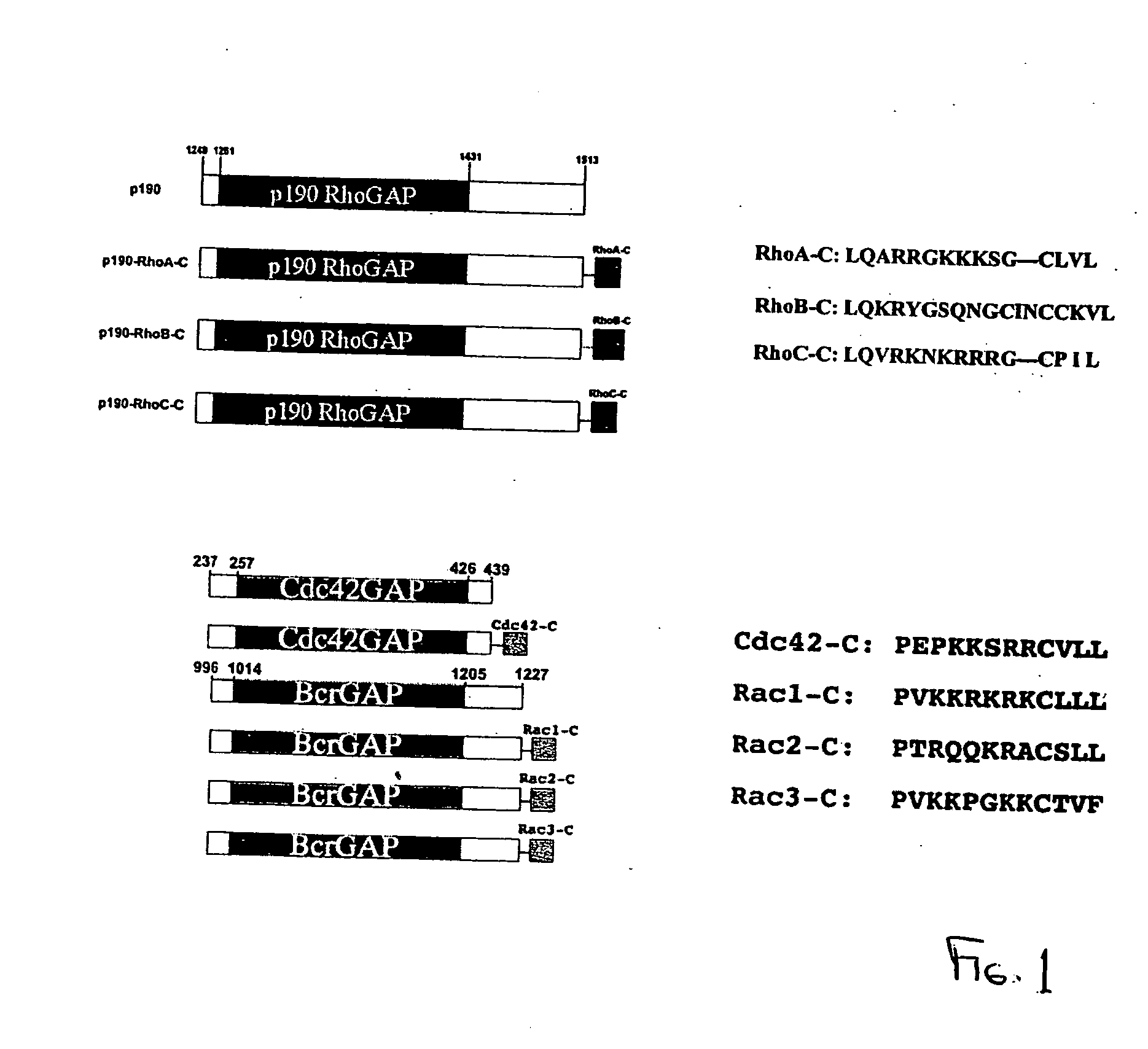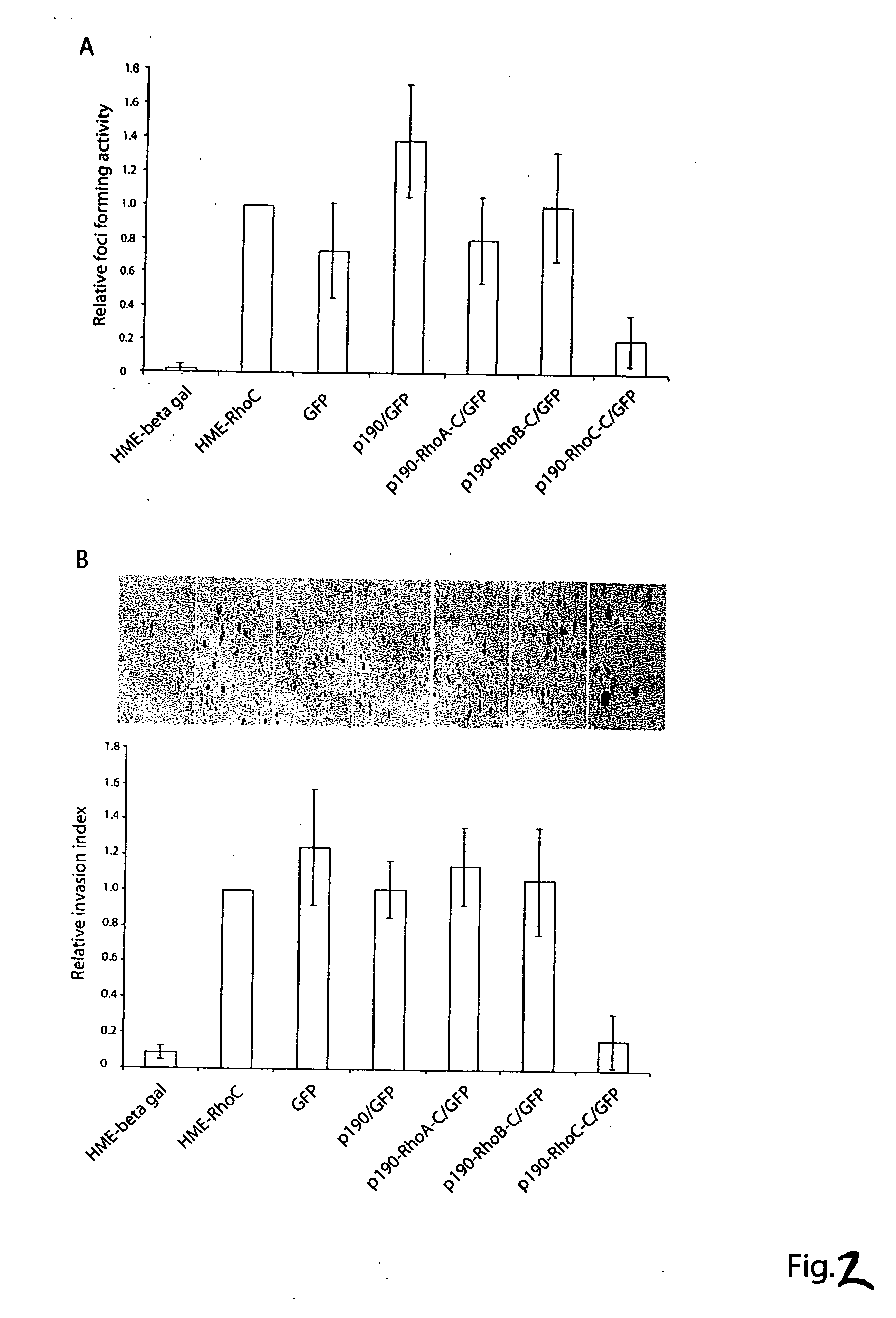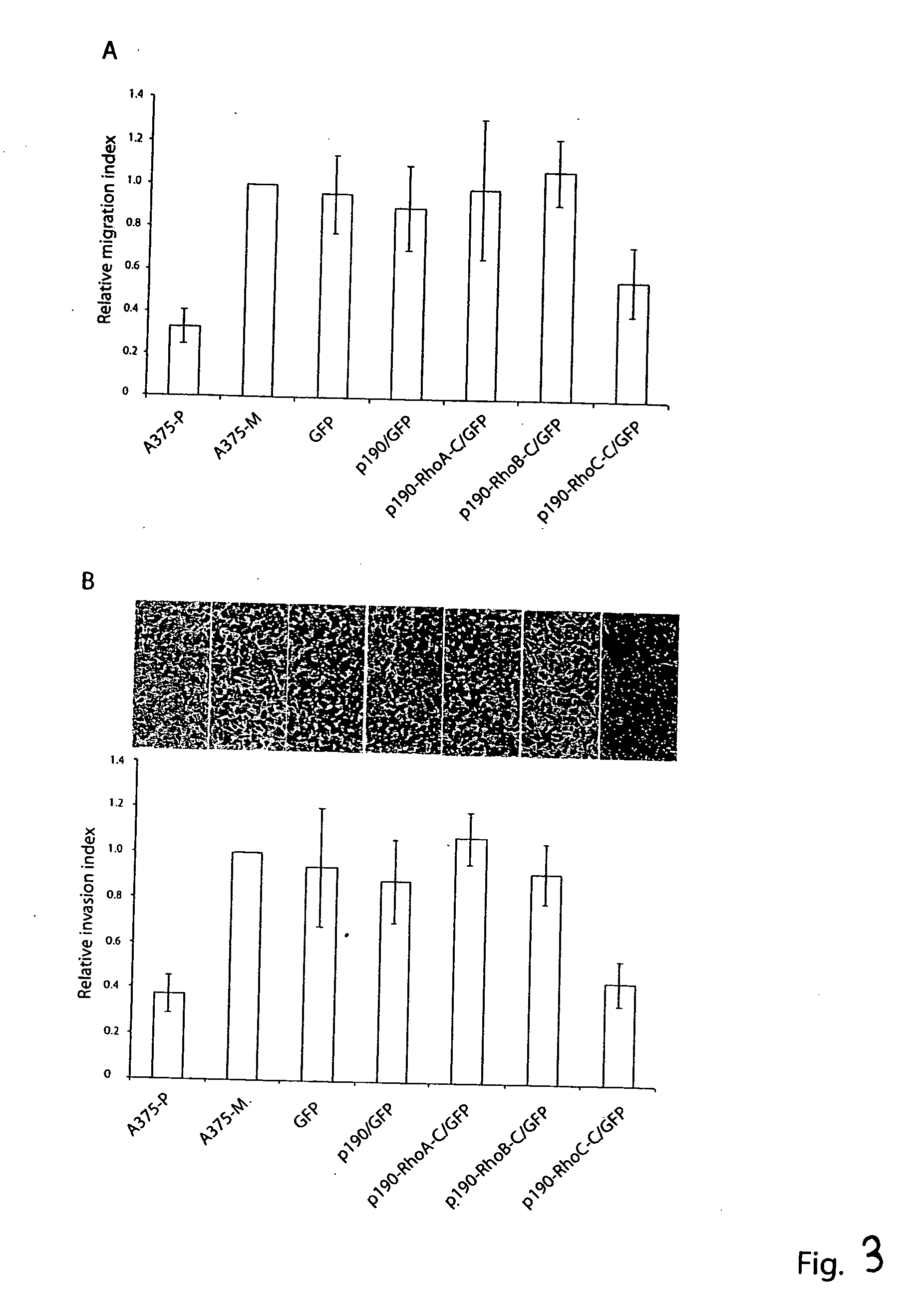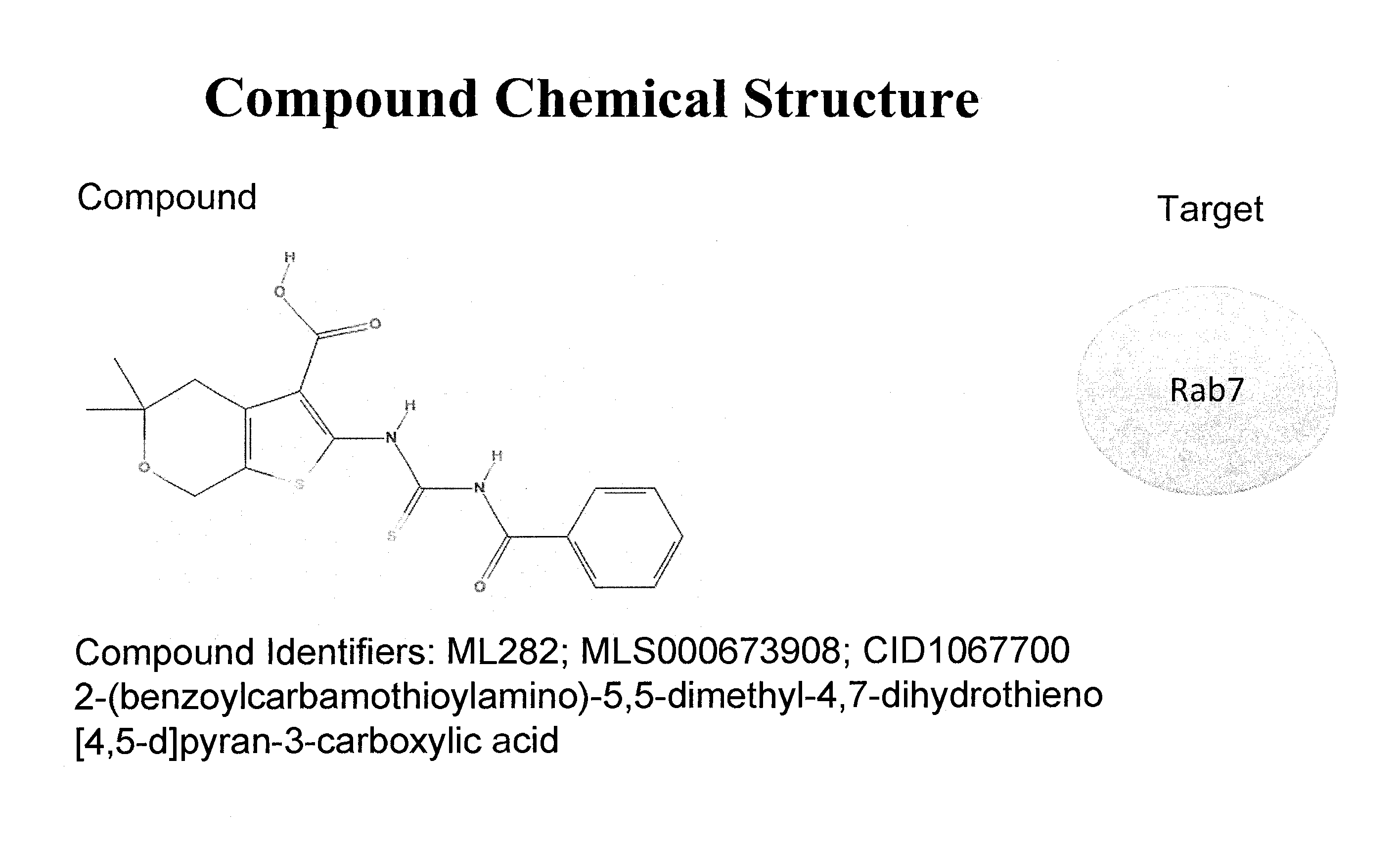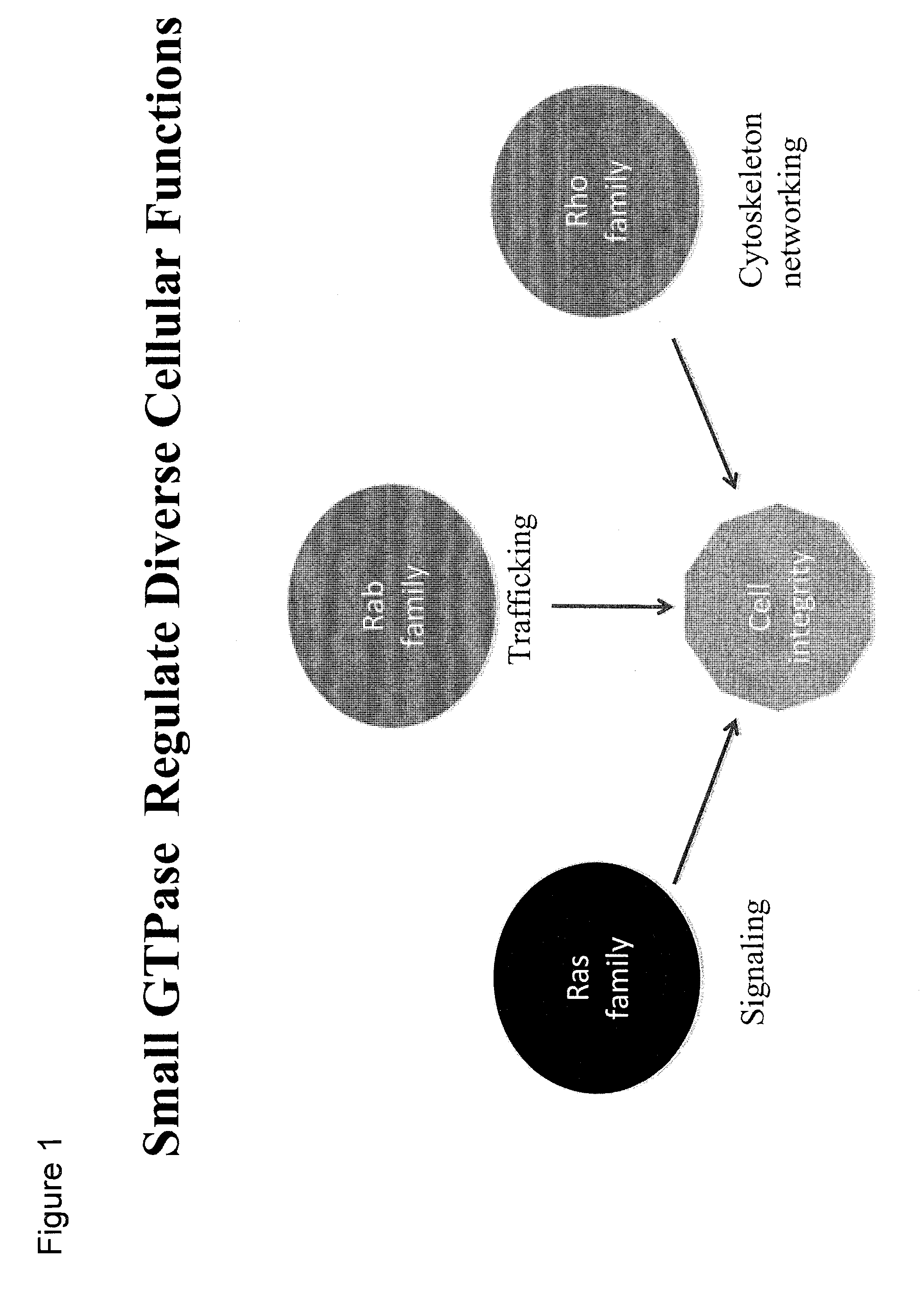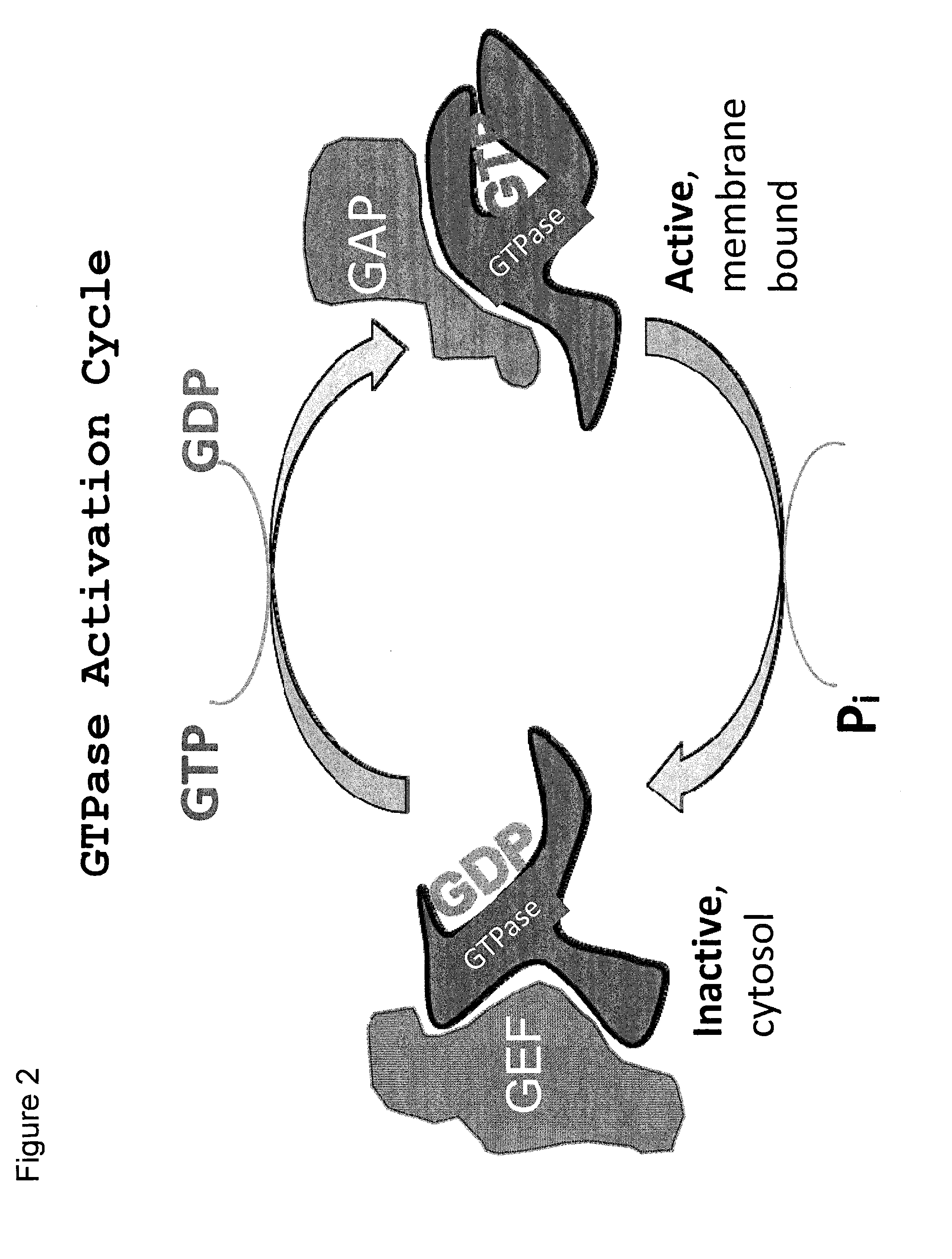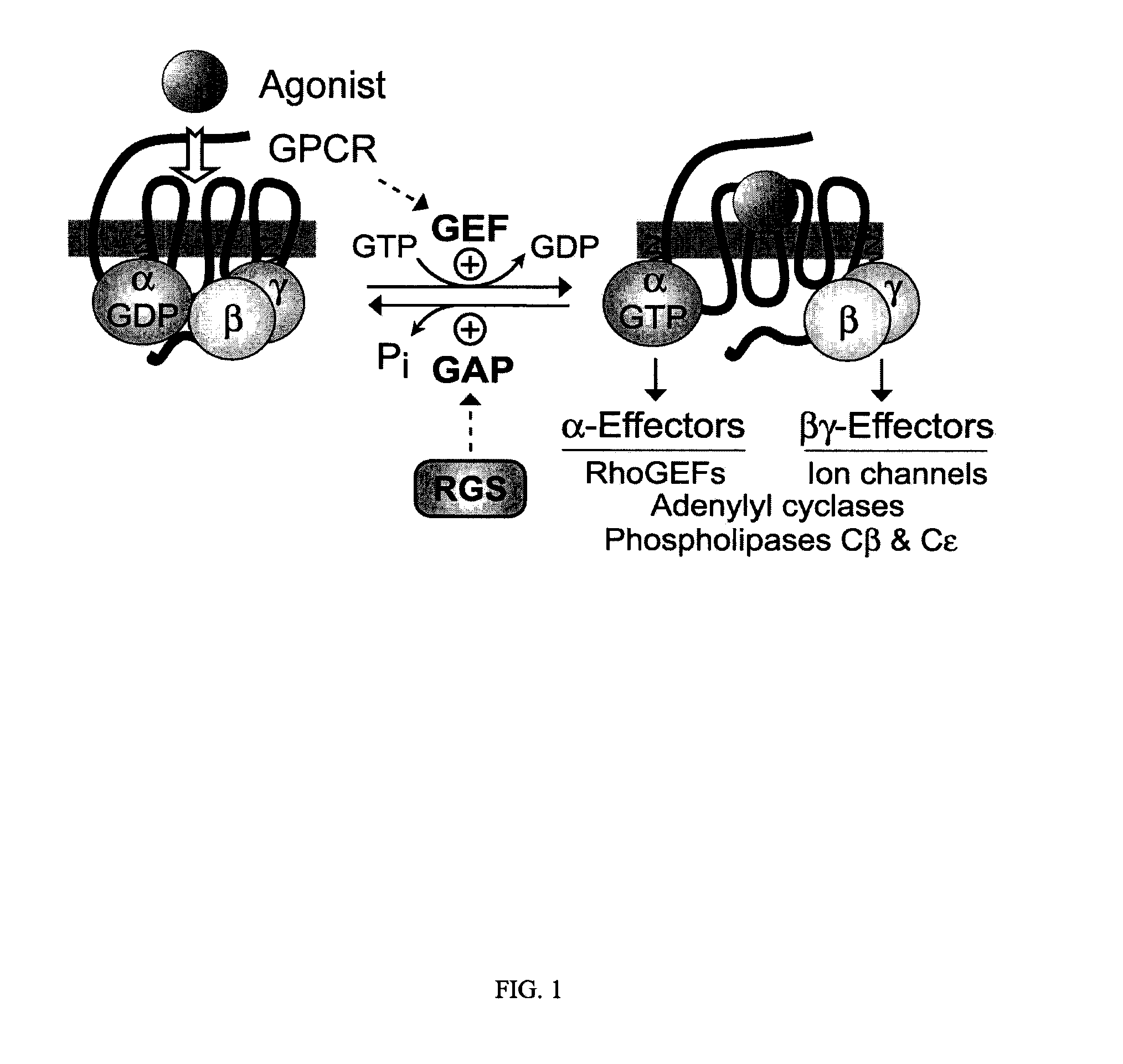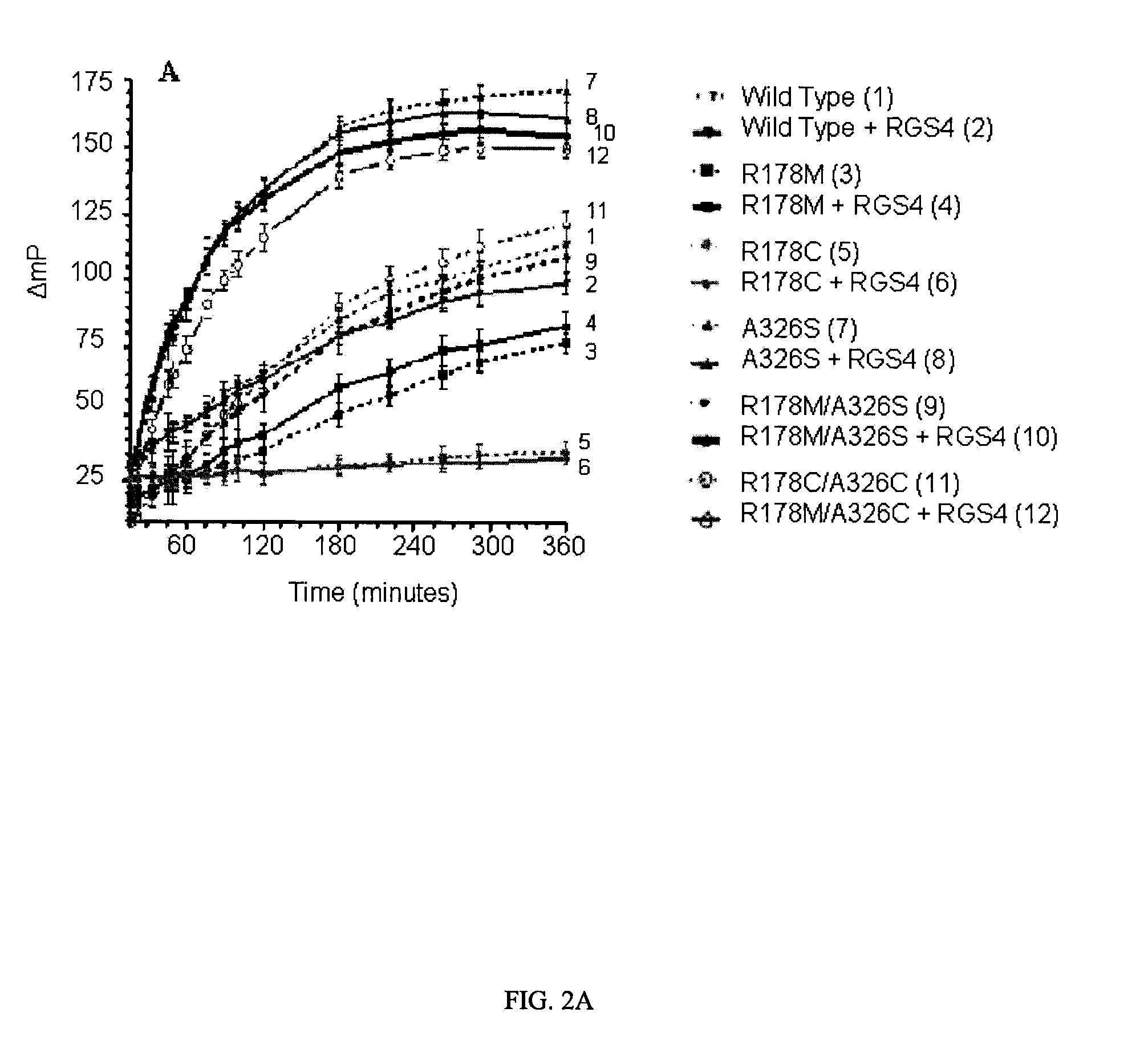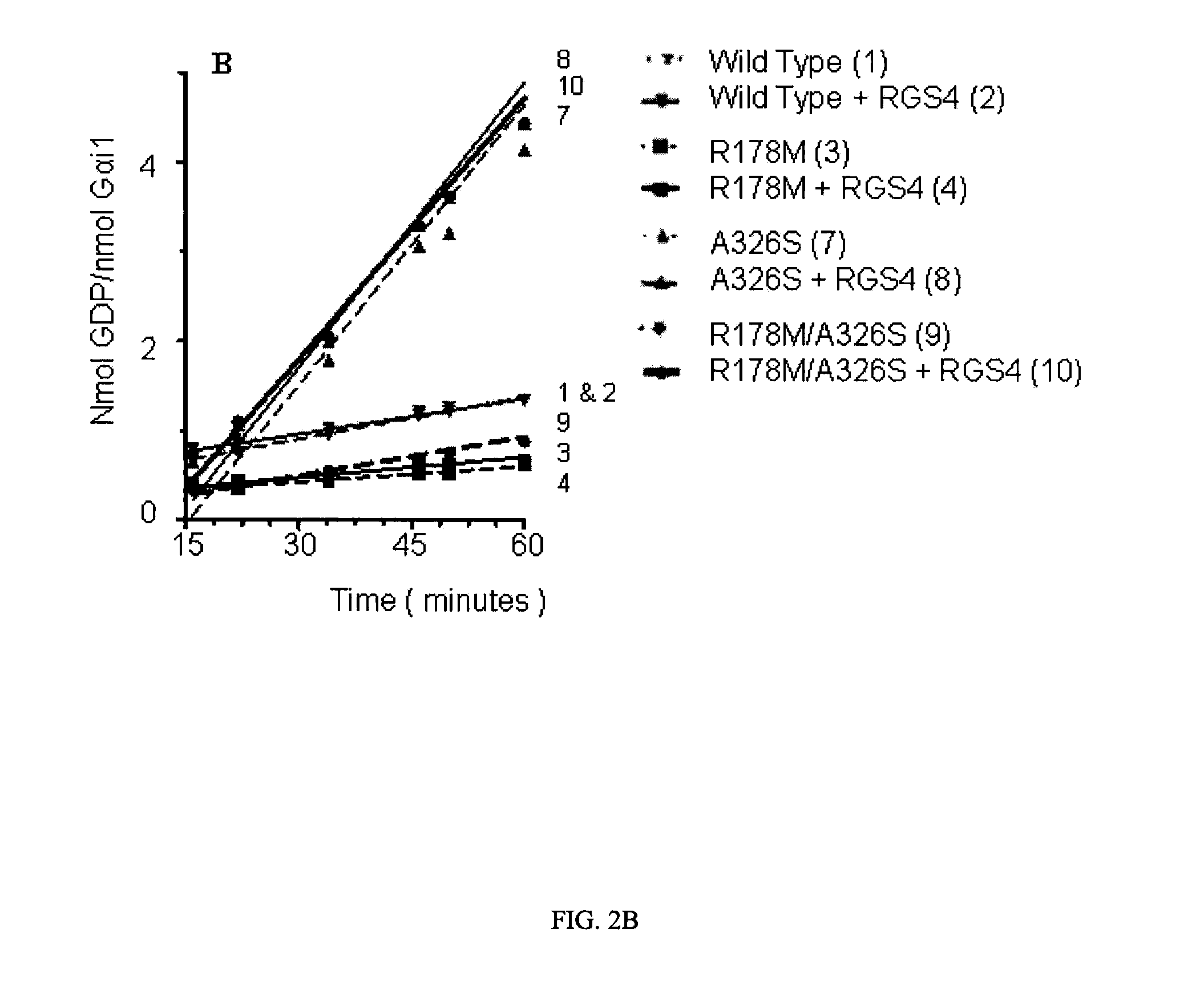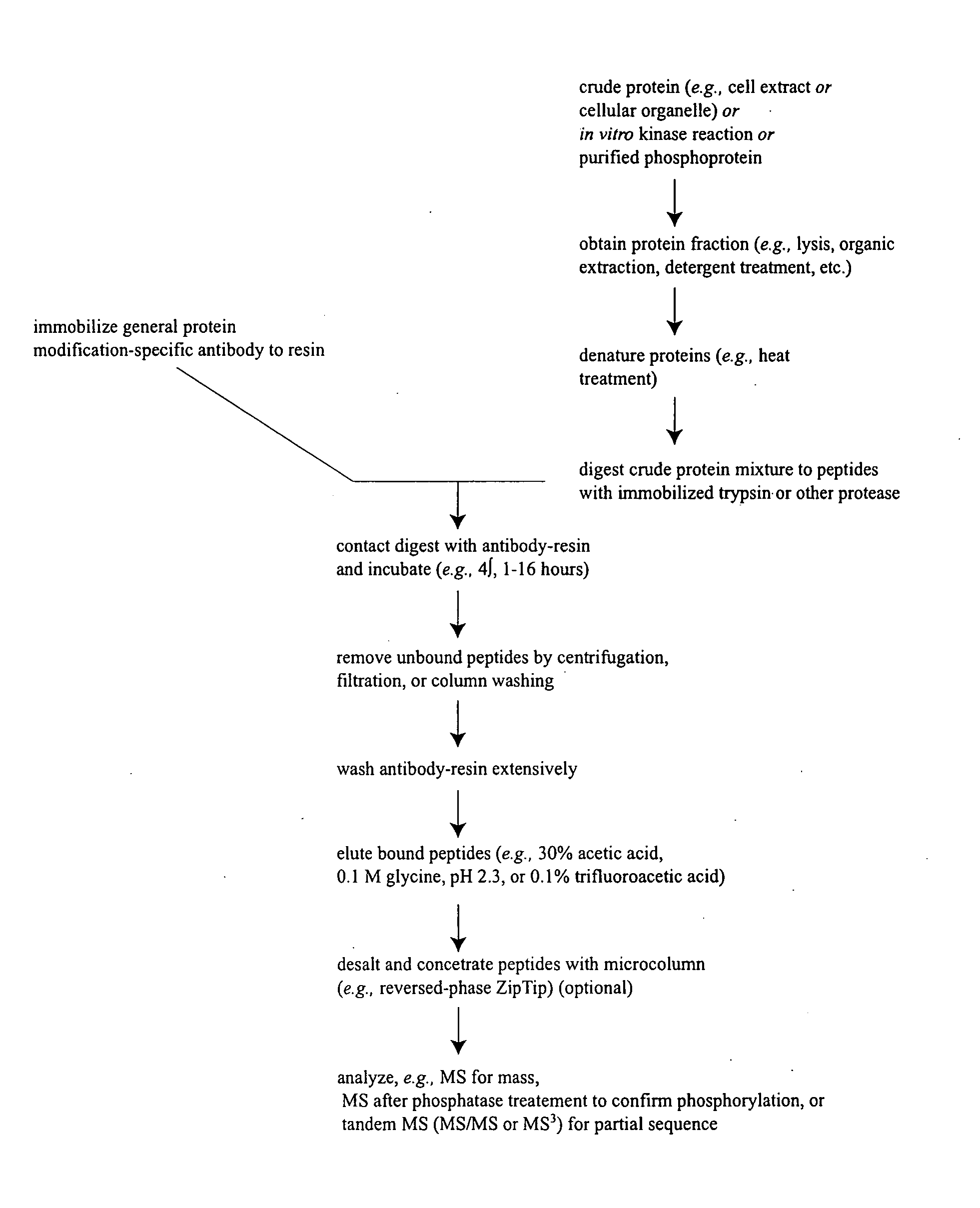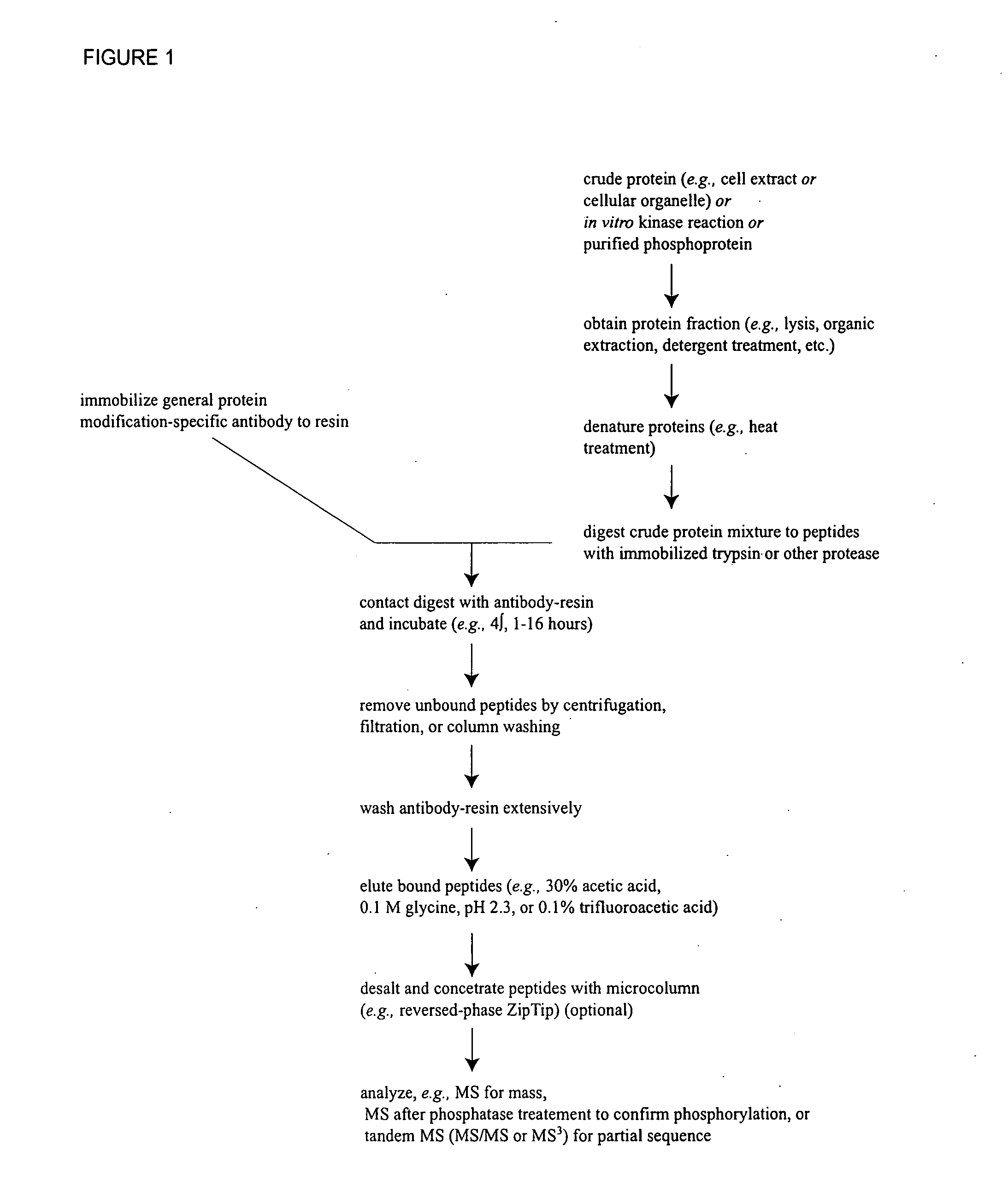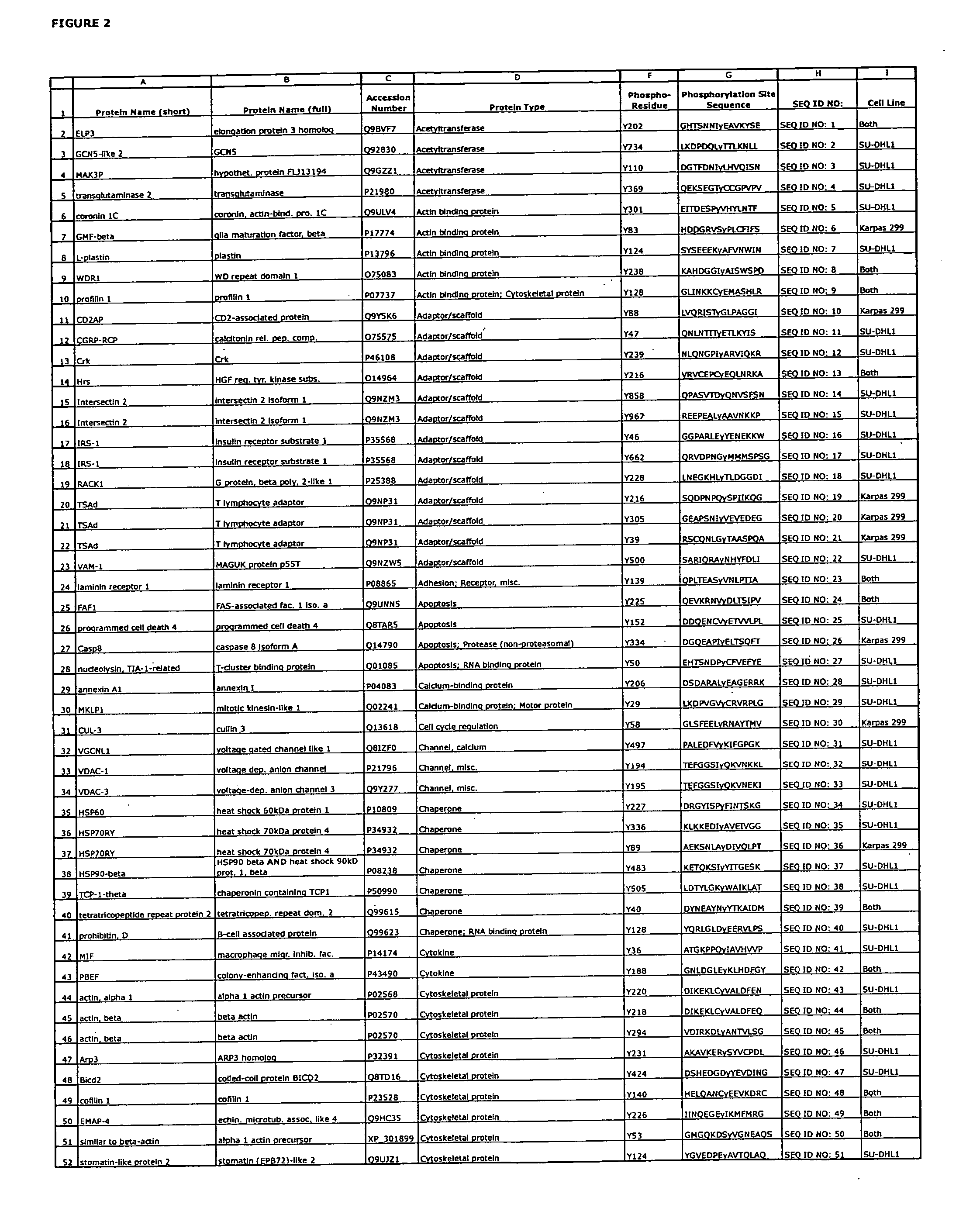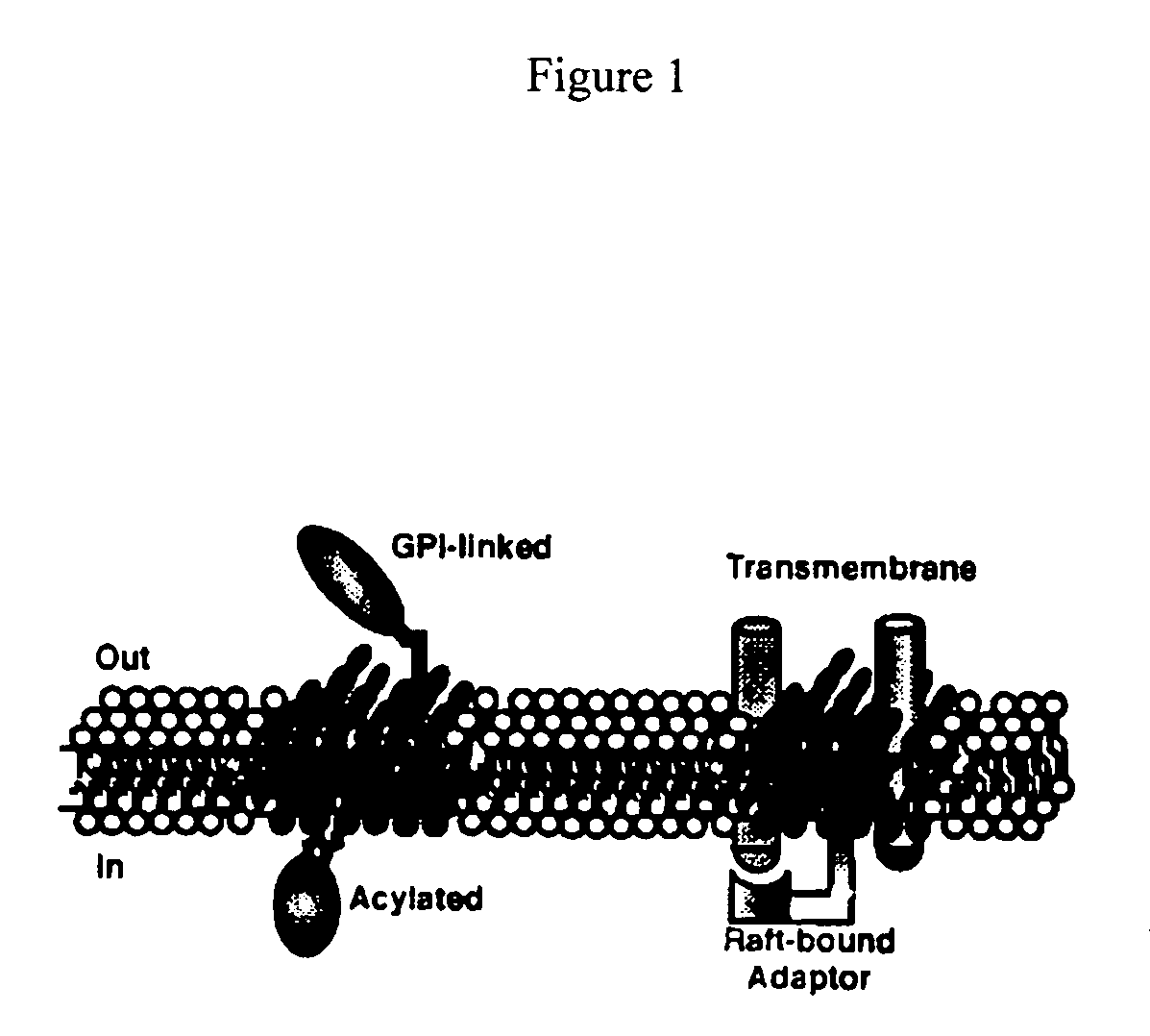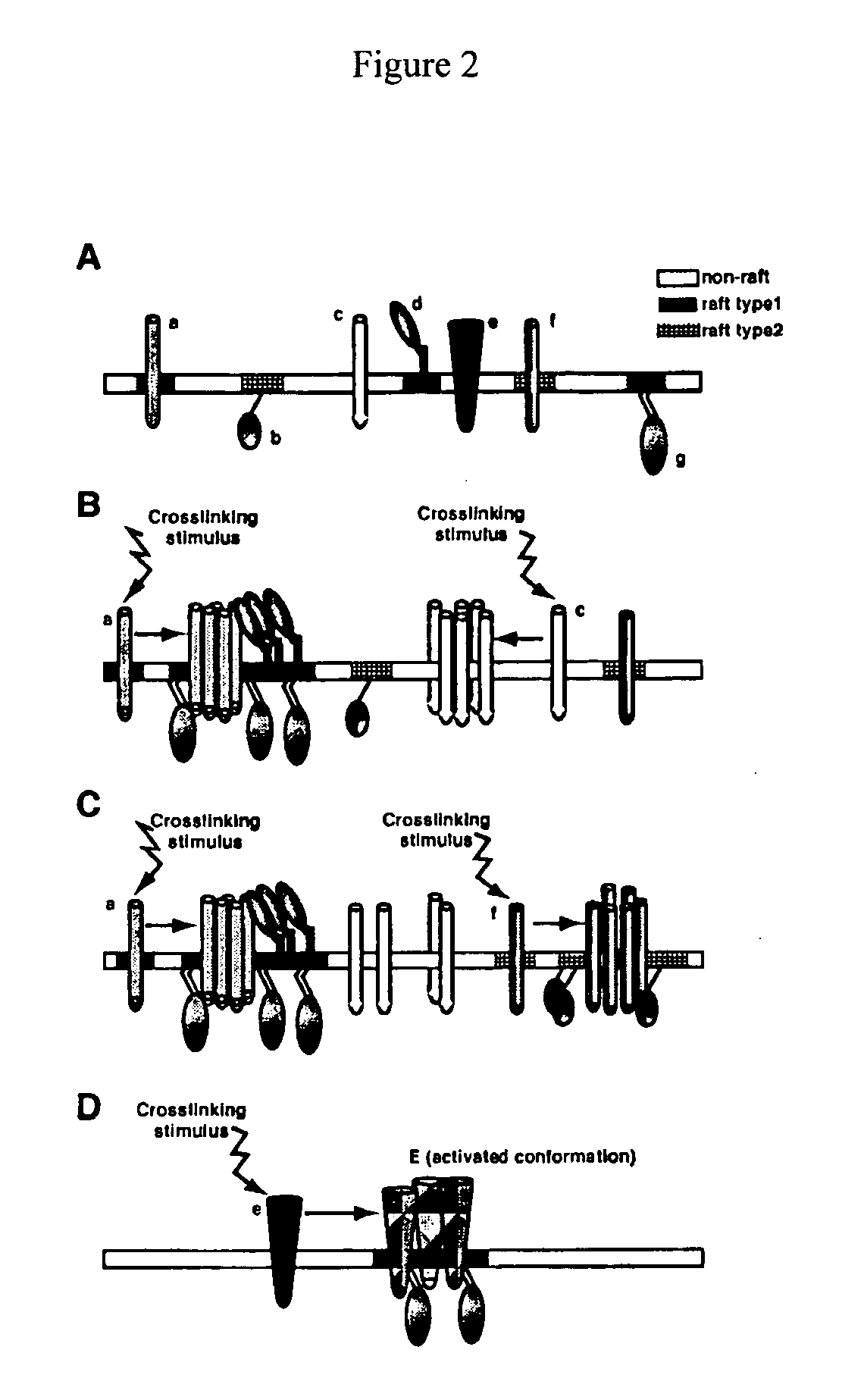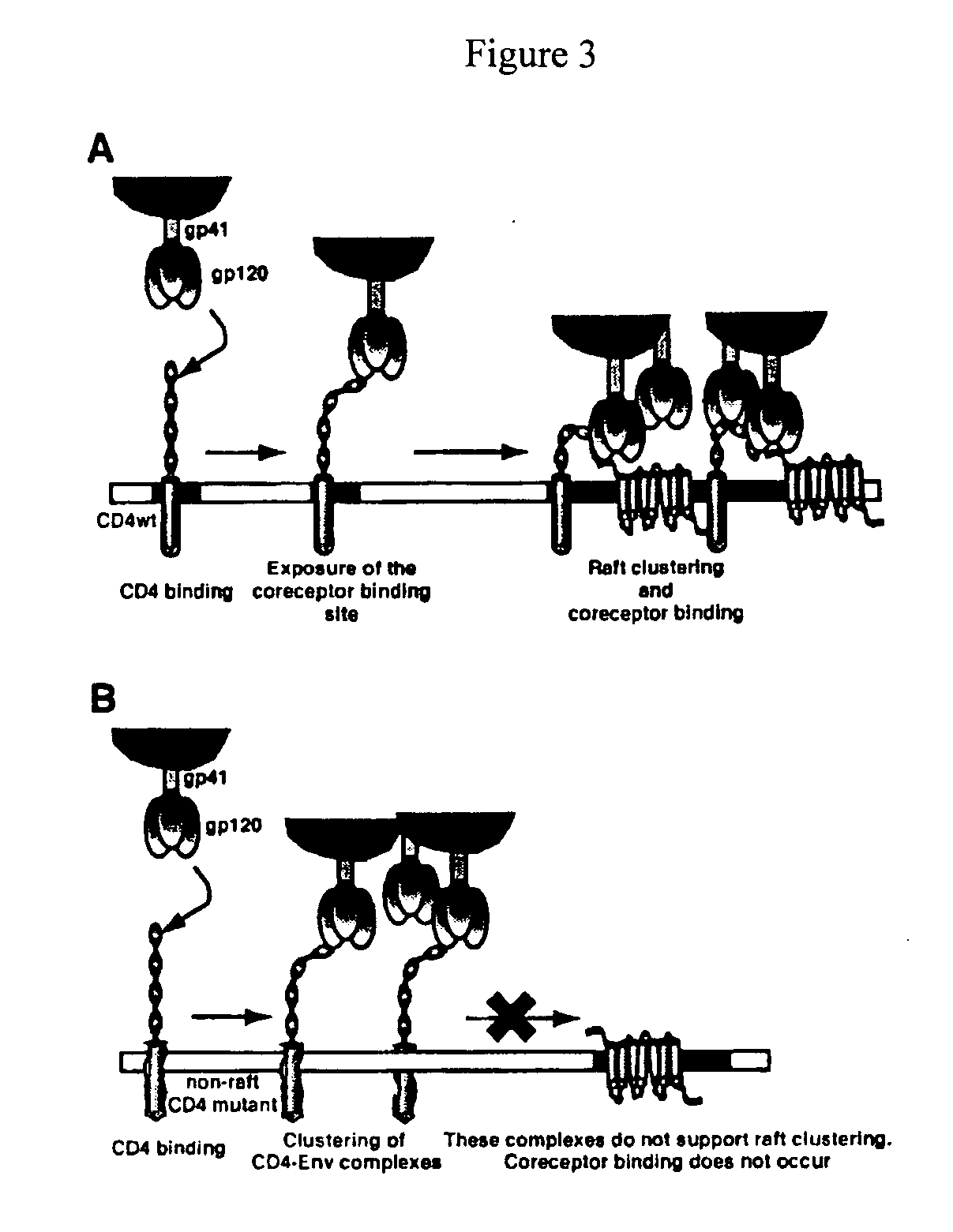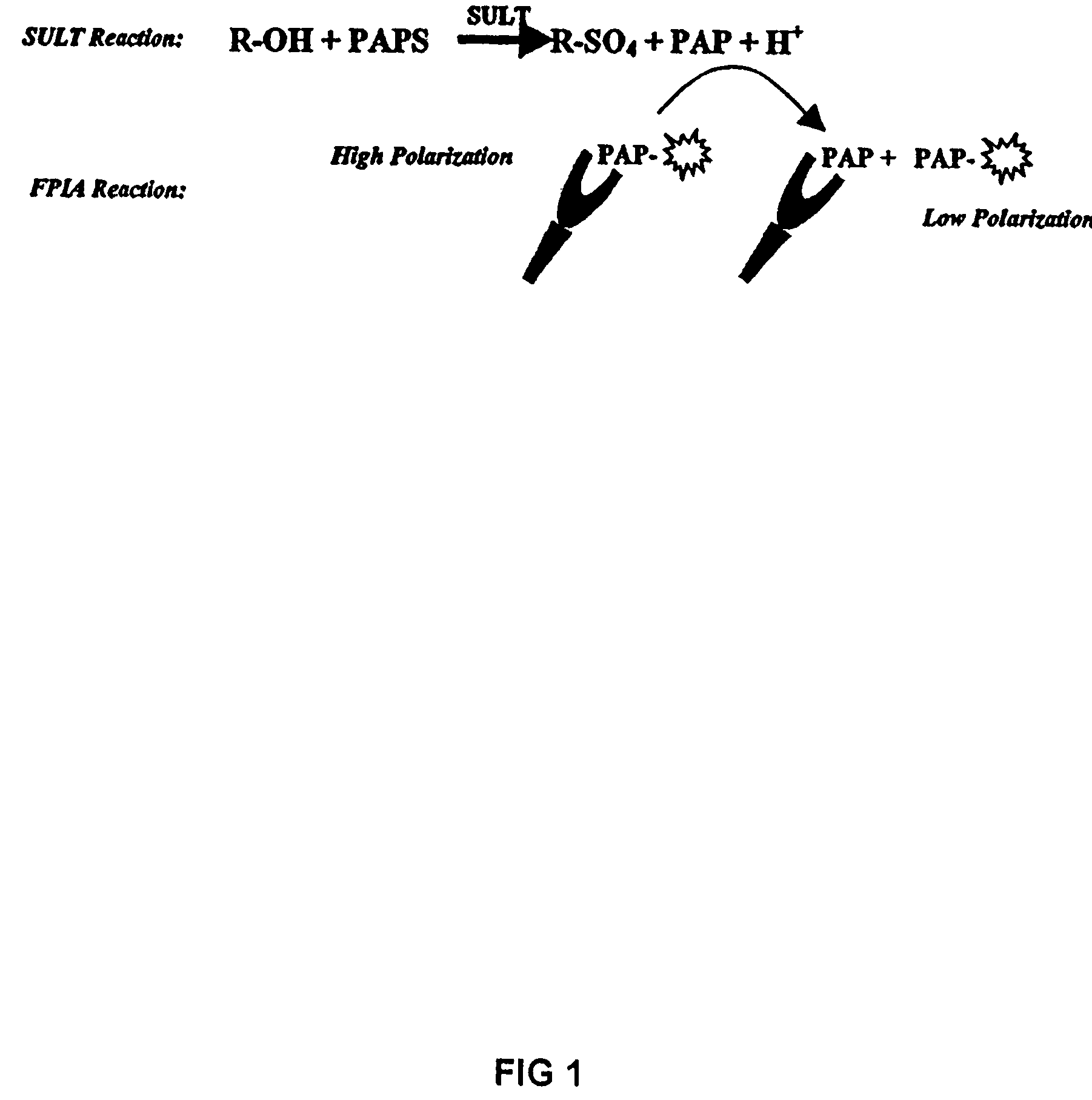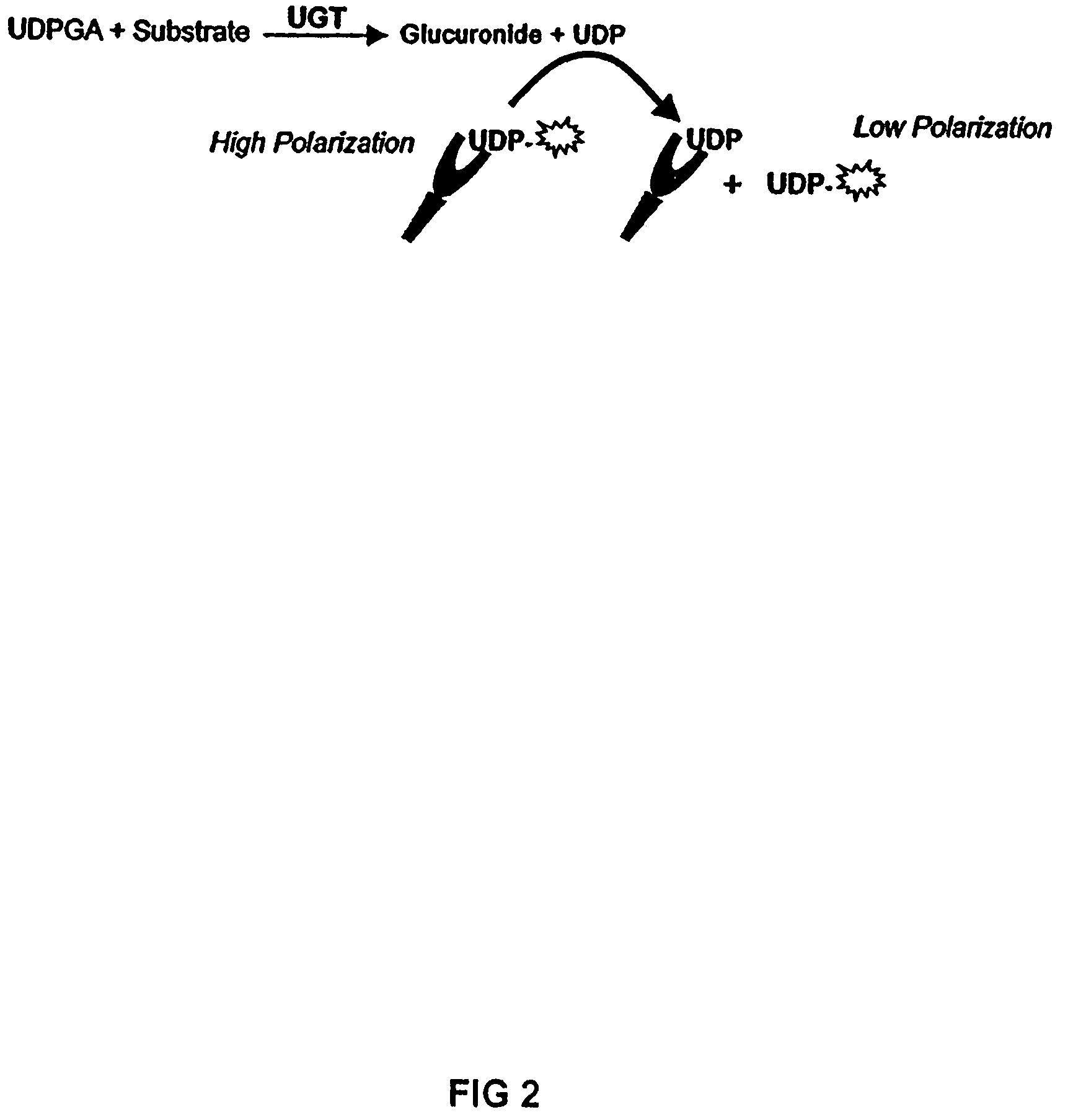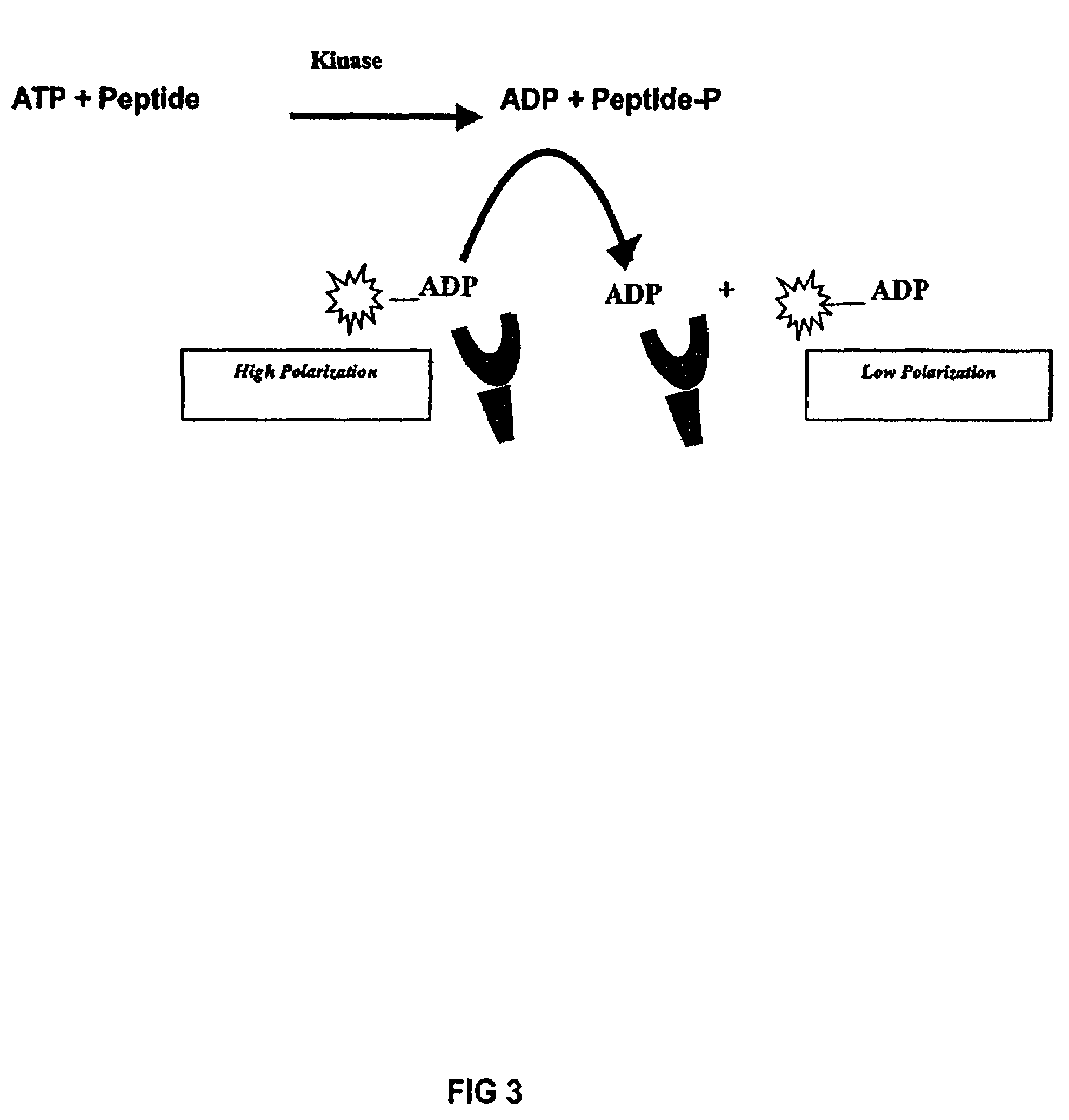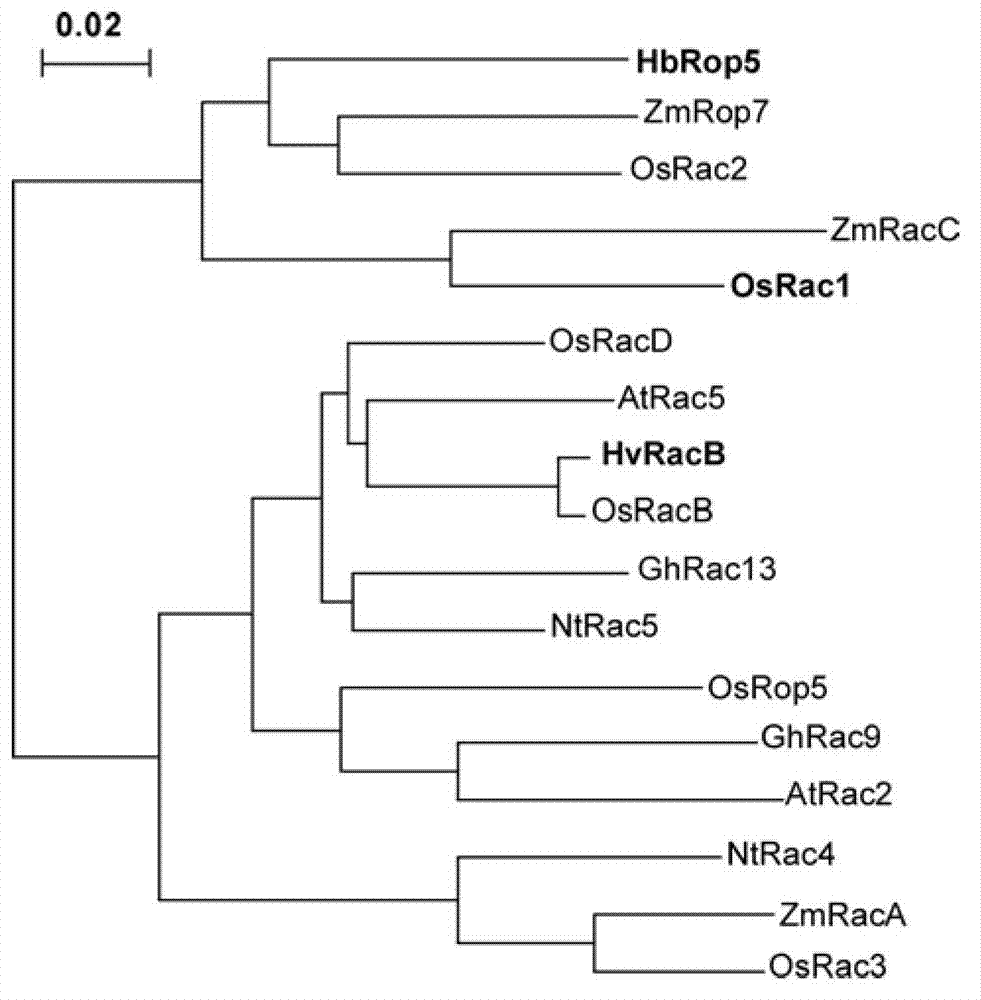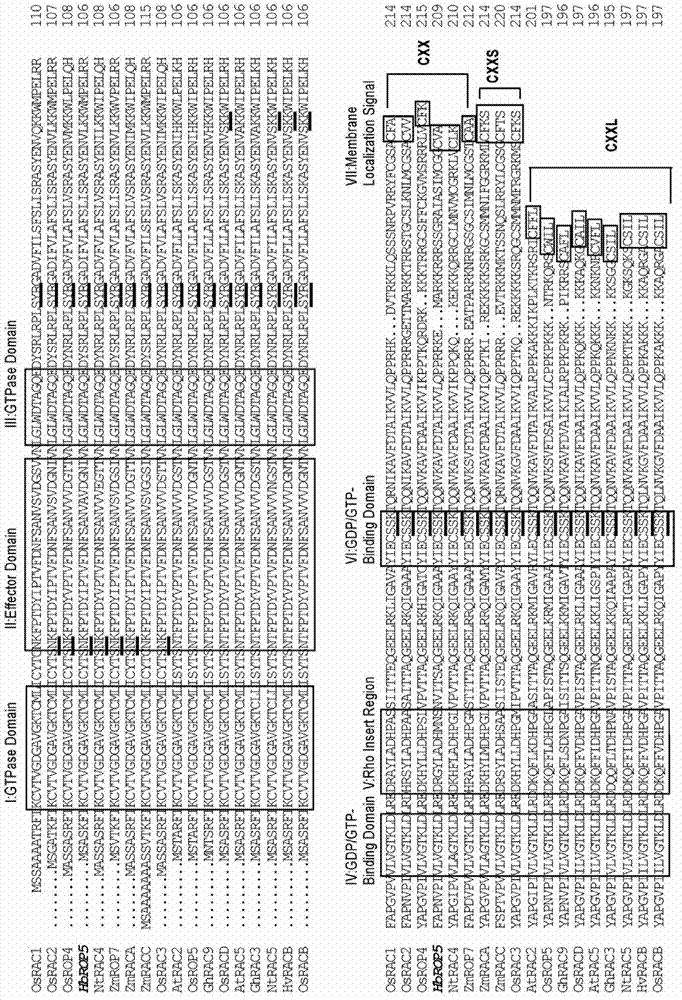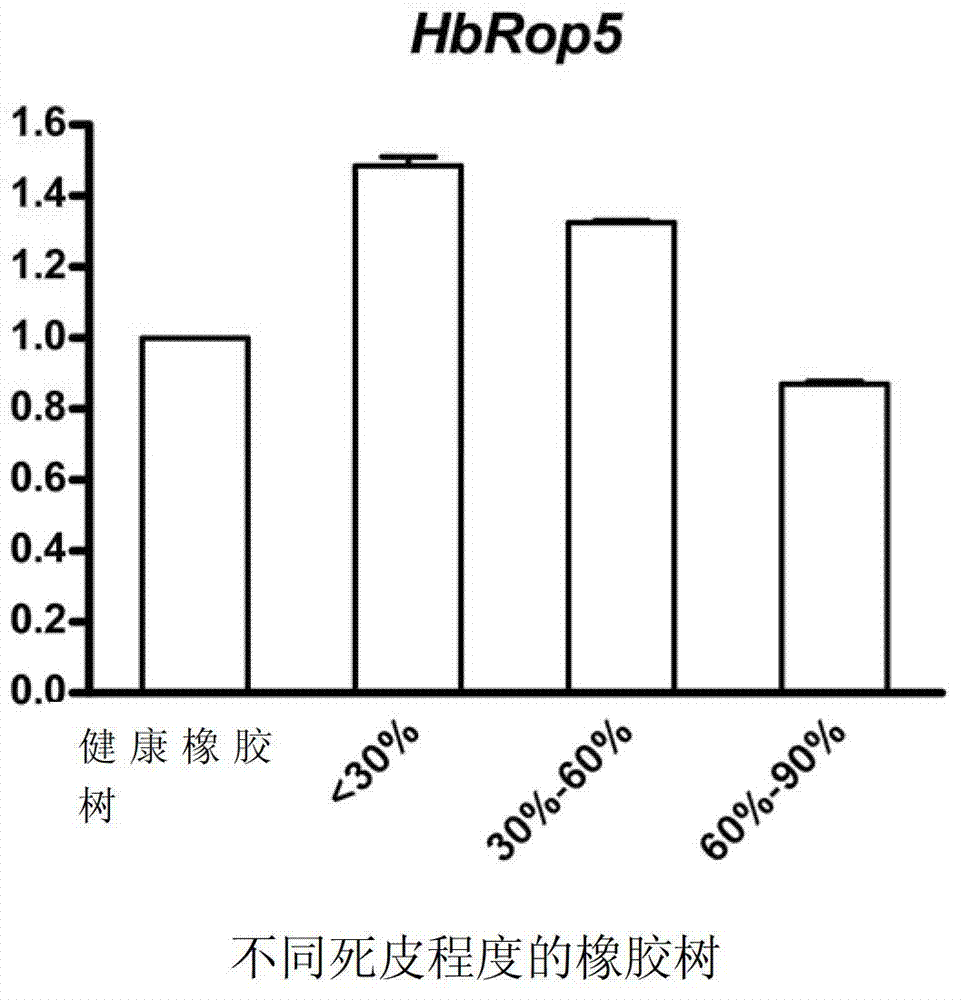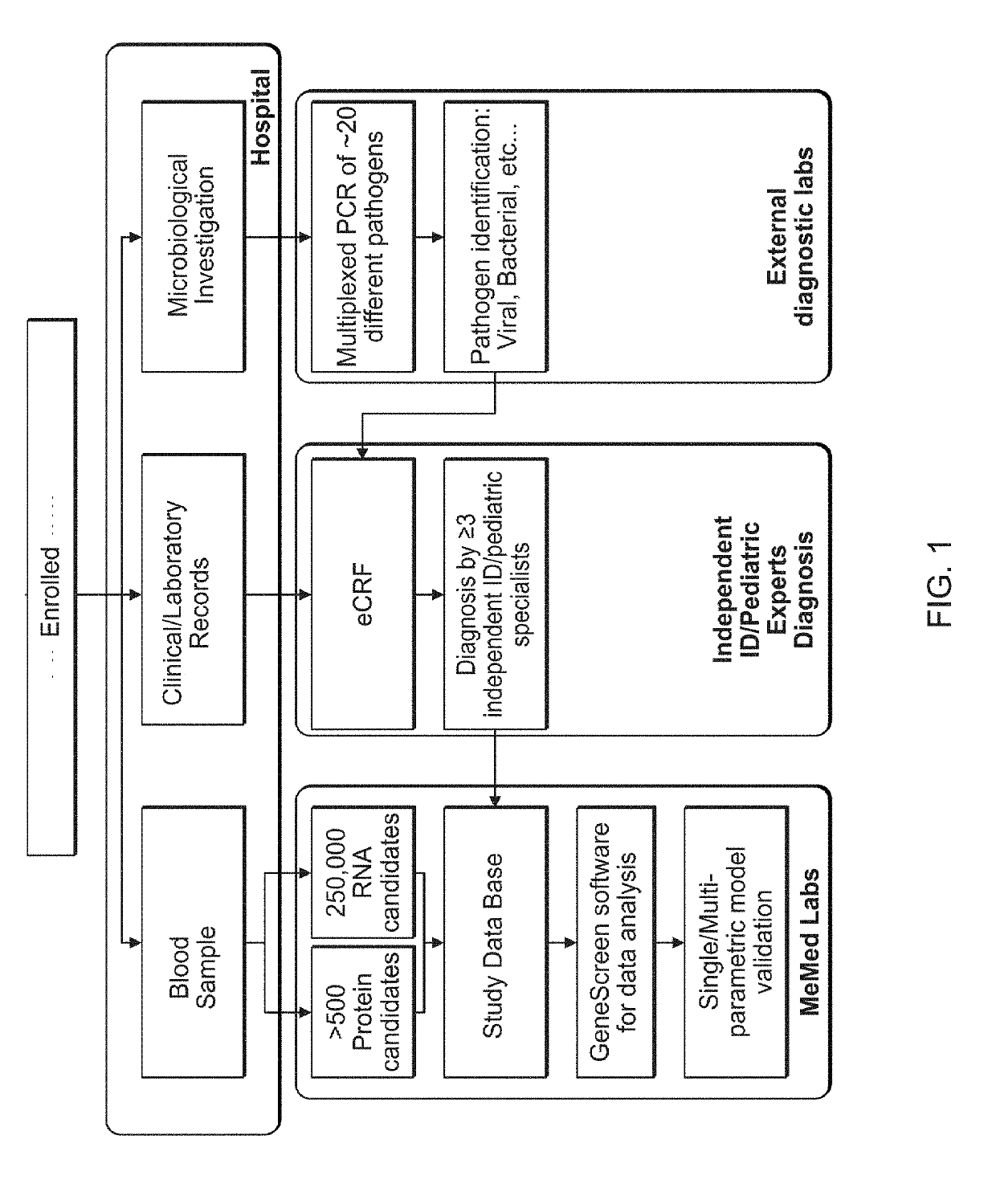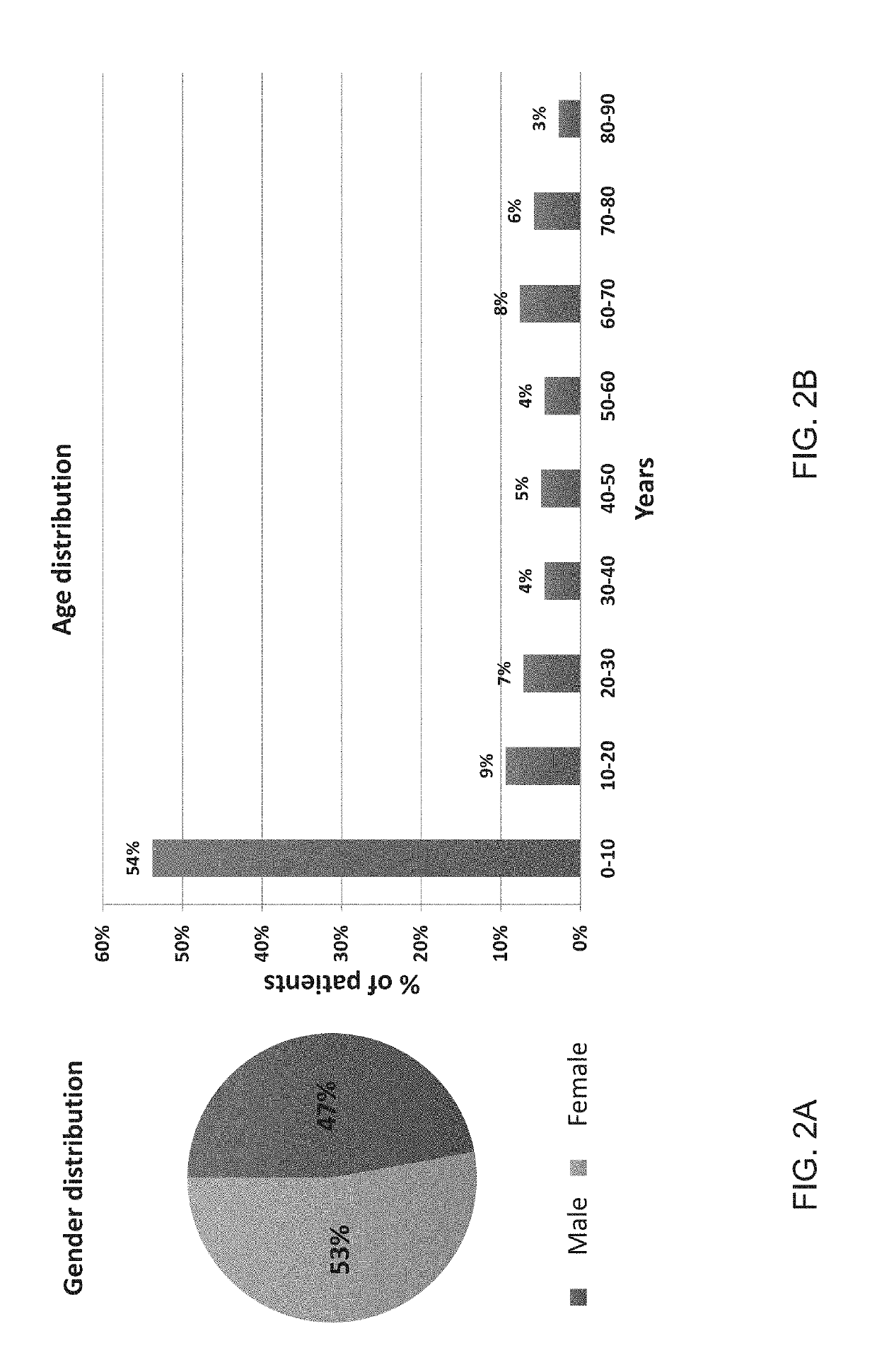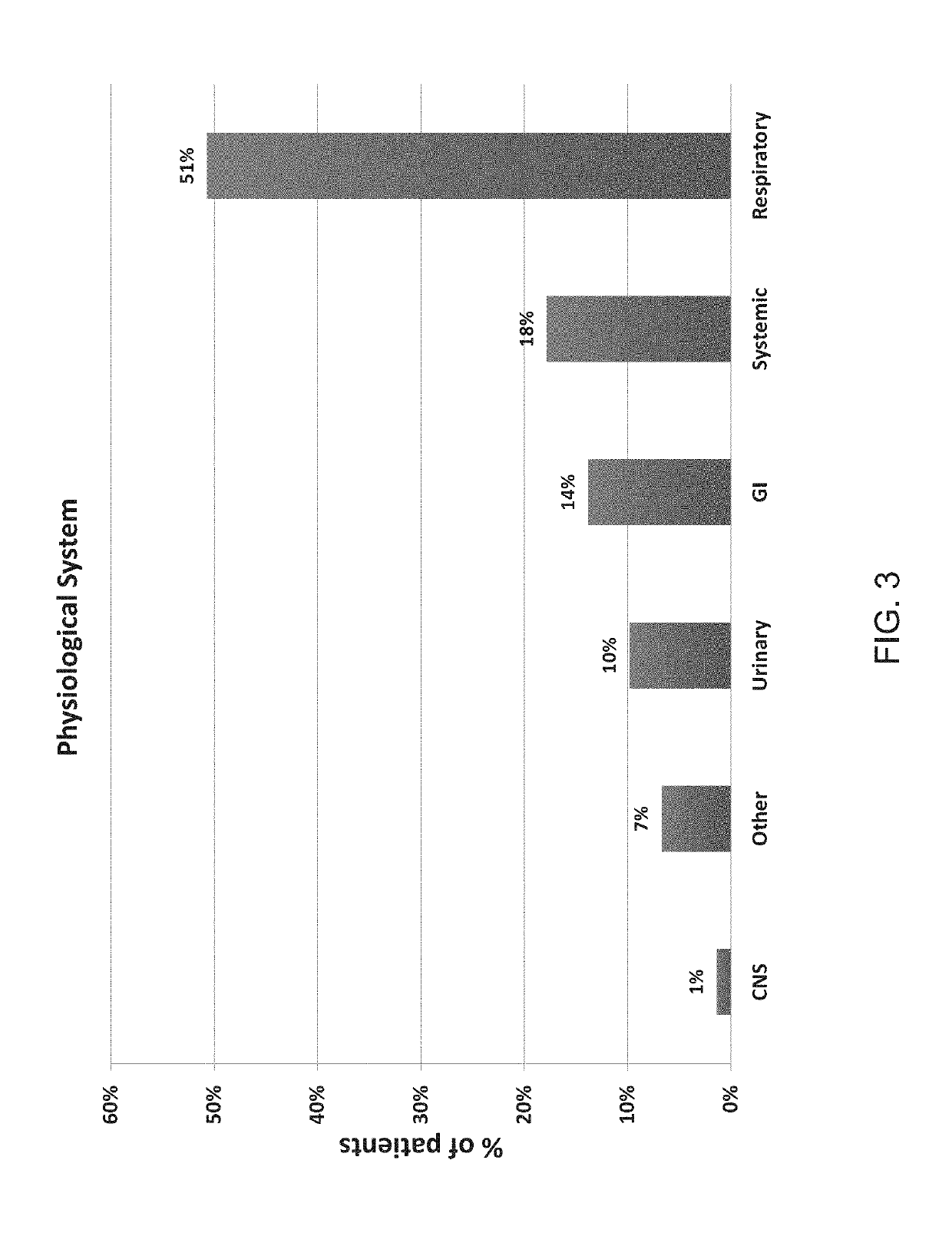Patents
Literature
91 results about "GTPase" patented technology
Efficacy Topic
Property
Owner
Technical Advancement
Application Domain
Technology Topic
Technology Field Word
Patent Country/Region
Patent Type
Patent Status
Application Year
Inventor
GTPases are a large family of hydrolase enzymes that bind to the nucleotide guanosine triphosphate (GTP) and hydrolyze it to guanosine diphosphate (GDP). The GTP binding and hydrolysis takes place in the highly conserved G domain common to many GTPases.
Mobilization of hematopoietic stem cells
ActiveUS8383124B2Effective levelingGrowing populationBiocidePeptide/protein ingredientsHematopoietic progenitor cellsBone marrow
Methods, processes, uses, and pharmaceutical compositions are provided herein for mobilizing hematopoietic progenitor cells and / or cancer stem cells from bone marrow into peripheral blood, comprising the administration of an effective amount of an inhibitor of GTPases, such as a Cdc-42 specific inhibitor alone or in combination with one or more additional agents. Specifically, methods are disclosed for mobilizing hematopoietic stem cells into a subject's peripheral blood. In particular, embodiments of the method involve specific inhibition of the Cdc42 GTPase to increase the numbers of hematopoietic stem cells into a subject's peripheral blood of a subject.
Owner:CHILDRENS HOSPITAL MEDICAL CENT CINCINNATI
Plants with Increased Yield
InactiveUS20120227134A1MicroorganismsVector-based foreign material introductionUbiquitin-Protein LigasesSerine hydroxymethyltransferase
A method for producing a plant with increased yield as compared to a corresponding wild type plant whereby the method comprises at least the following step: increasing or generating in a plant or a part thereof one or more activities of a polypeptide selected from the group consisting of 2-oxoglutarate-dependent dioxygenase, 3-ketoacyl-CoA thiolase, 3′-phosphoadenosine 5′-phosphate phosphatase, 4-diphosphocytidyl-2-C-methyl-D-erythritol kinase, 5OS chloroplast ribosomal protein L21, 57972199. R01.1-protein, 60952769. R01.1-protein, 60S ribosomal protein, ABC transporter family protein, AP2 domain-containing transcription factor, argonaute protein, AT1 G29250.1-protein, AT1 G53885-protein, AT2G35300-protein, AT3G04620-protein, AT4G01870-protein, AT5G42380-protein, AT5G47440-protein, CDS5394-protein, CDS5401_TRUNCATED-protein, cold response protein, cullin, Cytochrome P450, delta-8 sphingolipid desaturase, galactinol synthase, glutathione-S-transferase, GTPase, haspin-related protein, heat shock protein, heat shock transcription factor, histone H2B, jasmonate-zim-domain protein, mitochondrial asparaginyl-tRNA synthetase, Oligosaccharyltransferase, OS02G44730-protein, Oxygen-evolving enhancer protein, peptidyl-prolyl cis-trans isomerase, peptidyl-prolyl cis-trans isomerase family protein, plastid lipid-associated protein, Polypyrimidine tract binding protein, PRLI-interacting factor, protein kinase, protein kinase family protein, rubisco subunit binding-protein beta subunit, serine acetyltransferase, serine hydroxymethyltransferase, small heat shock protein, S-ribosylhomocysteinase, sugar transporter, Thioredoxin H-type, ubiquitin-conjugating enzyme, ubiquitin-protein ligase, universal stress protein family protein, and Vacuolar protein.
Owner:BASF PLANT SCI GMBH
Treatment of macular degeneration with ADP-ribosyl transferase fusion protein therapeutic compositions
InactiveUS20050059595A1Prevent and inhibit and delay and retard growthImprove permeabilityPowder deliverySenses disorderNervous systemOrder of magnitude
The Rho family GTPases regulates axon growth and regeneration. Inactivation of Rho with C3, a toxin from Clostridium botulinum, can stimulate regeneration and sprouting of injured axons. The present invention provides novel chimeric C3-like Rho antagonists. These new antagonists are a significant improvement over C3 compounds because they are 3-4 orders of magnitude more potent to stimulate axon growth on inhibitory substrates than recombinant C3. The invention further provides evidence that these compounds promote repair when applied to the injured mammalian central nervous system.
Owner:BIOAXONE BIOSCI
Mobilization of hematopoietic cells
ActiveUS20050142103A1Effective level of cellEffective levelingAntibacterial agentsOrganic active ingredientsDiseaseHematopoietic cell
Improved methods and pharmaceutical compositions are provided herein for mobilizing hematopoietic progenitor cells from bone marrow into peripheral blood, comprising the administration of an effective amount of an inhibitor of GTPases, such as Rac1 and Rac2 alone or in combination. Specifically, methods are disclosed for mobilizing hematopoietic stem cells into a subject's peripheral blood. In particular, embodiments of the method involve inhibition of both Rac1 and Rac2 GTPases to increase the numbers of hematopoietic stem cells into a subject's peripheral blood of a subject. The subject's blood can be processed and used to repopulate the destroyed lymphohematopoietic system of a recipient and may in the future be utilized to repair a variety of non-hematopoietic tissues. Therefore, hematopoietic stem cells mobilized into a subject's peripheral blood by the method of the invention is useful as a source of donor cells in bone marrow transplantation for the treatment of a variety of disorders, including cancer, anemia, autoimmunity and immunodeficiency. They can also be used for increasing white blood cell survival and for chemotherapy.
Owner:CHILDRENS HOSPITAL MEDICAL CENT CINCINNATI
Methods and compositions for modulating rho-mediated gene transcription
InactiveUS20120252792A1Easy to identifyReduce spreadBiocideOrganic chemistryDiseaseBiological condition
The invention provides methods, compositions, and kits for the inhibition of members of the Rho GTPase family. Specifically, the invention provides methods, compositions and kits for the inhibition of RhoA and / or RhoC transcriptional signalling. The invention finds use in treatment of Rho-mediated disease states (e.g., tumor metastasis, inflammation, inflammatory disease), Rho-mediated biological conditions, and in cell signaling research.
Owner:RGT UNIV OF MICHIGAN
Synthesis of Inhibitors of FtsZ
FtsZ, the bacterial analog of tubulin, is a promising new target for developing new antibiotics. It has been shown that polyphenols inhibit the GTPase activity of FtsZ, thereby inhibiting Z-ring formation during mitosis. The present invention provides novel polyphenols compounds, which can be accessed by the synthesis of dichamametin and 2′″-hydroxy-5″-benzylisouvarinol-B as described herein. These novel compounds are useful in treating infections, particularly infections caused by gram-positive organisms. Methods of preparing the inventive compounds are also provided. The compounds are prepared by the benzylation of pinocembrin or chrysin core structure. Pharmaceutical compositions and method of using the compounds to treat disease are also provided. These compounds may be screened for antimicrobial activity as well as other biological activities such as anti-neoplastic, anti-inflammatory, immunosuppressive, and cytotoxic activity.
Owner:TUFTS UNIV +2
Mobilization of hematopoietic cells
ActiveUS7417026B2Effective levelingAntibacterial agentsOrganic active ingredientsDiseaseHematopoietic cell
Improved methods and pharmaceutical compositions are provided herein for mobilizing hematopoietic progenitor cells from bone marrow into peripheral blood, comprising the administration of an effective amount of an inhibitor of GTPases, such as Rac1 and Rac2 alone or in combination. Specifically, methods are disclosed for mobilizing hematopoietic stem cells into a subject's peripheral blood. In particular, embodiments of the method involve inhibition of both Rac1 and Rac2 GTPases to increase the numbers of hematopoietic stem cells into a subject's peripheral blood of a subject. The subject's blood can be processed and used to repopulate the destroyed lymphohematopoietic system of a recipient and may in the future be utilized to repair a variety of non-hematopoietic tissues. Therefore, hematopoietic stem cells mobilized into a subject's peripheral blood by the method of the invention is useful as a source of donor cells in bone marrow transplantation for the treatment of a variety of disorders, including cancer, anemia, autoimmunity and immunodeficiency. They can also be used for increasing white blood cell survival and for chemotherapy.
Owner:CHILDRENS HOSPITAL MEDICAL CENT CINCINNATI
Labeled peptides, proteins and antibodies and processes and intermediates useful for their preparation
InactiveUS20050287518A1Minimal perturbationHigh yieldMicrobiological testing/measurementDepsipeptidesSynthonFluorophore
The invention provides peptide synthons having protected functional groups for attachment of desired moieties (e.g. functional molecules or probes). Also provided are peptide conjugates prepared from such synthons, and synthon and conjugate preparation methods including procedures for identifying the optimum probe attachment site. Biosensors are provided having environmentally sensitive dyes that can locate specific biomolecules within living cells and detect chemical and physiological changes in those biomolecules as the living cell is moving, metabolizing and reacting to its environment. Methods are included for detecting GTP activation of a Rho GTPase protein using polypeptide biosensors. When the biosensor binds GTP-activated Rho GTPase protein, the environmentally sensitive dye emits a signal of a different lifetime, intensity or wavelength than when not bound. New fluorophores whose fluorescence responds to environmental changes are also provided that have improved detection and attachment properties, and that can be used in living cells, or in vitro.
Owner:THE SCRIPPS RES INST
Detection of rho proteins
ActiveUS20070020687A1Microbiological testing/measurementBiological material analysisRho GTPase bindingPeptide
The present invention provides methods of detecting activated Rho GTPase proteins by contacting a solid support with a sample comprising an activated Rho GTPase protein. The solid support is linked to an activated Rho GTPase binding peptide. The activated Rho GTPase protein remains associated with the solid support during the detection.
Owner:CYTOSKELETON INC
Method for identifying agents which modulate GTPase activity involved in insulin-stimulated GLUT4 translocation
The present invention is a method for identifying agents that modulate the GTPase activity of AS160. In the instant assay, AS160 or the GAP domain thereof is contacted with a test agent, in the presence of GTP-bound Rab (2A, 8A, 8B, 10, or 14), and the AS160 GAP domain-mediated hydrolysis of GTP to GDP is monitored.
Owner:TRUSTEES OF DARTMOUTH COLLEGE THE
Dual inhibitors of farnesyltransferase and geranylgeranyltransferase I
ActiveUS9040563B2Easy to derivatizeExtensive structure-activity relationship (SAR) studyBiocideOrganic chemistryEthylenediamineAnticarcinogen
Owner:YALE UNIV +1
Mitofusins, Fzo Homologs and functional derivatives thereof
Mitofusin genes and encoded polypeptides are provided, including the Drosophila Fzo protein and its homologs from insects, other invertebrates, yeast, and vertebrates including mouse and humans. Mitofusins are large predicted GTPases with a predicted trans-membrane domain, coiled-coil regions, and a C-terminal region showing a high pI. The mitofusins are the first known protein mediator of mitochondrial fusion, and mediate developmentally regulated post-meiotic fusion of mitochondria. Missense mutations that alter conserved residues required for GTP binding in other GTPases inhibit the in vivo fusogenic activity of Fzo but do not affect its localization. Fusion proteins having amino acid sequences from mitofusin transmembrane regions localize to mitochondria. Mitofusins may be used in methods of identifying anti-insect and antifungal agents. Functional derivatives of mitofusins useful for such methods are described.
Owner:THE BOARD OF TRUSTEES OF THE LELAND STANFORD JUNIOR UNIV
Genetically engineered g-alpha proteins and uses thereof
ActiveUS20110212476A1Efficient processCompound screeningApoptosis detectionDiseaseGPCR signaling pathway
The present invention relates to novel engineered Ga proteins and assay methods of using such proteins to advance drug discovery. Engineered Ga proteins described by the invention contain alterations of at least one and preferably two or more amino acid residues that are highly conserved among all four subfamilies of Ga proteins. A preferred engineered protein disclosed here is a double mutant, Gαπ R178M A326S. This specific combination of mutations yields an unexpectedly amplified effect on Ga function both in terms of GTPase activity (GTP hydrolysis) and GDP dissociation. This synergistic effect may have a profound influence on the way GPCR signaling pathways are examined for the development of new pharmacotherapies, particularly in the field of central nervous system disorders such as Parkinson's disease.
Owner:BELLBROOK LABS
Methods
ActiveUS20090142784A1Useful in treatmentNervous disorderSugar derivativesKinase activityLRRK2 Protein
A method for identifying a compound expected to be useful in modulating a LRRK2 protein kinase activity, the method comprising the steps of (1) determining whether a test compound modulates the protein kinase activity of a LRRK2 polypeptide on a substrate Ezrin / Radixin / moesin (ERM) family polypeptide and (2) selecting a compound which modulates the LRRK2 polypeptide protein kinase activity. Such a compound may be useful in treating Parkinson's Disease or Parkinsonism. A catalytically active fragment of LRRK2 is identified, requiring the GTPase, COR and kinase domains as well as the WD_40-like motif and C-terminal tail.
Owner:UK RES & INNOVATION LTD
Molecules that influence pathogen resistance
The functions of IFNgamma-induced GTPases of the IGTP-family as strong anti-infective agents, and more particularly a strong anti-parasite and / or anti-bacterial agents, are disclosed. These molecules (in both protein and nucleic acid forms) are effective to modify anti-microbial e.g., anti-bacterial and / or anti-parasitic) immune responses in a subject, to prevent or inhibit replication or infectivity of microbe, to treat microbial diseases, and to detect susceptibility of a subject to microbial infection. This invention also provides kits and compounds useful in such methods. Also provided are transgenic non-human animals in which IGTP-family member gene expression has been altered, and the use of such animals to screen for anti-microbial agents.
Owner:THE GOVERNMENT OF THE US ASREPRESENTED BY THE SEC OF THE DEPARMENT OF HEALTH & HUMAN SERVICES
Mobilization of hematopoietic stem cells
ActiveUS20110020274A1Reduce in quantityImproved cancer therapyBiocidePeptide/protein ingredientsHematopoietic progenitor cellsBone marrow
Methods, processes, uses, and pharmaceutical compositions are provided herein for mobilizing hematopoietic progenitor cells and / or cancer stem cells from bone marrow into peripheral blood, comprising the administration of an effective amount of an inhibitor of GTPases, such as a Cdc-42 specific inhibitor alone or in combination with one or more additional agents. Specifically, methods are disclosed for mobilizing hematopoietic stem cells into a subject's peripheral blood. In particular, embodiments of the method involve specific inhibition of the Cdc42 GTPase to increase the numbers of hematopoietic stem cells into a subject's peripheral blood of a subject.
Owner:CHILDRENS HOSPITAL MEDICAL CENT CINCINNATI
Reagents for the detection of protein phosphorylation in leukemia signaling pathways
InactiveUS20090220991A1Animal cellsImmunoglobulins against animals/humansPhosphodiesteraseLipid kinases
The invention discloses nearly 480 novel phosphorylation sites identified in signal transduction proteins and pathways underlying human Leukemia, and provides phosphorylation site specific antibodies and heavy-isotope labeled peptides (AQUA peptides) for the selective detection and quantification of these phosphorylated sites / proteins, as well as methods of using the reagents for such purpose. Among the phosphorylation sites identified are sites occurring in the following protein types: adaptor / scaffold proteins, acetyltransferases, actin binding proteins, adhesion proteins, apoptosis proteins, calcium-binding proteins, cell cycle regulation proteins, cell surface proteins, channel proteins, chaperone proteins, contractile proteins, cytokine proteins, cytoskeletal proteins, G protein regulators and GTPase activating proteins, guanine nucleotide exchange factors, helicase proteins, immunoglobulin superfamily proteins, inhibitor proteins, protein kinases, lipid kinases, ligases, lipid binding proteins, methytransferases, motor proteins, oxidoreductases, phosphotases, phosphodiesterases, phospholipases, proteases, receptor proteins, trascription factors, transferases, translation / transporter proteins, and ubiquitin conjugating system proteins.
Owner:CELL SIGNALING TECHNOLOGY
Assay Method for Group Transfer Reactions
ActiveUS20080233592A1Microbiological testing/measurementDisease diagnosisHigh-Throughput Screening MethodsAdenosine triphosphatase
The present invention relates to methods for detecting, quantifying and high throughput screening of donor-products and the catalytic activities generating the donor-products in group-transfer reactions catalyzed by adenosine triphosphatase (ATPase) or guanine triphosphatase (GTPase). The invention further provides immunoassays, antibodies and kits that may be used to practice the methods of the invention.
Owner:BELLBROOK LABS
Anti-cancer compounds targeting Ral GTPases and methods of using the same
ActiveUS9353121B2Engage with obstructionInhibit bindingOrganic active ingredientsOrganic chemistryLymphatic SpreadCancer research
The invention provides methods of inhibiting the growth or metastasis of a cancer in a mammal by inhibiting a Ral GTPase in the mammal. The invention also provides small molecule inhibitors of Ral GTPases useful in the methods of the invention and pharmaceutical compositions containing the therapeutically effective compounds of the invention, and methods of using the same.
Owner:UNIV OF COLORADO THE REGENTS OF +1
Chimeric peptides for the regulation of GTPases
InactiveUS20050069553A1Reduce GTPase activityIncreased activity of GTPasePolypeptide with localisation/targeting motifHydrolasesCell signalingEnzyme
Chimeric peptides or fusion proteins are disclosed that include a RhoGAP activity domain and at least one specificity domain that targets a specific Rho protein. The fusion proteins can be used to inhibit any GTPase activity within a cell. The fusion proteins are particularly advantageous for the treatment of cancer. The present invention generally relates to The present invention generally relates to chimeric peptides capable of regulating GTPases, and more particularly, to methods of targeting individual GTPases by using GTPase-activating proteins. Such proteins may be used for the treatment of cancers and other GTPase-related diseases. This invention relates to nucleic acid molecules and the encoded GTPase activating proteins, and variants thereof, and to the use of these molecules in the characterization, diagnosis, prevention, and treatment of cell signaling, immune, and cell proliferative disorders, particularly cancer. Disclosed herein are compounds and methods for regulating transcription of a selected gene. Methods are provided for constructing and for using such compounds to regulate transcription of a selected gene.
Owner:CHILDRENS HOSPITAL MEDICAL CENT CINCINNATI
Rab7 GTPase inhibitors and related methods of treatment
This invention relates to compounds and their use as inhibitors or activators of Rab7 GTPase to treat or prevent the onset of Rab 7 GTPase-associated disorders such as neuropathies, cancer, metabolic diseases of bone and lipid storage. The invention is also applicable to infectious diseases where Rab7 is inactivated or its protein-protein interactions are modulated to facilitate intracellular survival of pathogens. The compound described acts as a competitive inhibitor of nucleotide binding and as such also has utility as a scaffold for targeting other small GTPases. In one aspect, methods of treatment of the invention are used to treat or prevent the onset of hereditary sensory neuropathies such as Charcot-Marie-Tooth type 2B disease. Related pharmaceutical compositions, assays, and drug screens are also provided.
Owner:STC UNM +1
Genetically engineered G-alpha proteins and uses thereof
The present invention relates to novel engineered Ga proteins and assay methods of using such proteins to advance drug discovery. Engineered Ga proteins described by the invention contain alterations of at least one and preferably two or more amino acid residues that are highly conserved among all four subfamilies of Ga proteins. A preferred engineered protein disclosed here is a double mutant, Gαπ R178M A326S. This specific combination of mutations yields an unexpectedly amplified effect on Ga function both in terms of GTPase activity (GTP hydrolysis) and GDP dissociation. This synergistic effect may have a profound influence on the way GPCR signaling pathways are examined for the development of new pharmacotherapies, particularly in the field of central nervous system disorders such as Parkinson's disease.
Owner:BELLBROOK LABS
Reagents for the detection of protein phosphorylation in anaplastic large cell lymphoma signaling pathways
The invention discloses 211 novel phosphorylation sites identified in signal transduction proteins and pathways underlying Anaplastic Large Cell Lymphoma (ALCL) involving the ALK-NPM translocation / fusion, and provides phosphorylation-site specific antibodies and heavy-isotope labeled peptides (AQUA peptides) for the selective detection and quantification of these phosphorylated sites / proteins, as well as methods of using the reagents for such purpose. Among the phosphorylation sites identified are sites occurring in the following protein types: Protein Kinases (including Receptor Tyrosine Kinases), Adaptor / Scaffold Proteins, Cellular Metabolism or Miscellaneous Enzymes, Oxidoreductases, Transcription Factors, Cytoskeletal Proteins, Translation Initiation Complexes, RNA Binding Proteins, Proteases, Acetyltransferases, G protein regulators / GTPases, Helicases, Apoptosis / Cell Cycle Regulation proteins, and Hydrolases.
Owner:CELL SIGNALING TECHNOLOGY
Prevention of hiv-1 infection by inhibition of rho-mediated reorganization and/or content alteration of cell membrane raft
InactiveUS20070082942A1Inhibit GTPase activityReduces cellular poolBiocideAntiviralsRetroviral infectionCell membrane
The present invention relates generally to the prevention or delaying of retroviral infection by use of agents that prevent the clustering of retroviral receptors associated with cell membrane raft domains. The present invention relates more specifically to the prevention or treatment of HIV-1 infection through the use of agents that inhibit Rho-A activation by affecting GTPase activity or protein isoprenylation. The present invention relates also to the prevention or delay of HIV-1 infection through the displacement of cytokine receptors from cell membrane raft domains.
Owner:CONSEJO SUPERIOR DE INVESTIGACIONES CIENTIFICAS (CSIC)
Assay method for group transfer reactions
ActiveUS7378505B2Microbiological testing/measurementDisease diagnosisAdenosine triphosphataseHigh-throughput screening
The present invention relates to methods for detecting, quantifying and high throughput screening of donor-products and the catalytic activities generating the donor-products in group-transfer reactions catalyzed by adenosine triphosphatase (ATPase) or guanine triphosphatase (GTPase). The invention further provides immunoassays, antibodies and kits that may be used to practice the methods of the invention.
Owner:BELLBROOK LABS
Small G protein Rop (Rho-related GTPase from plant) family protein of Hevea brasiliensis latex and coding gene thereof
InactiveCN102731639ARegulation generationRegulate metabolismFungiBacteriaSmall G ProteinGenetically modified crops
The invention discloses a coding gene of small G protein Rop (Rho-related GTPase from plant) and application. The protein has one of the following amino acid residual sequences: 1) amino acid residual sequence of SEQ ID NO.1 in a sequence table; and 2) protein which has an amino acid residual sequence of SEQ ID NO.1 in the sequence table by substitution and / or loss and / or addition of one or more amino acid residues, has the GTP (Guanosine Triphosphate) binding function and is derived from SEQ ID NO.1. The protein has GTP binding activity, can regulate synthesis and metabolization of the active gron ROS, praticifate seuv, participates in stress response, has the characteristics of regulating development of the secondary xylem and phloem of woods, and can be used for improving the resistance of the protein in an adverse situation in genetically modified crops or woods, so that the yield can be increased.
Owner:RUBBER RES INST CHINESE ACADEMY OF TROPICAL AGRI SCI
System and method for analysis of biological data
A method of analyzing biological data is disclosed. The method comprises obtaining biological data containing at least an expression level of MX dynamin-like GTPase 1 (MX1) and an expression level of C-reactive protein (CRP) in the blood of a subject, calculating a distance between a segment of a curved line and an axis defined by a direction, the distance being calculated at a point over the curved line defined by a coordinate along the direction, and correlating the distance to the presence of, absence of, or likelihood that the subject has, a bacterial infection.
Owner:MEMED DIAGNOSTICS
Features
- R&D
- Intellectual Property
- Life Sciences
- Materials
- Tech Scout
Why Patsnap Eureka
- Unparalleled Data Quality
- Higher Quality Content
- 60% Fewer Hallucinations
Social media
Patsnap Eureka Blog
Learn More Browse by: Latest US Patents, China's latest patents, Technical Efficacy Thesaurus, Application Domain, Technology Topic, Popular Technical Reports.
© 2025 PatSnap. All rights reserved.Legal|Privacy policy|Modern Slavery Act Transparency Statement|Sitemap|About US| Contact US: help@patsnap.com
